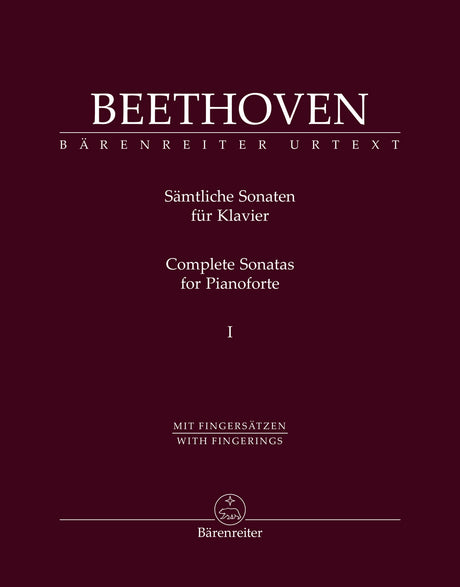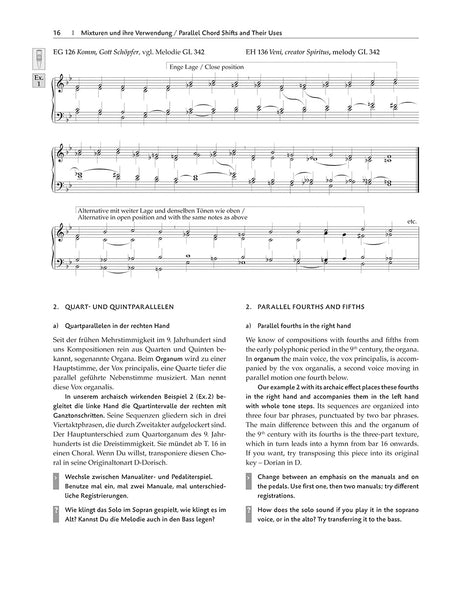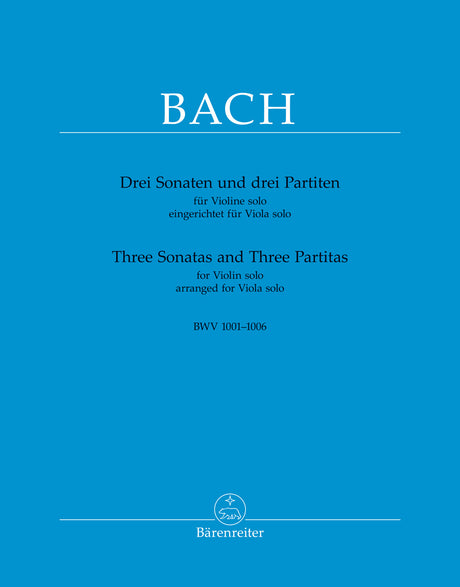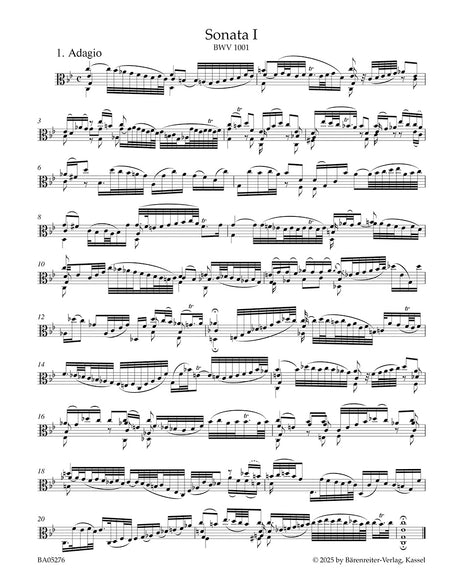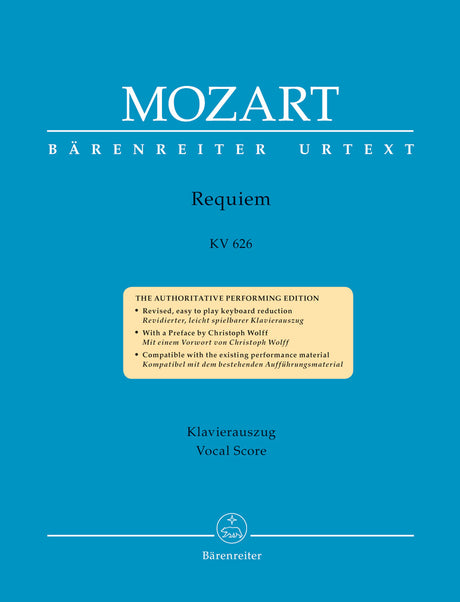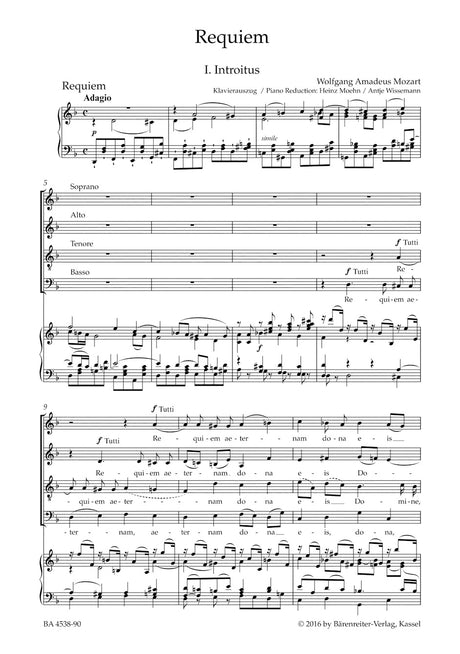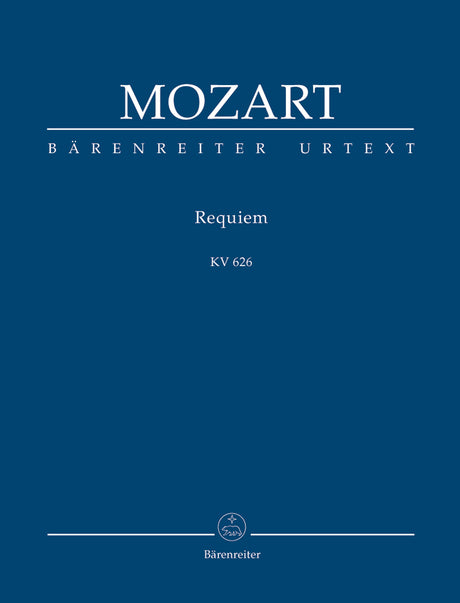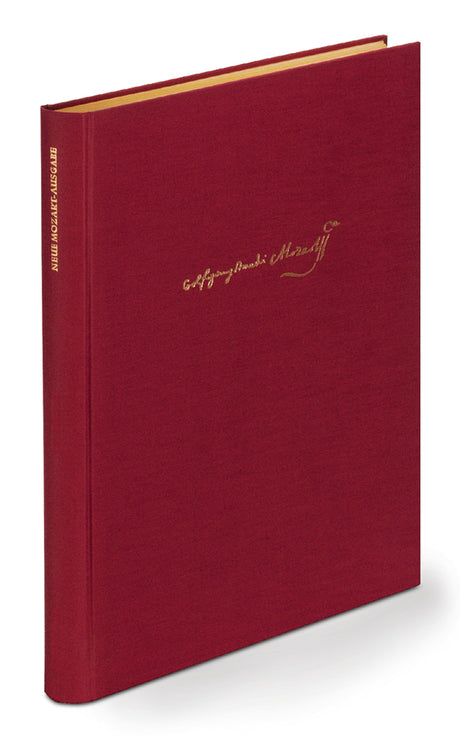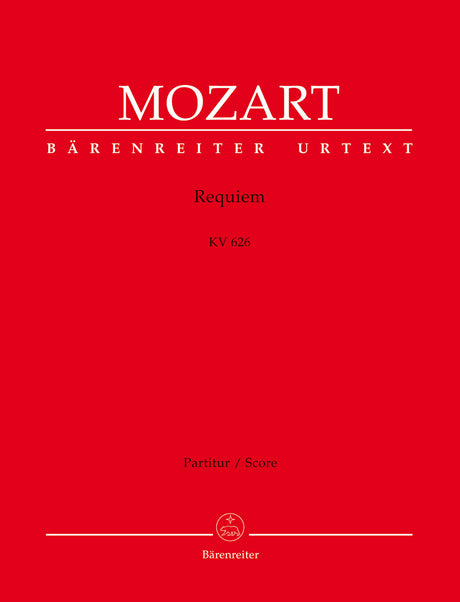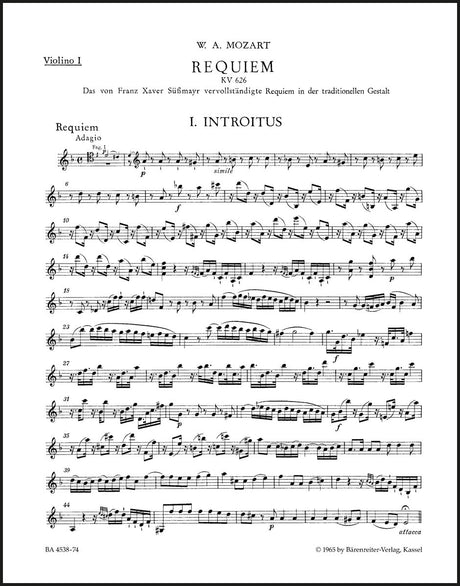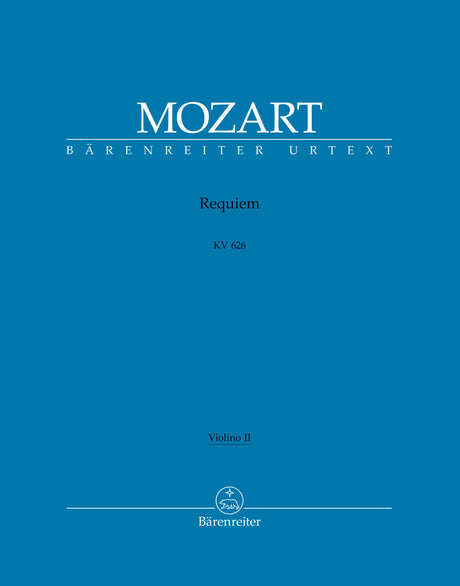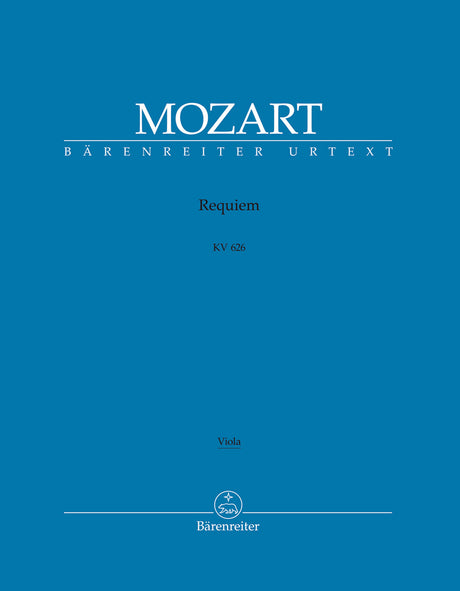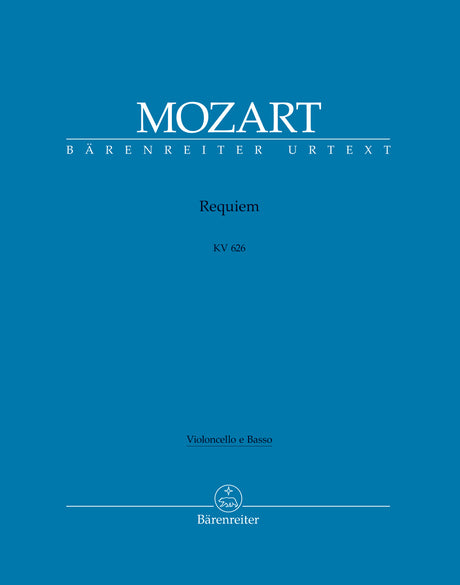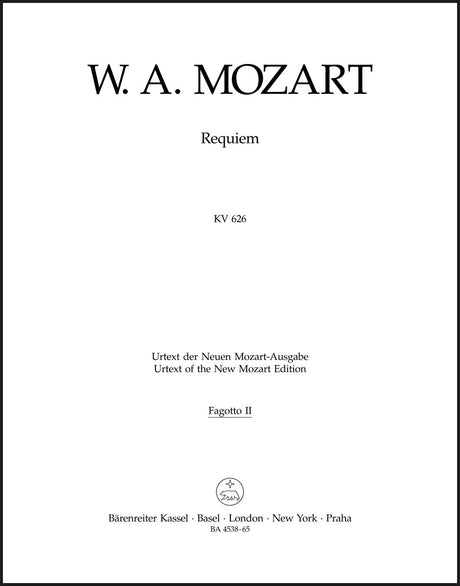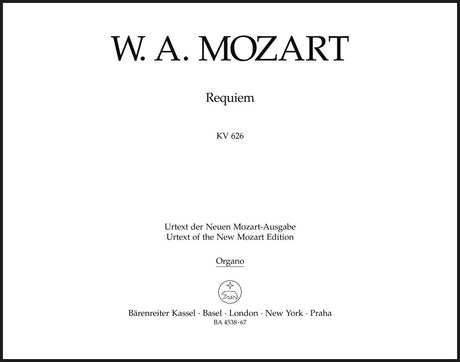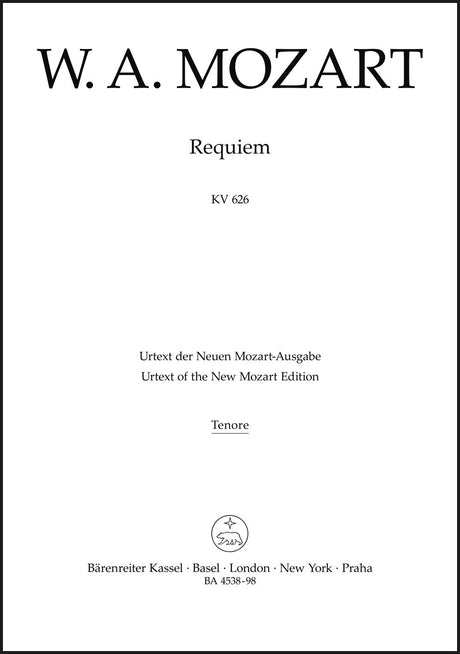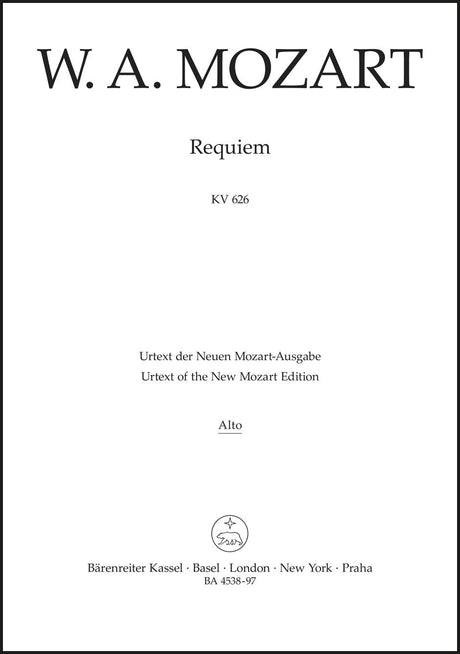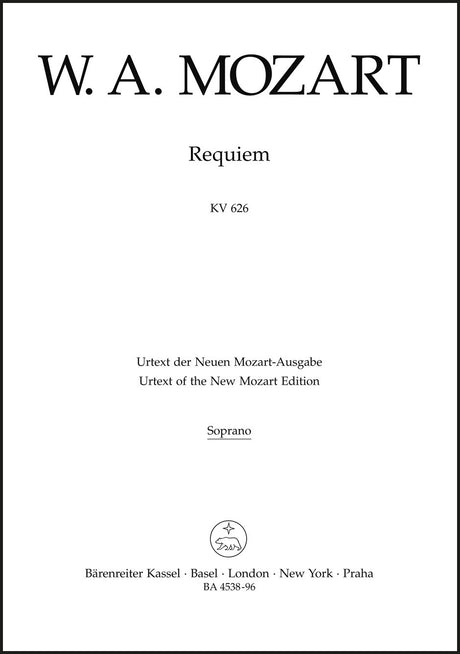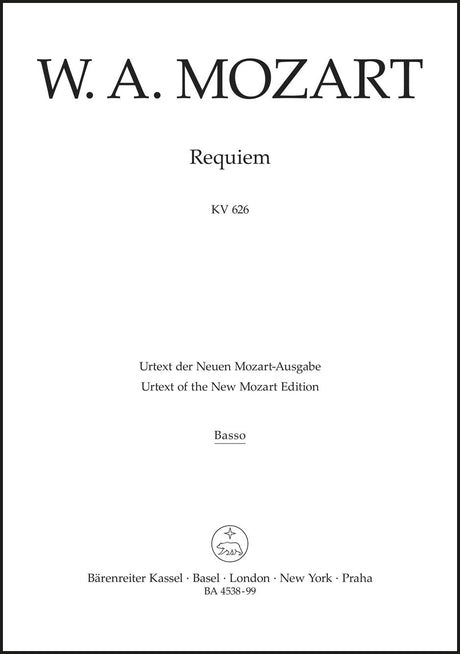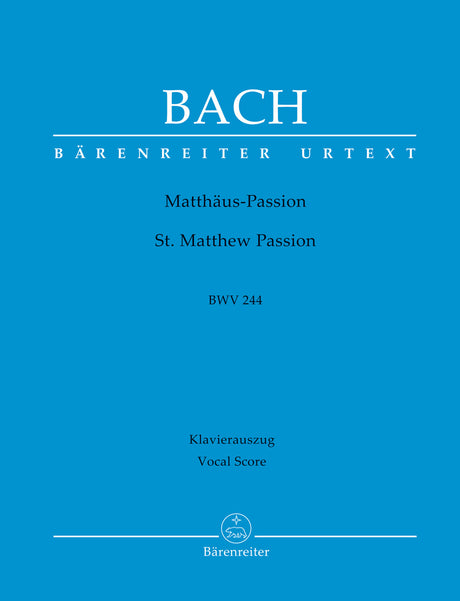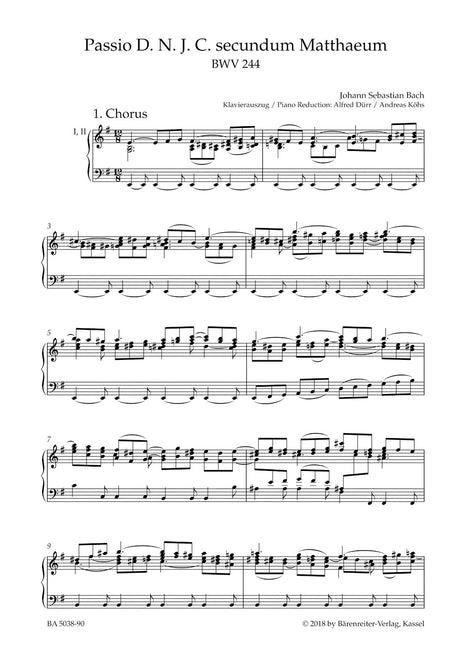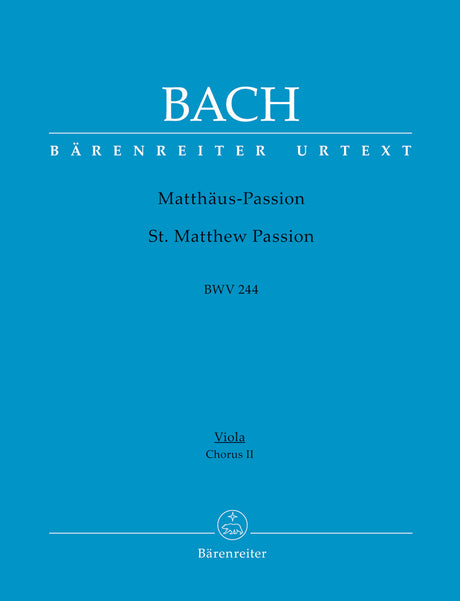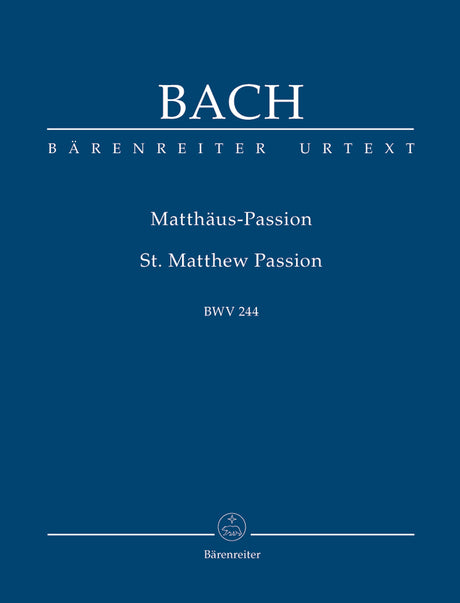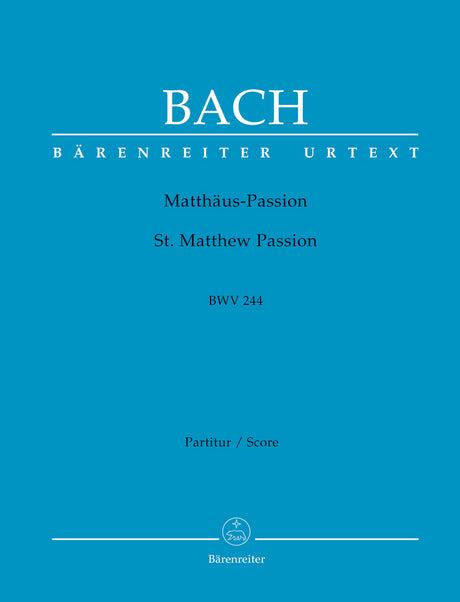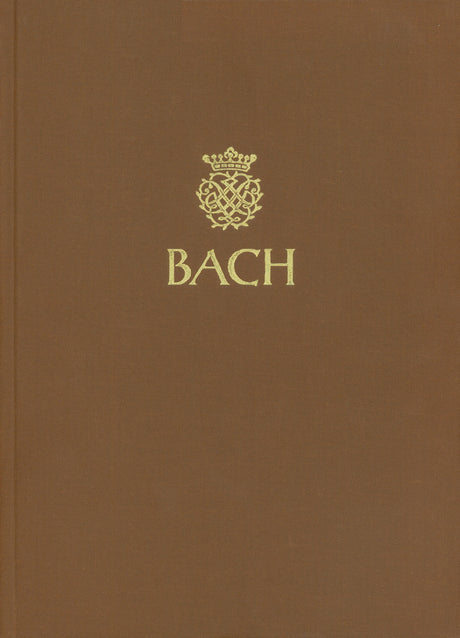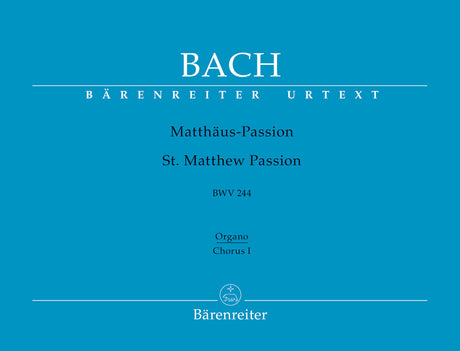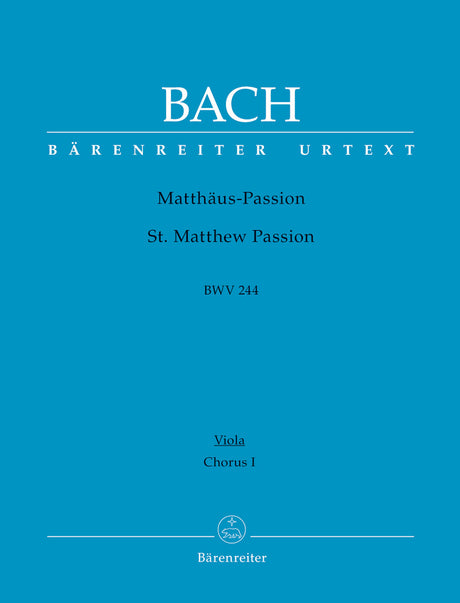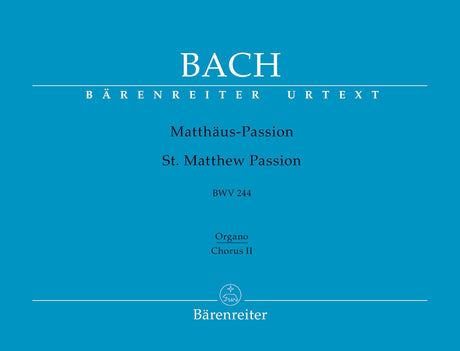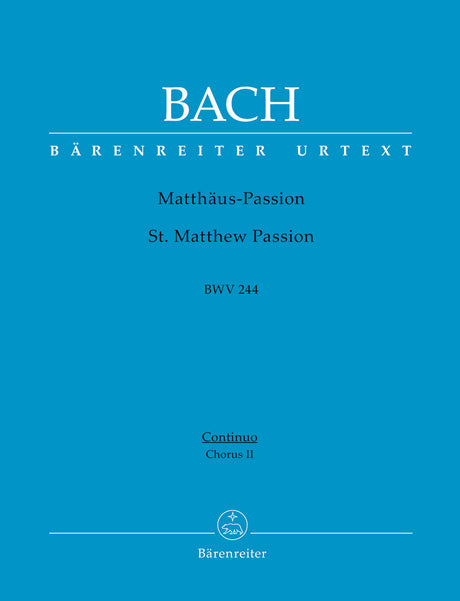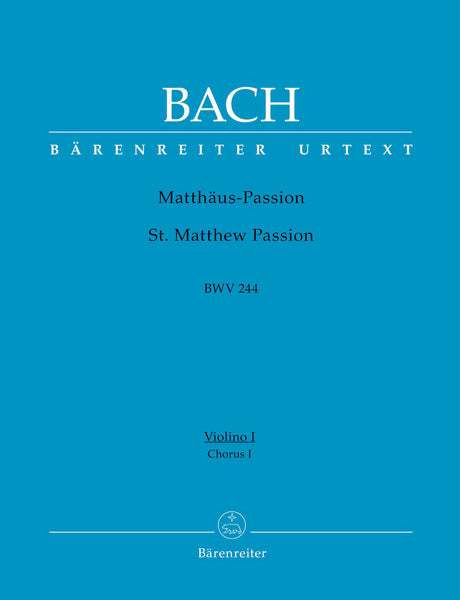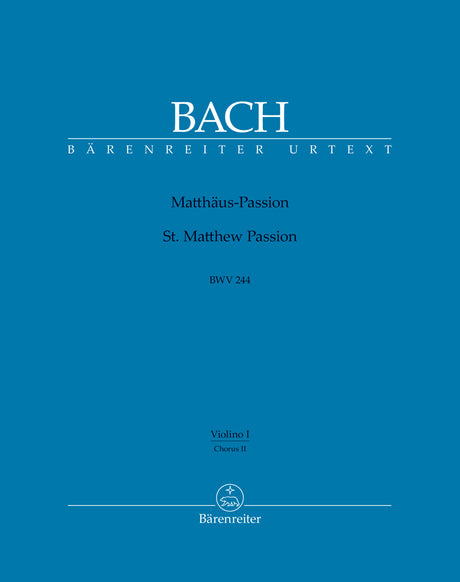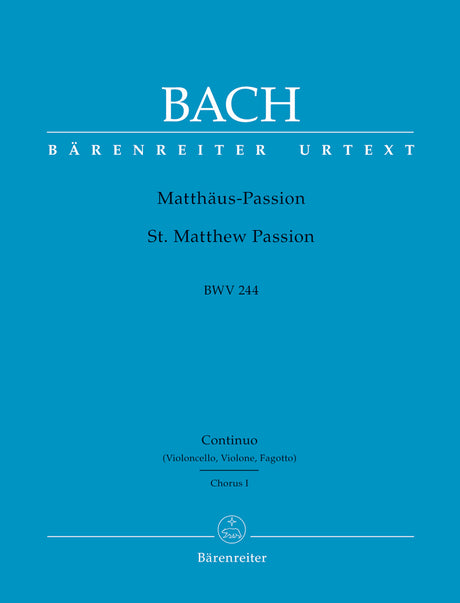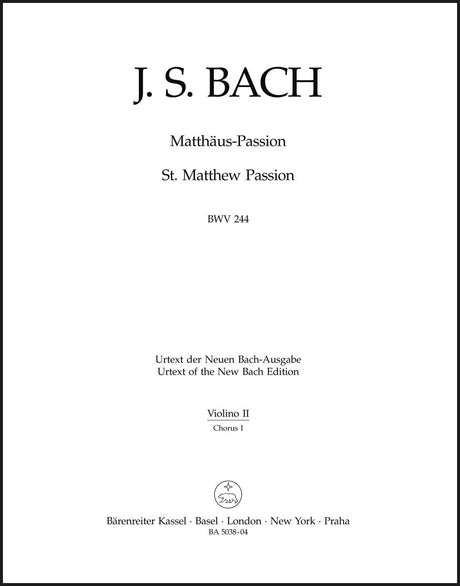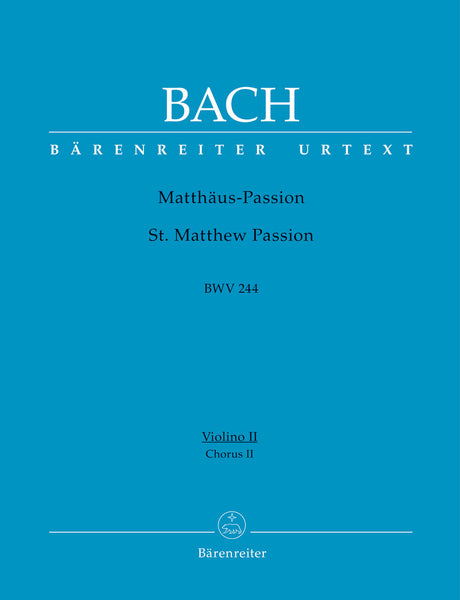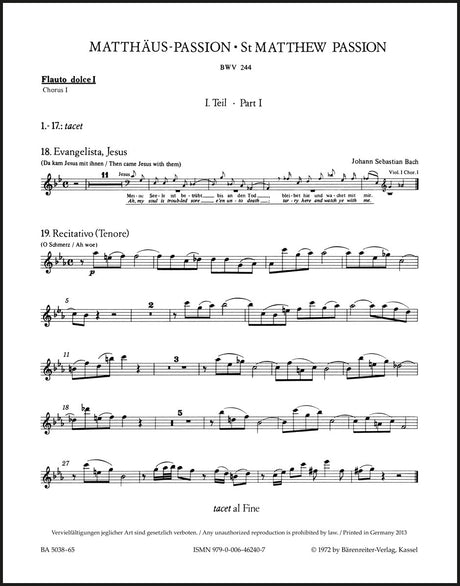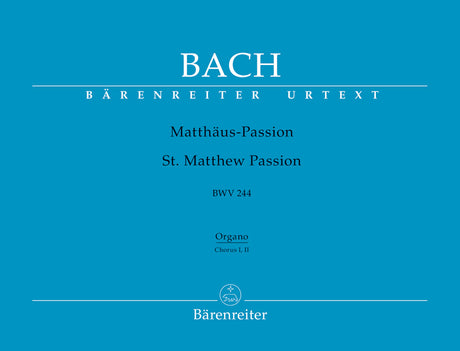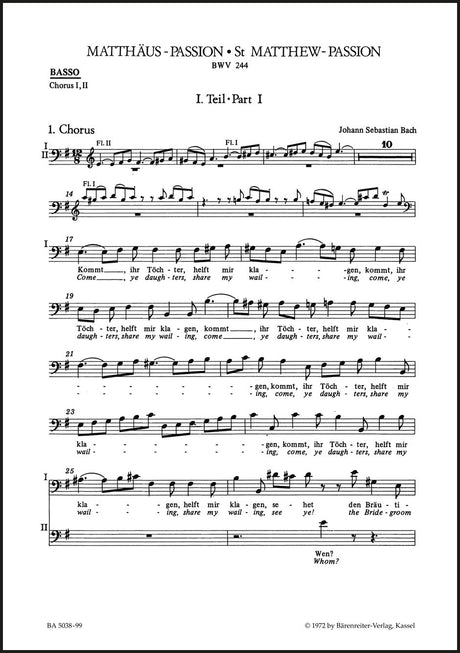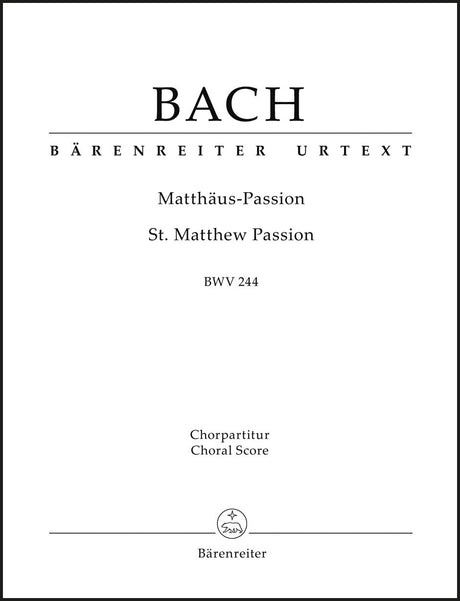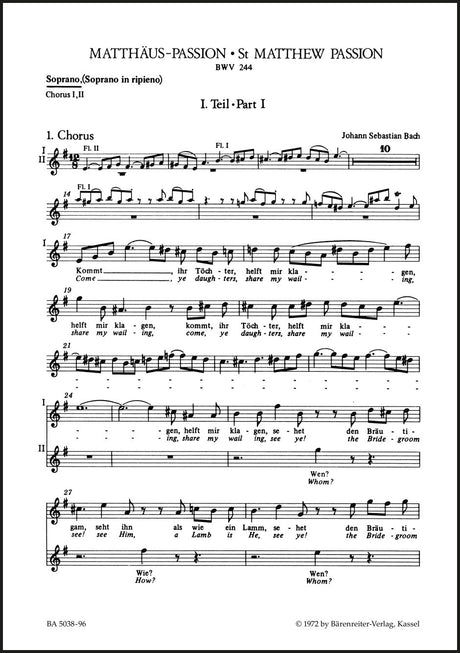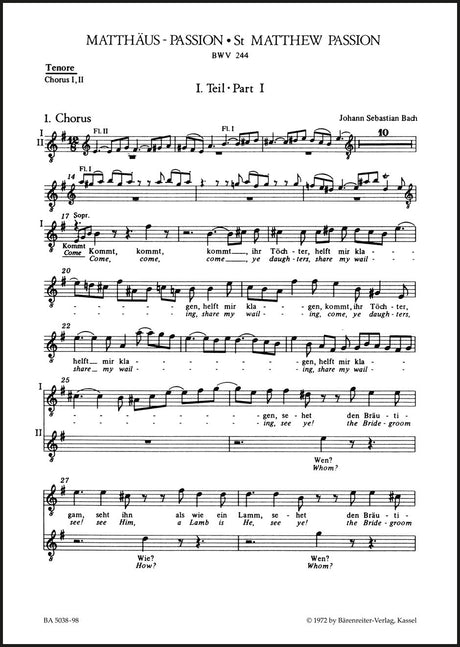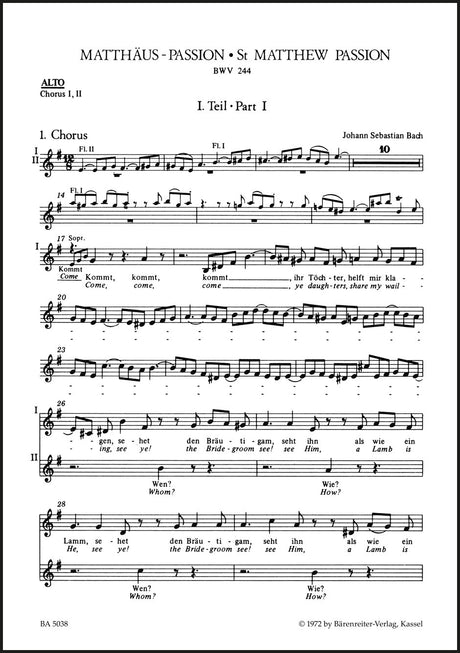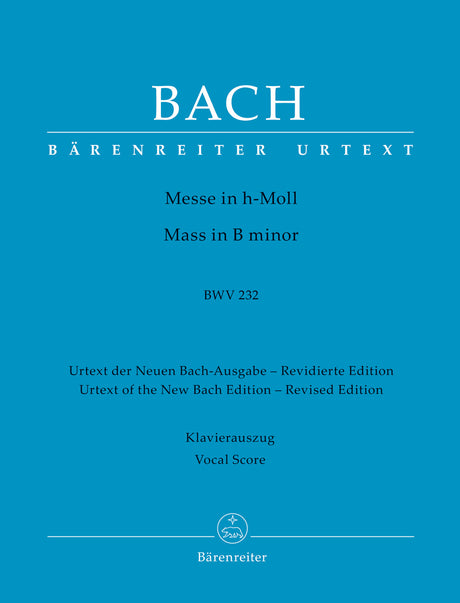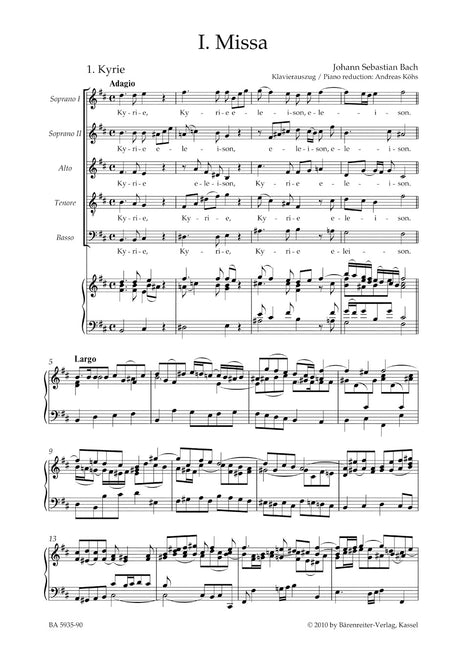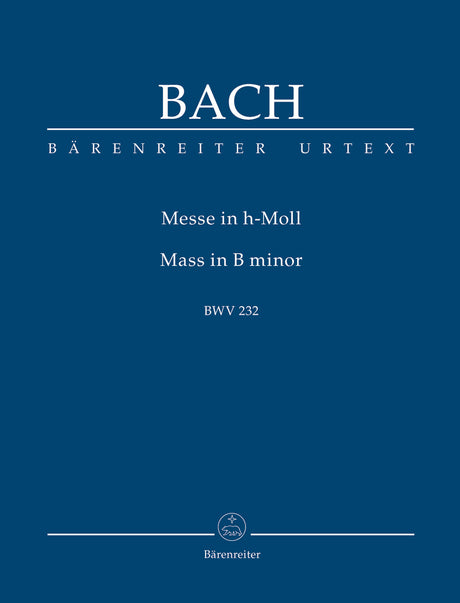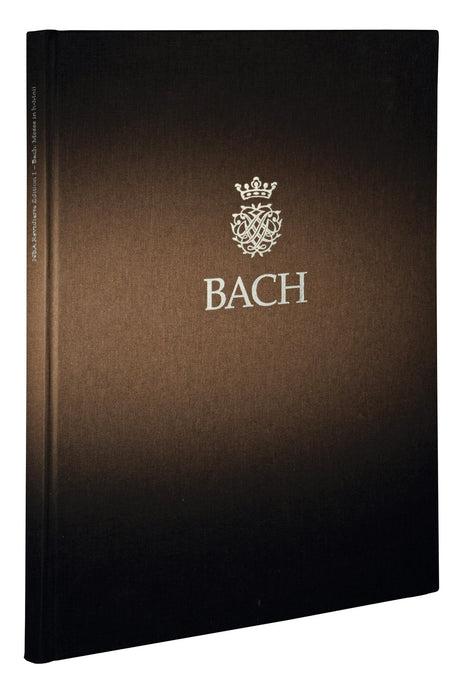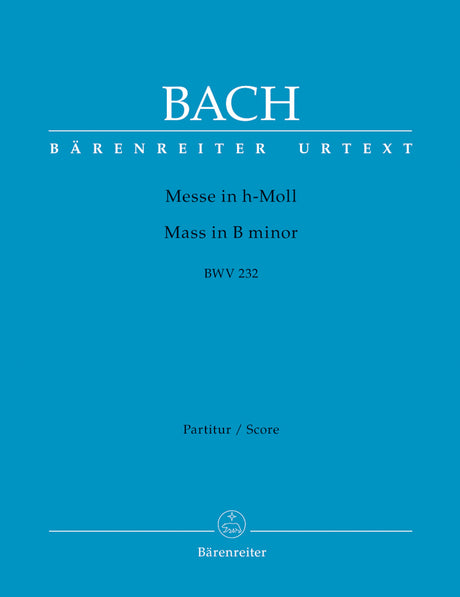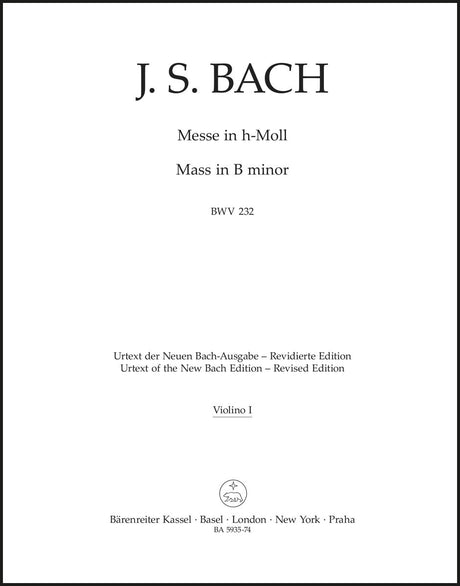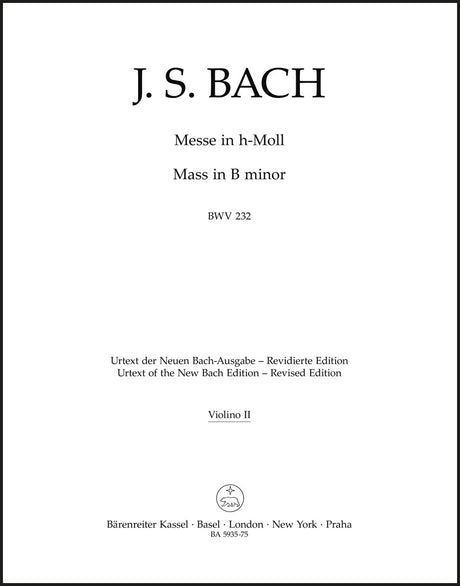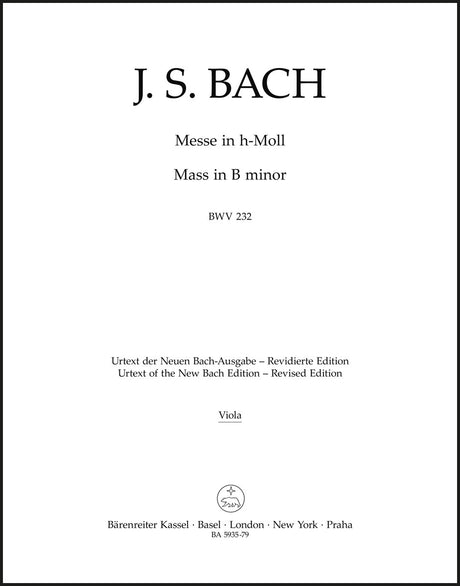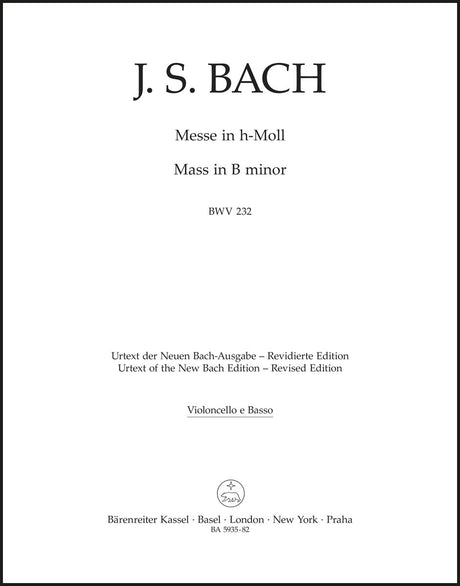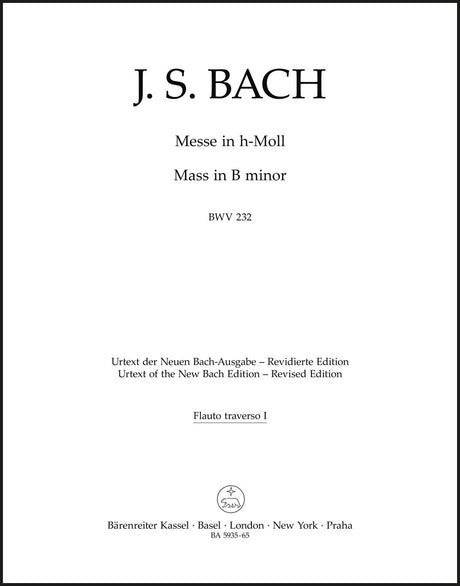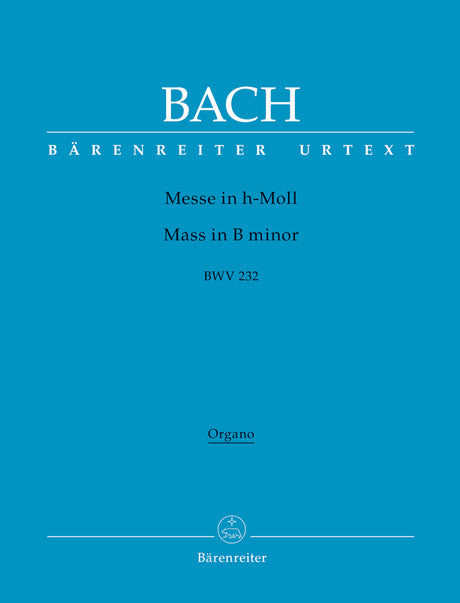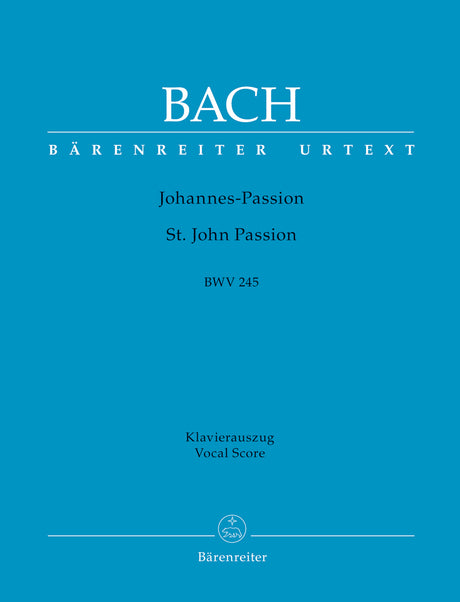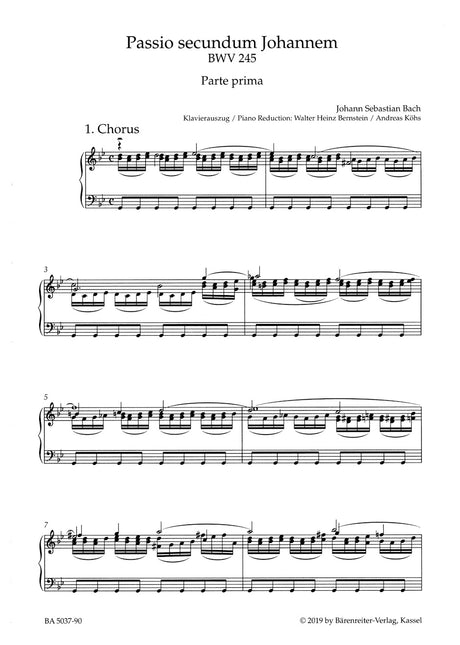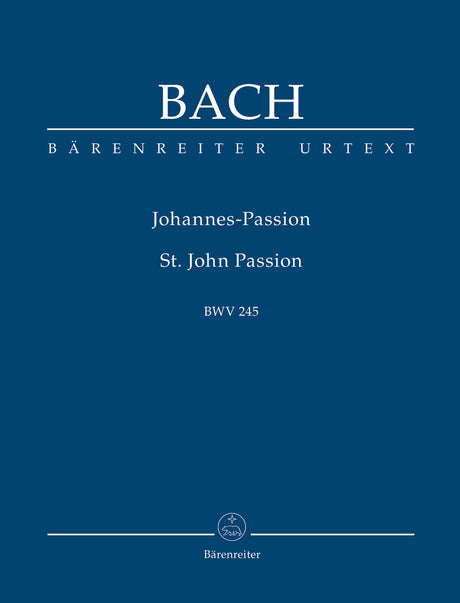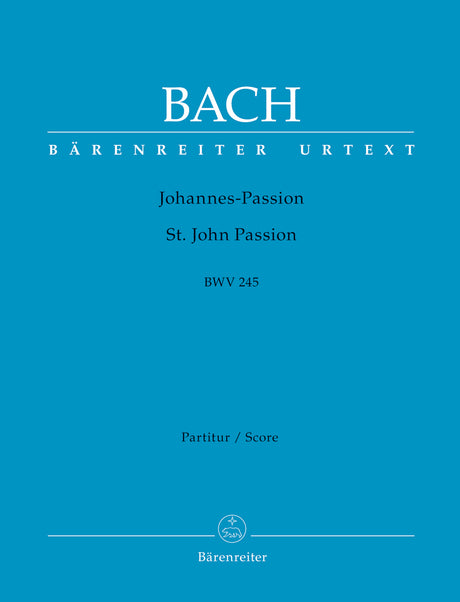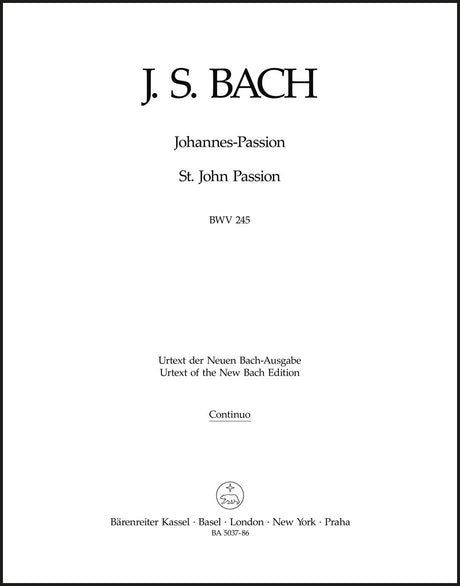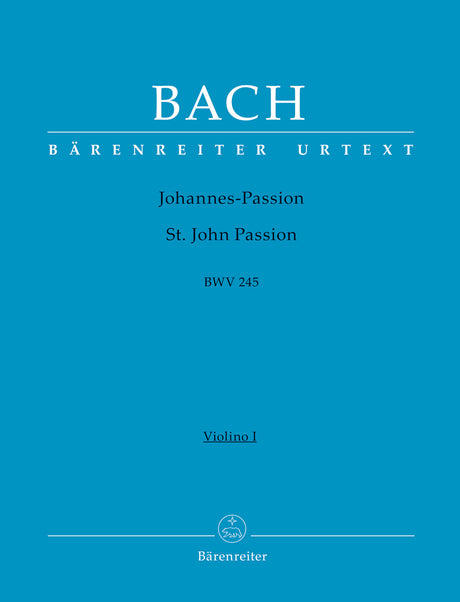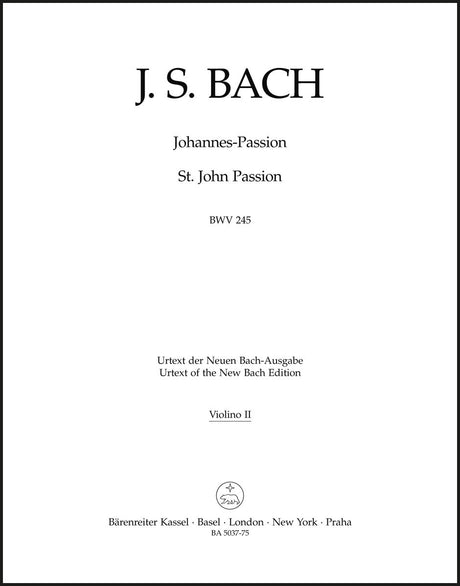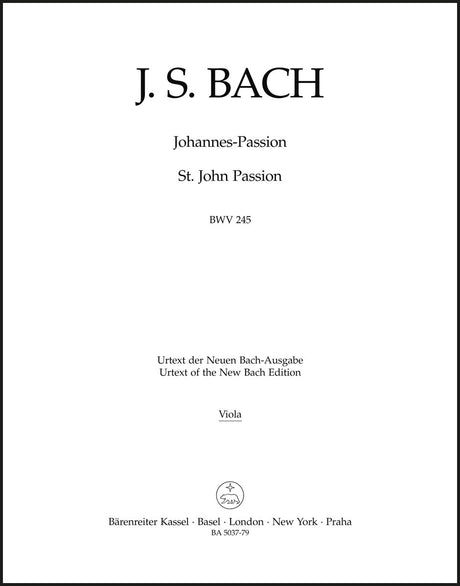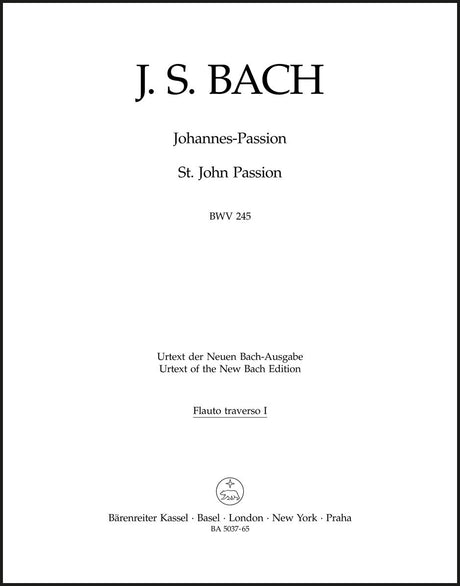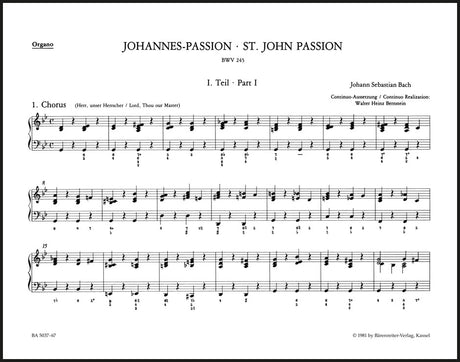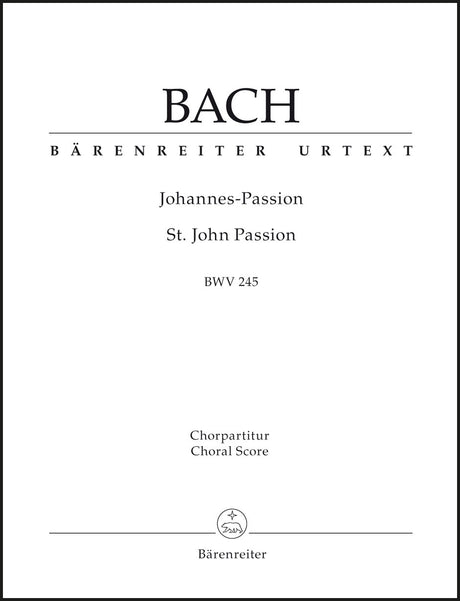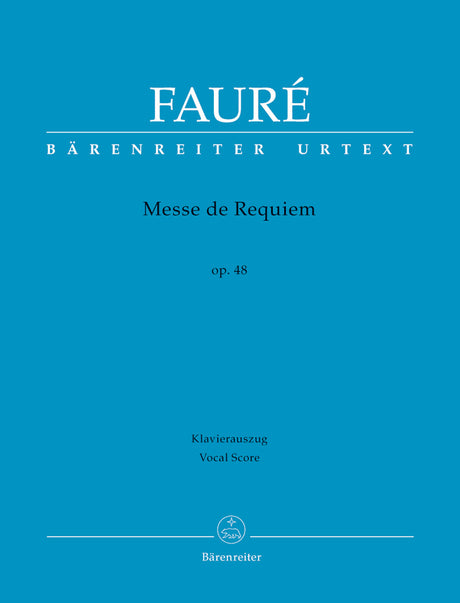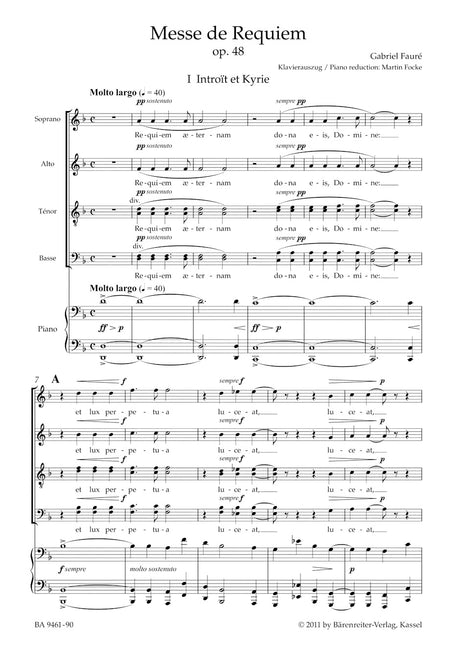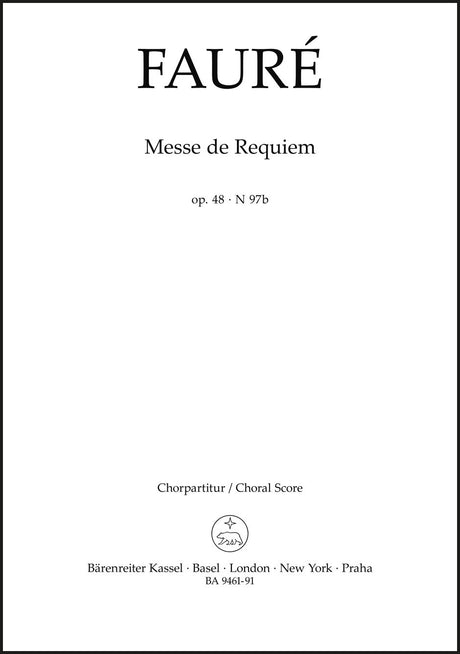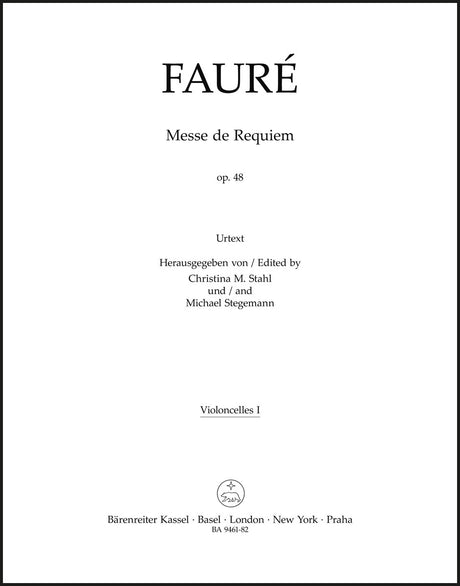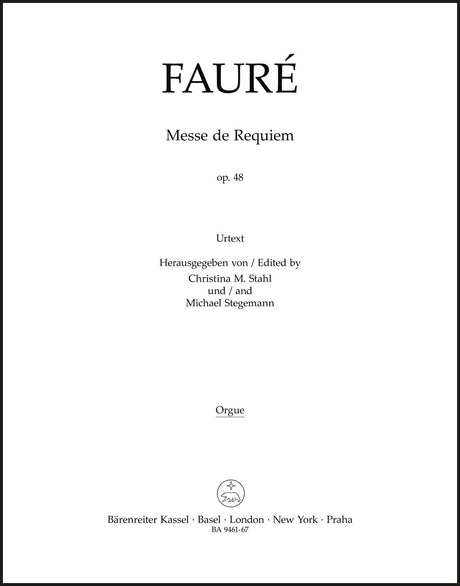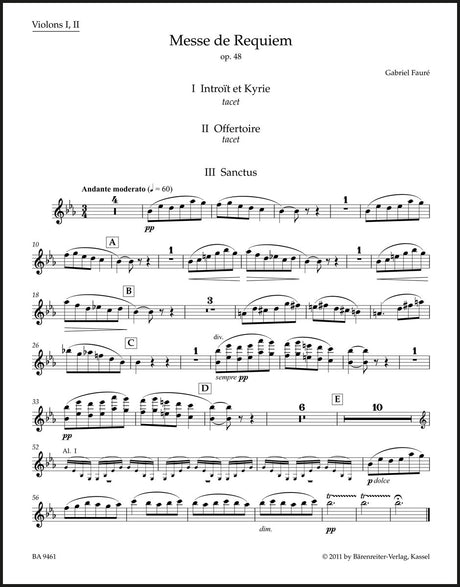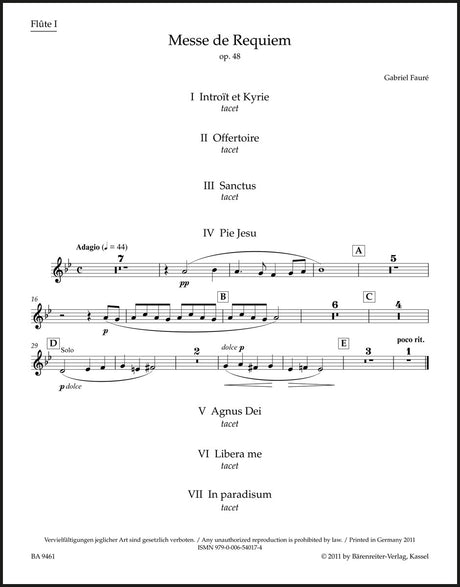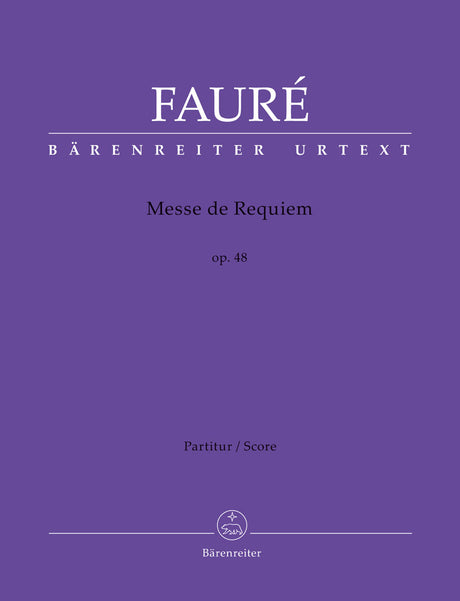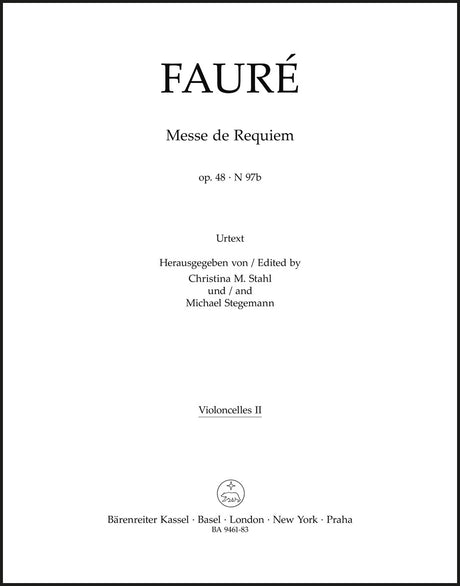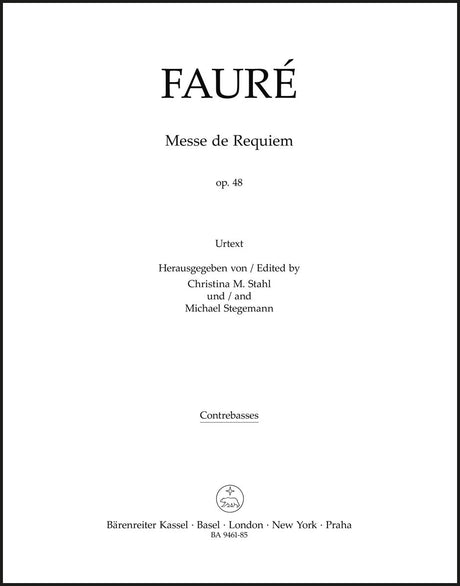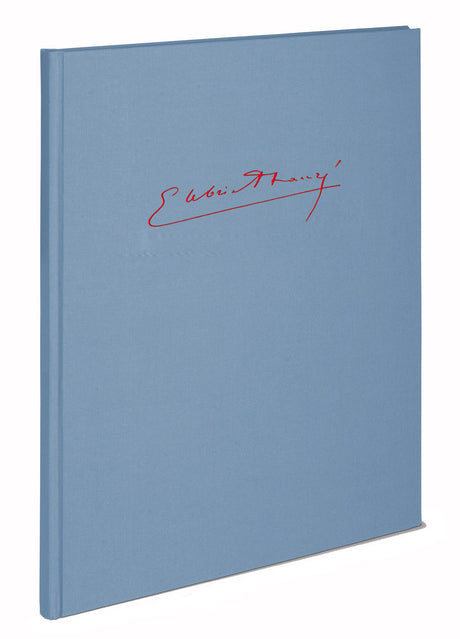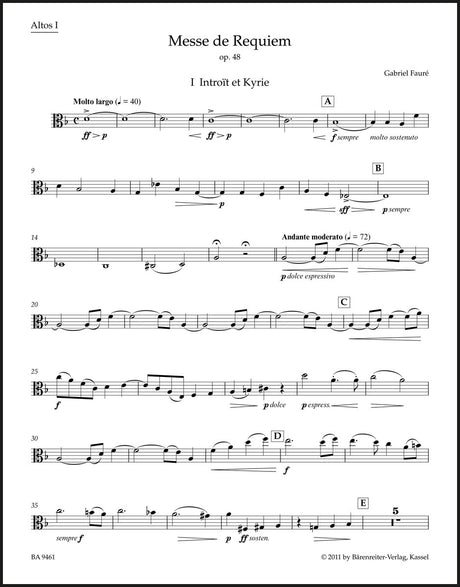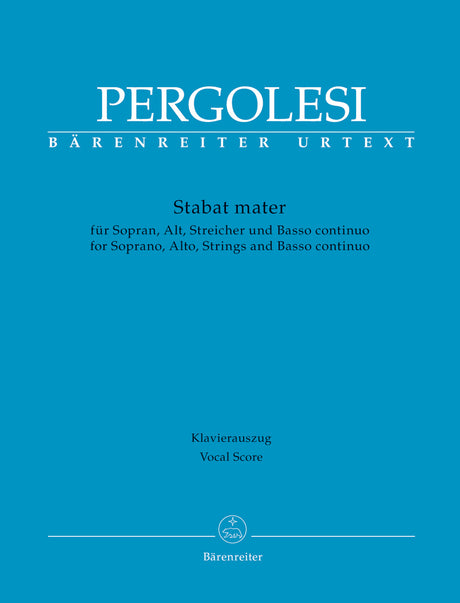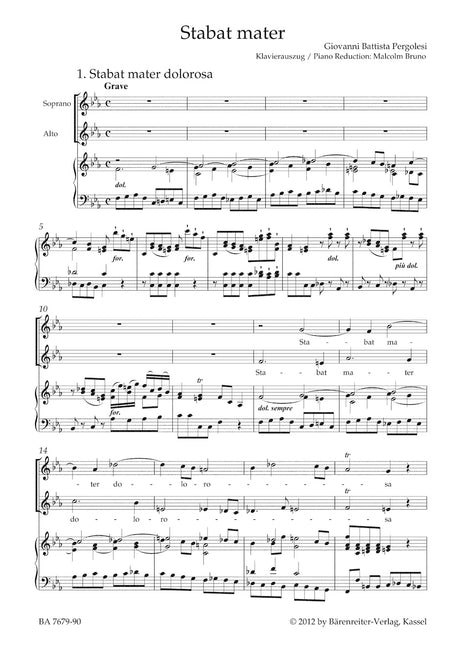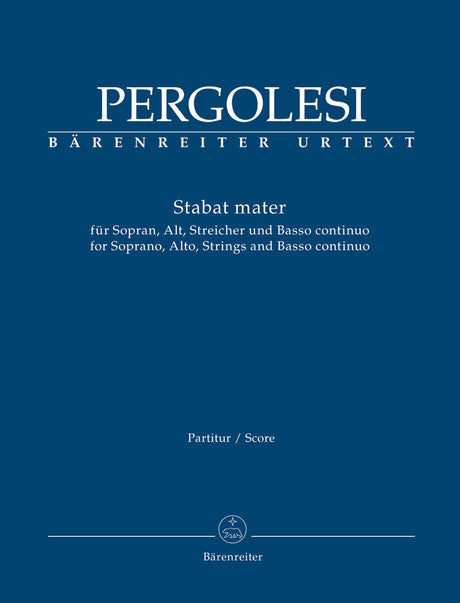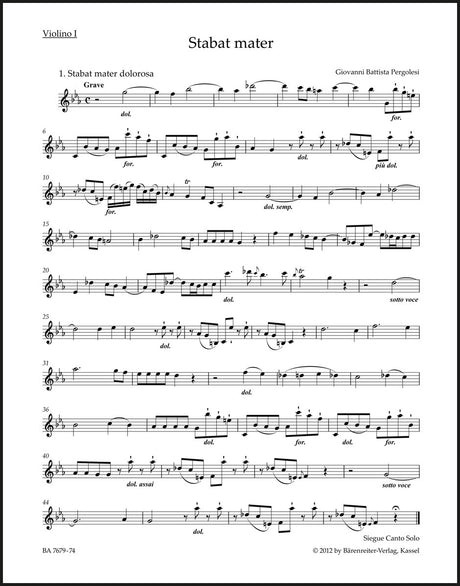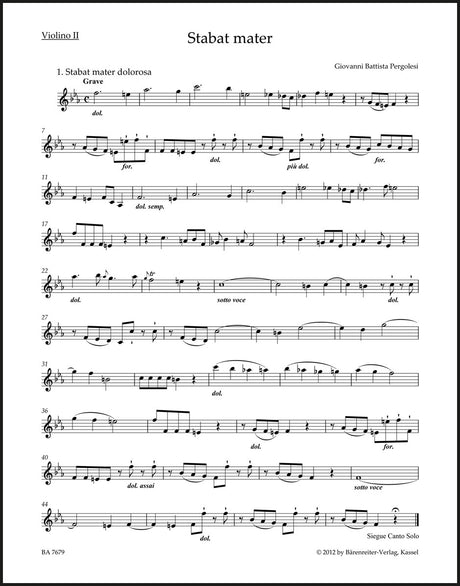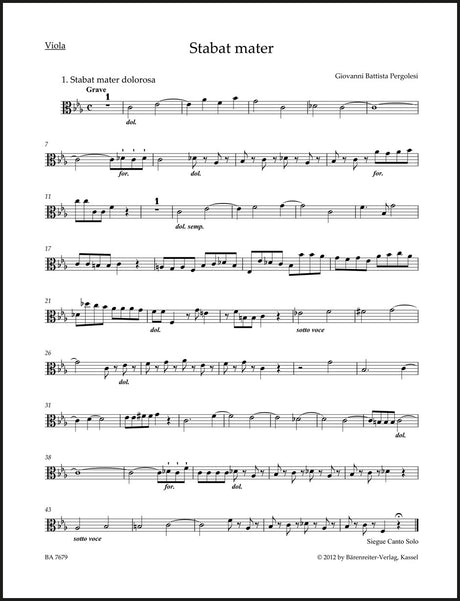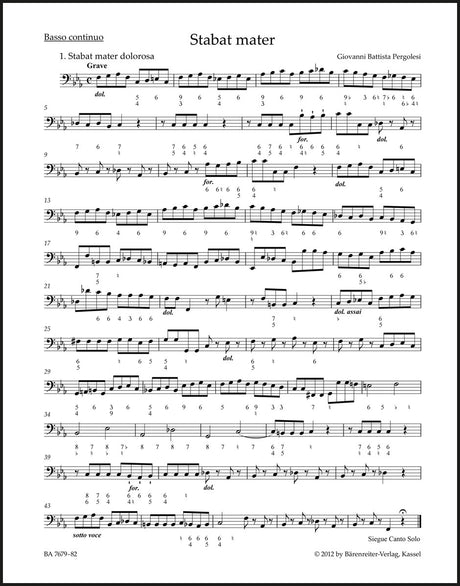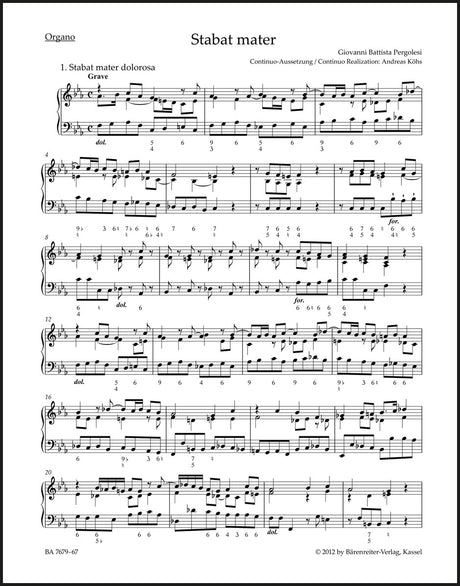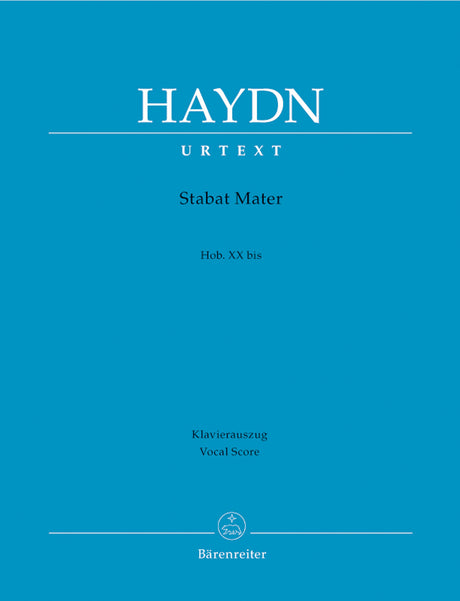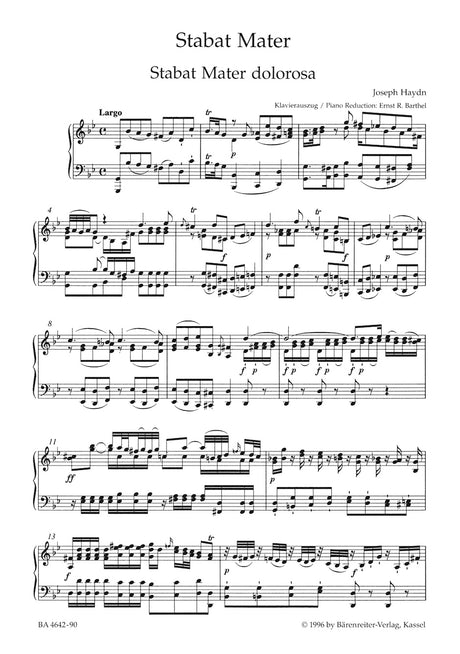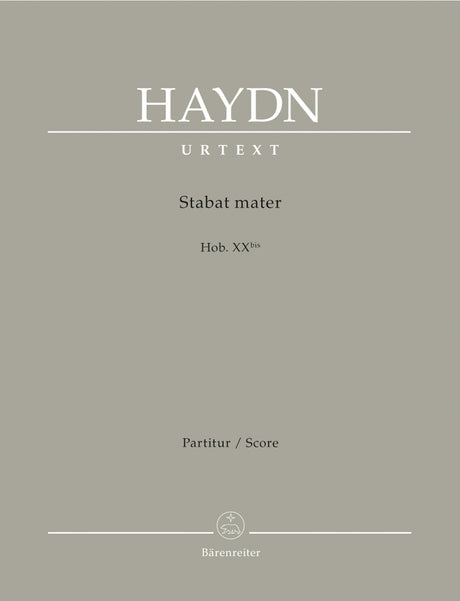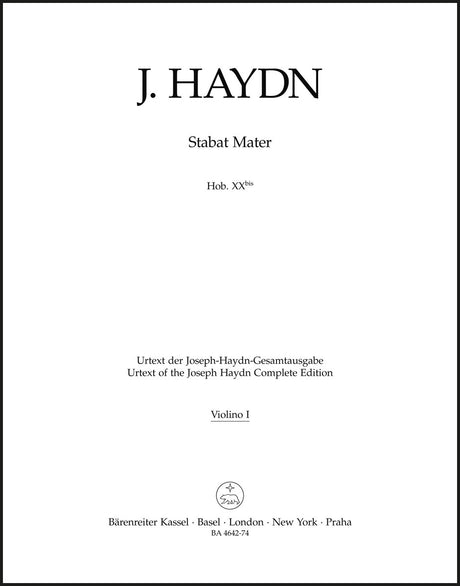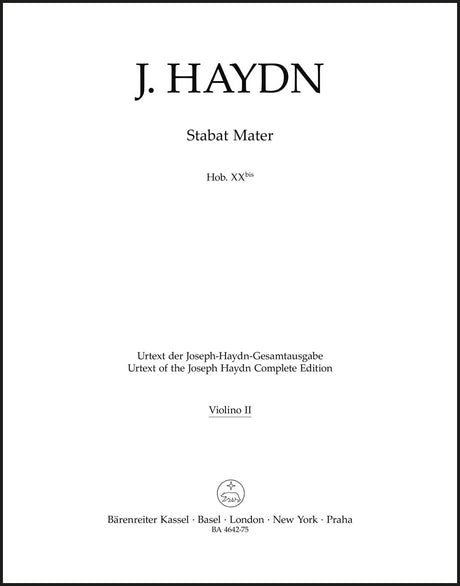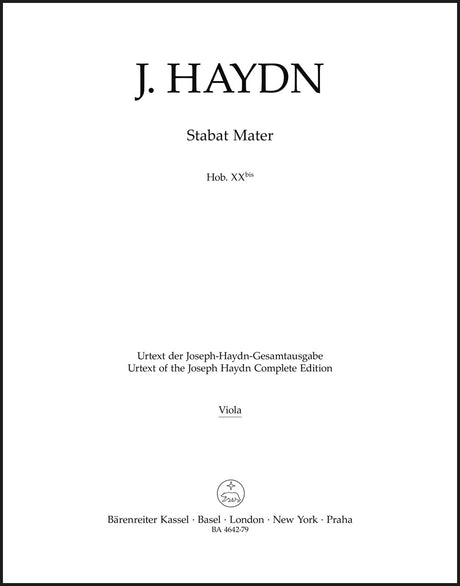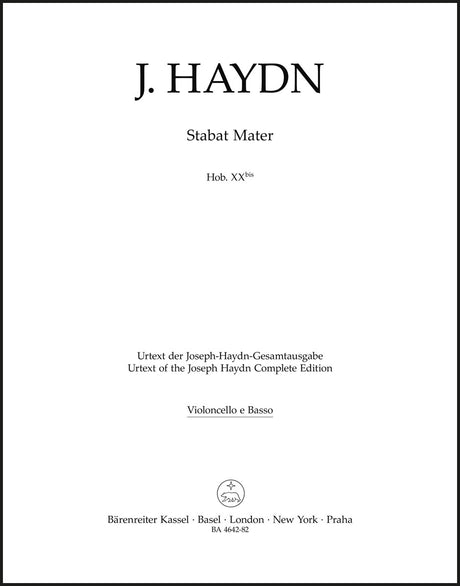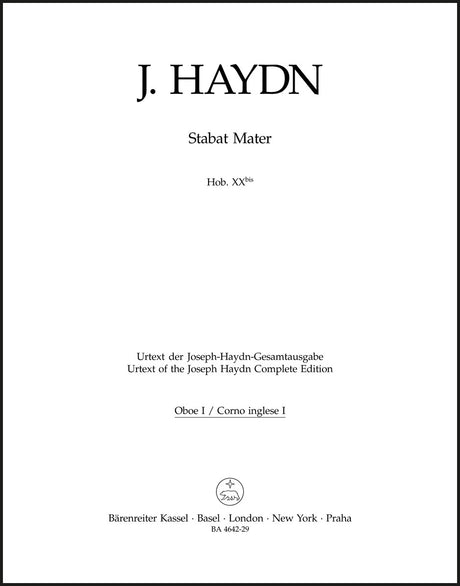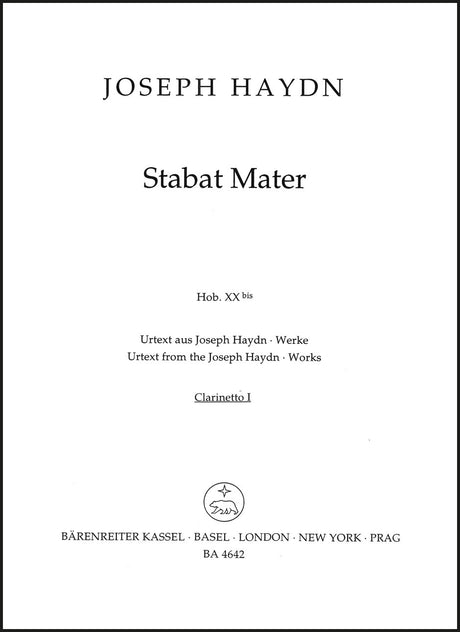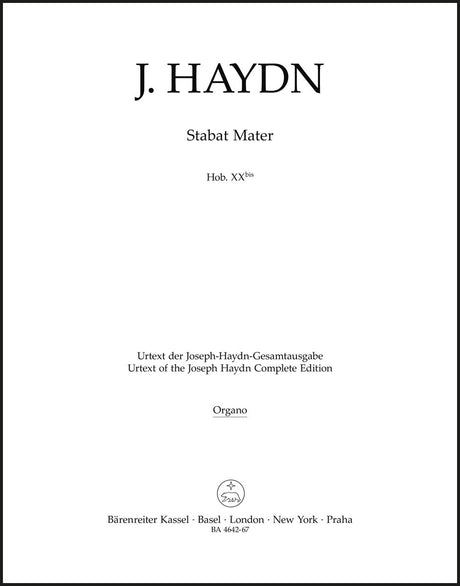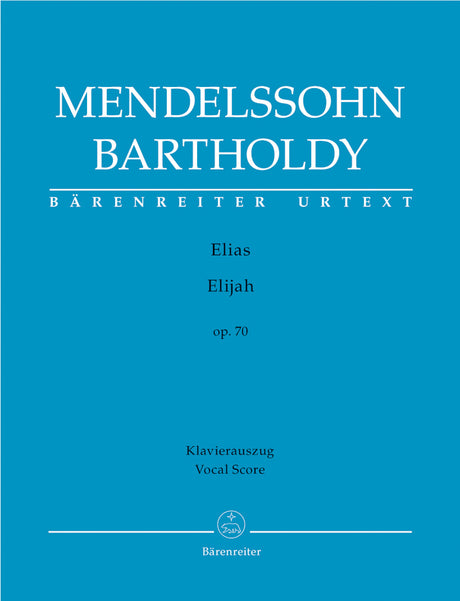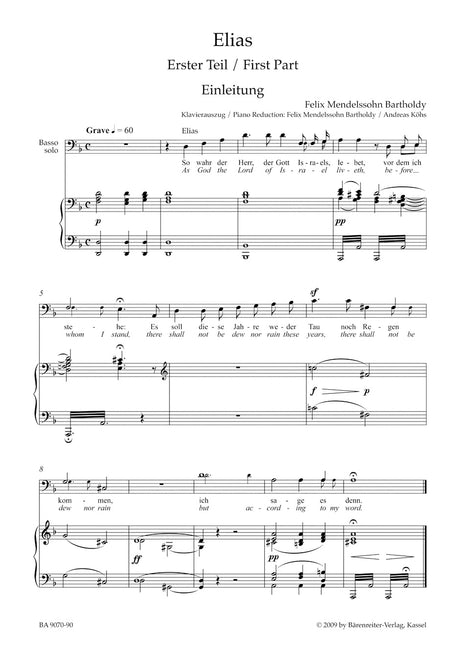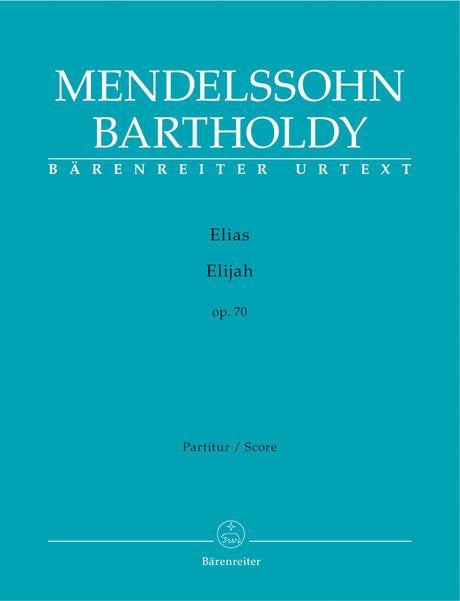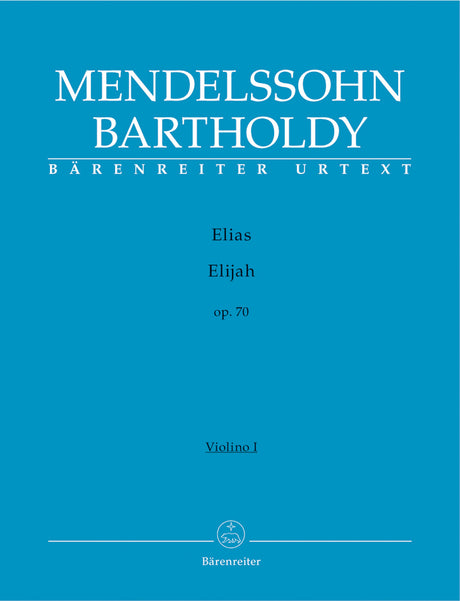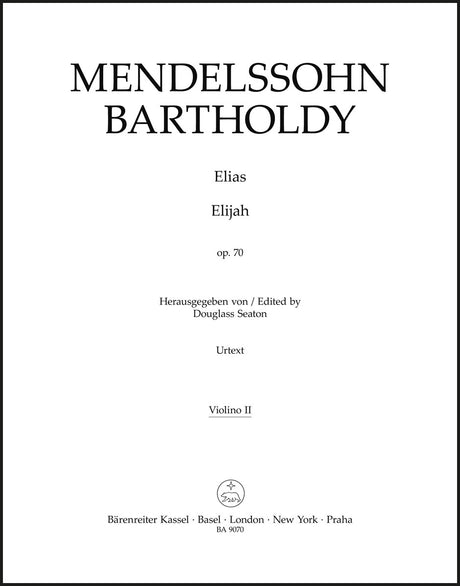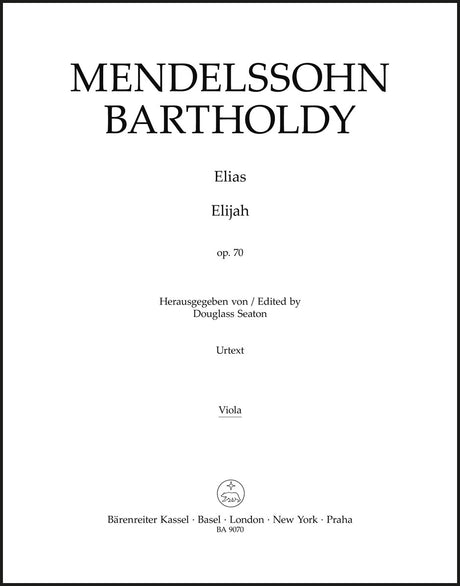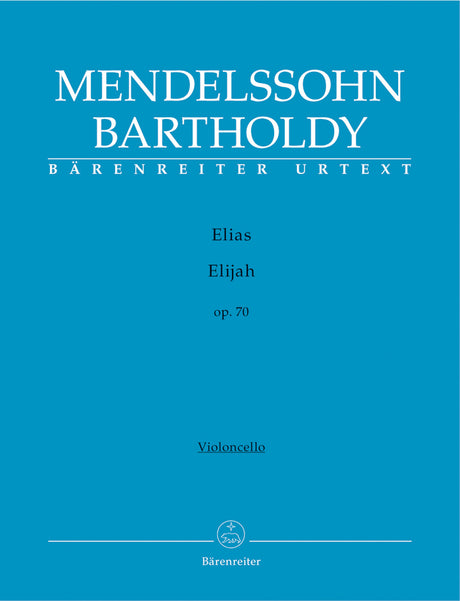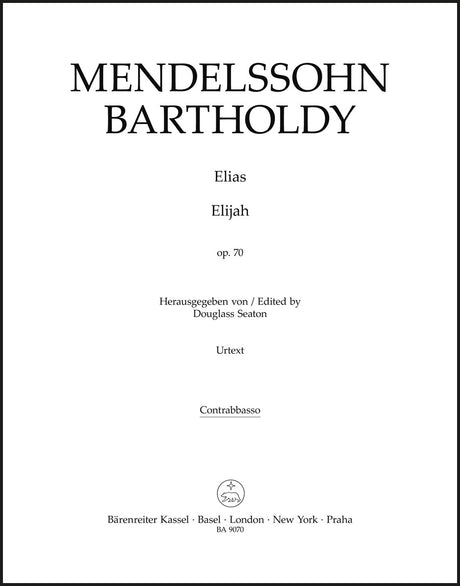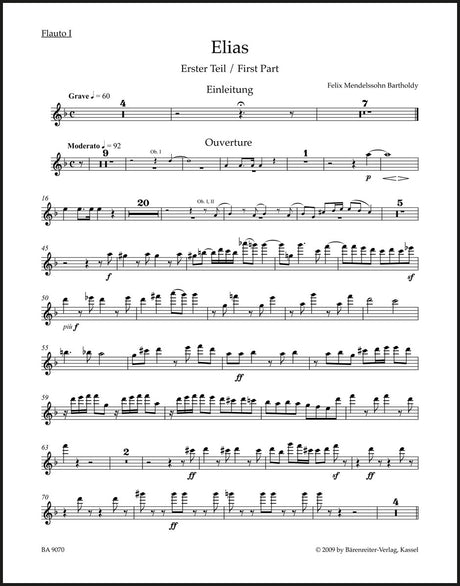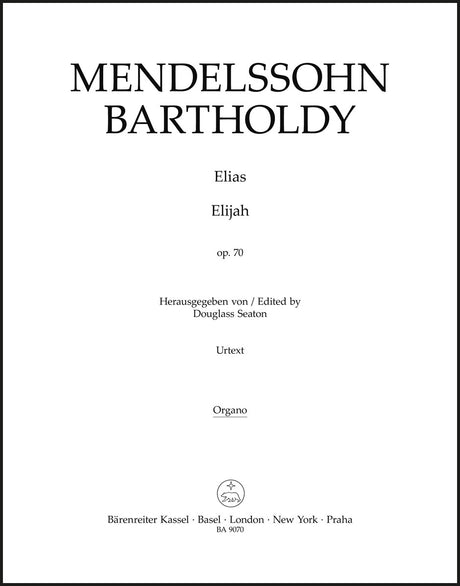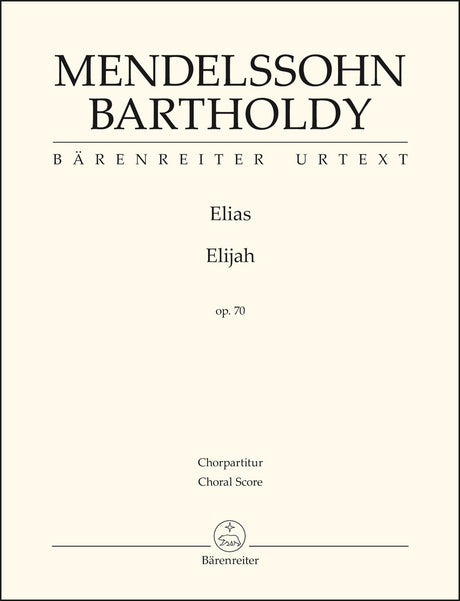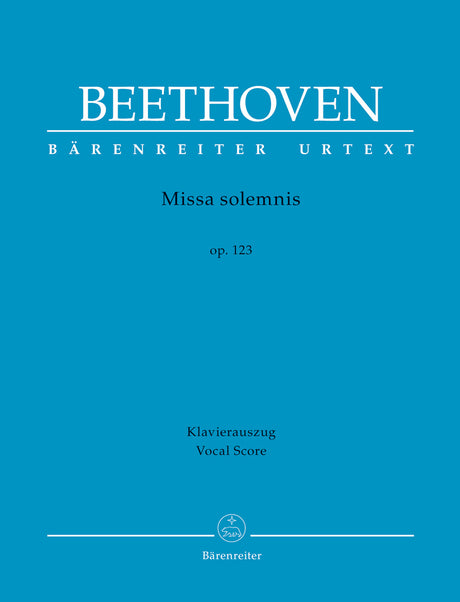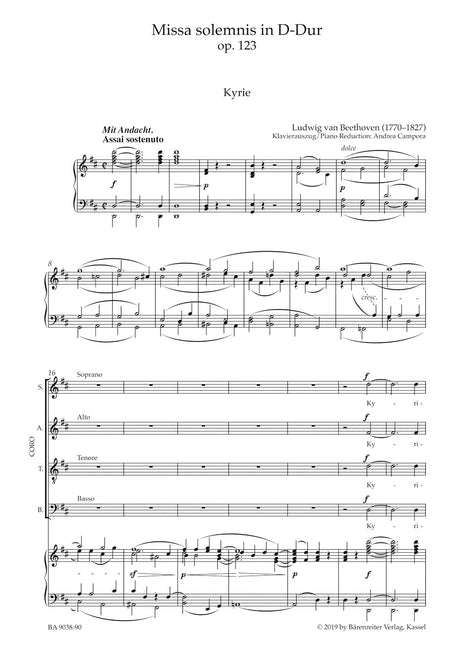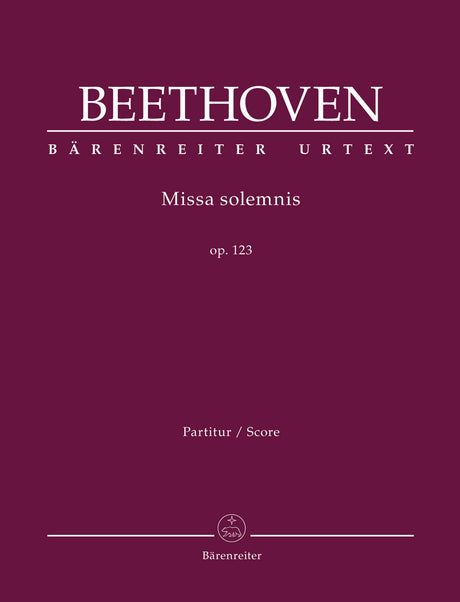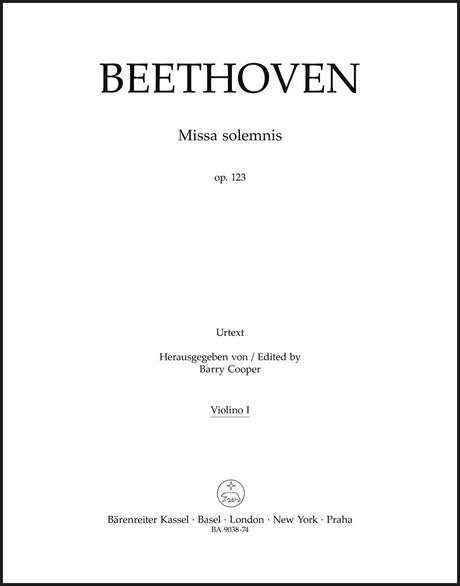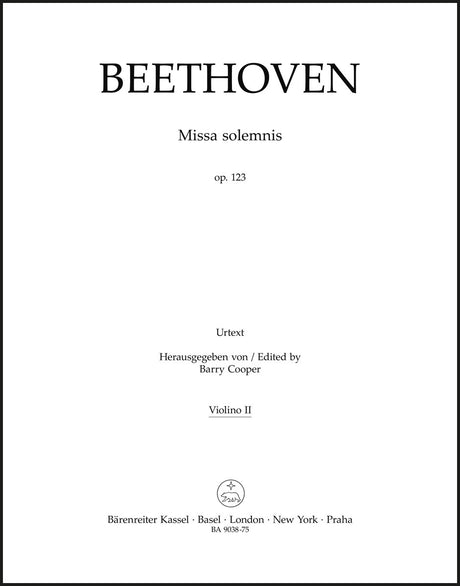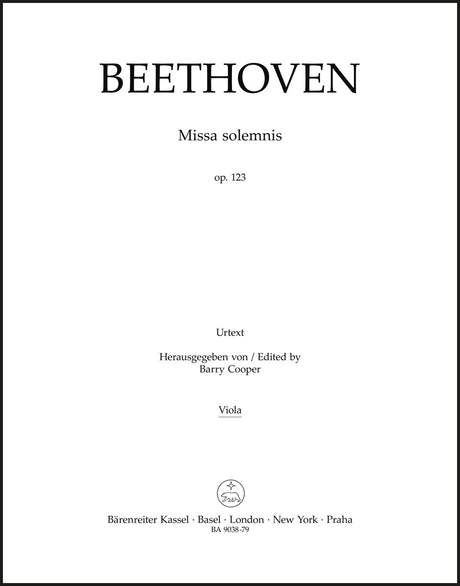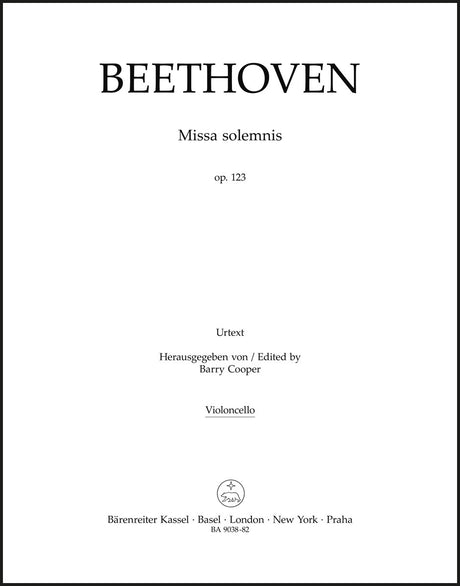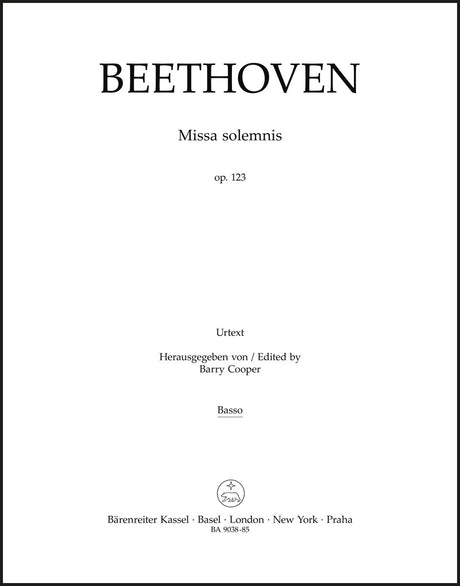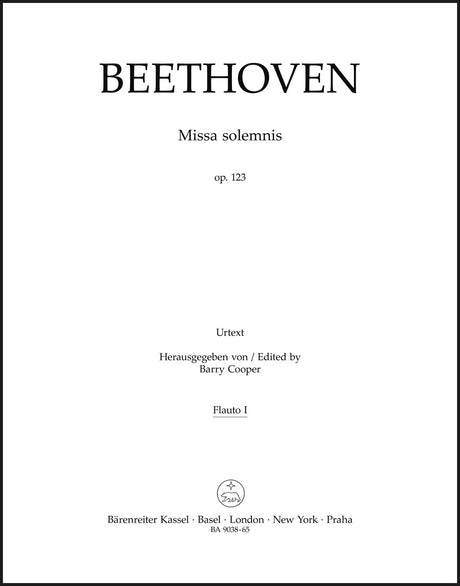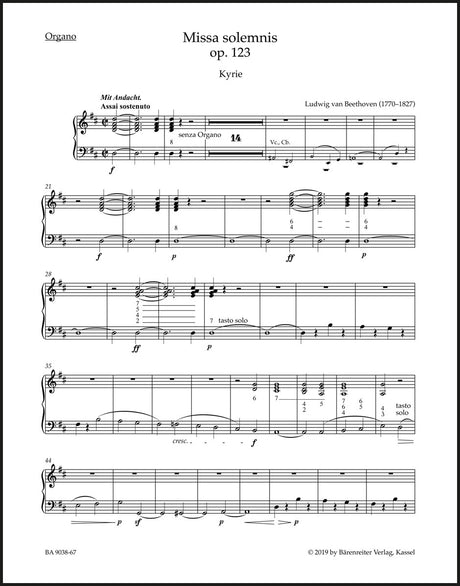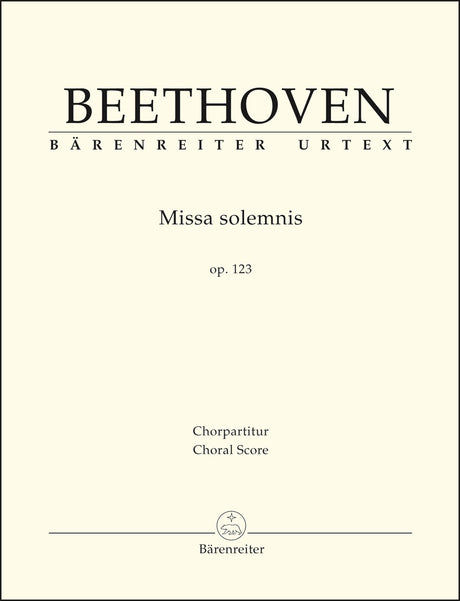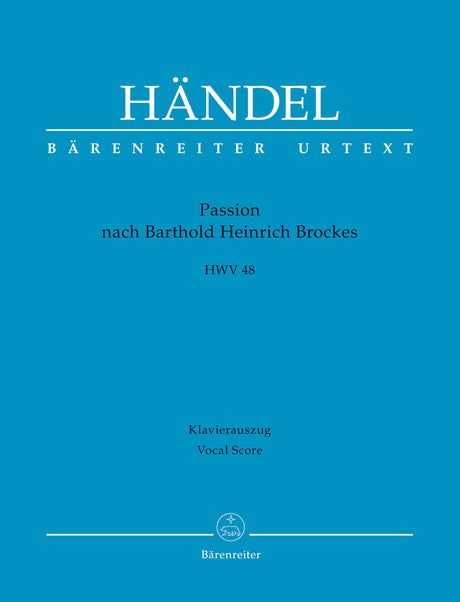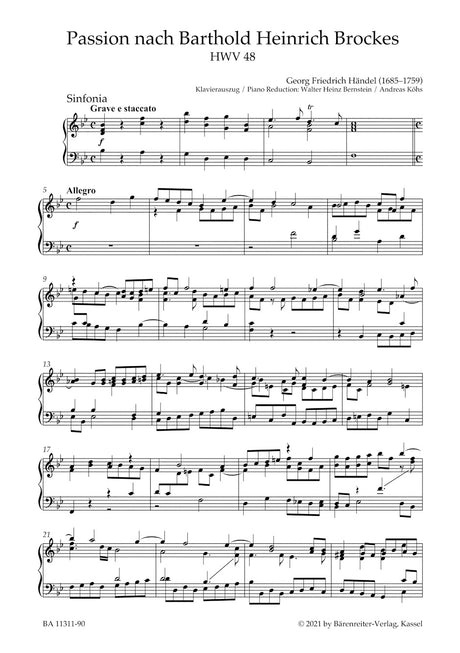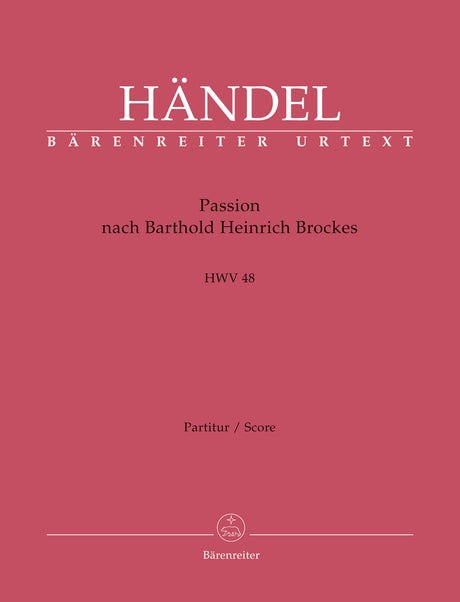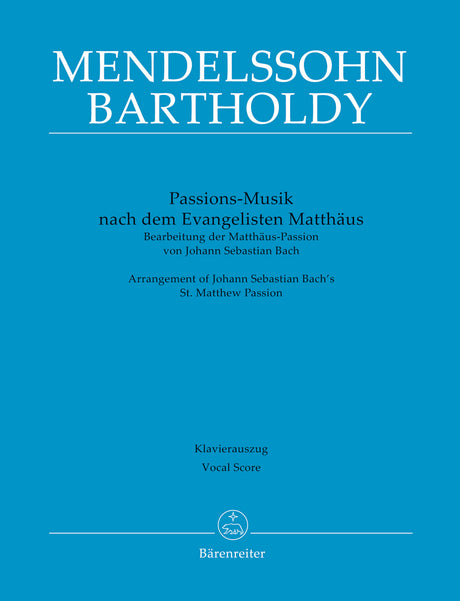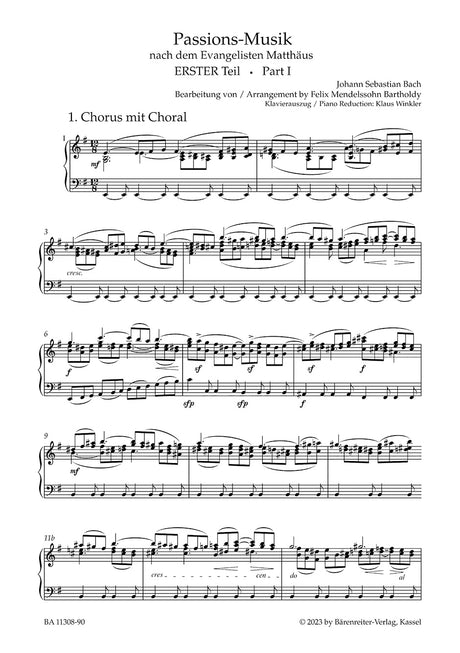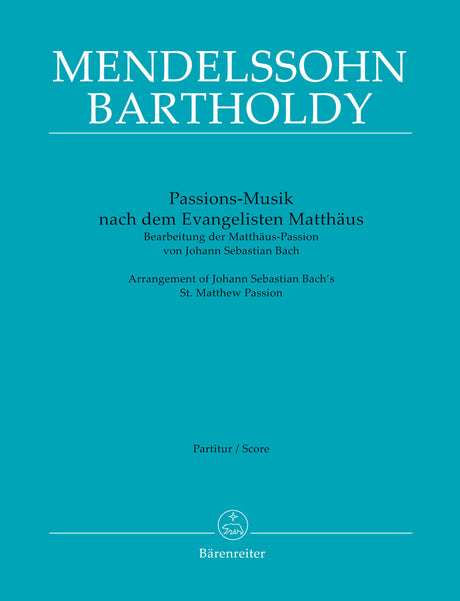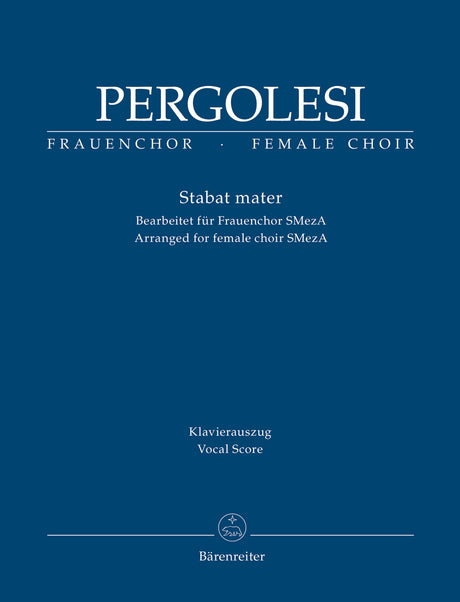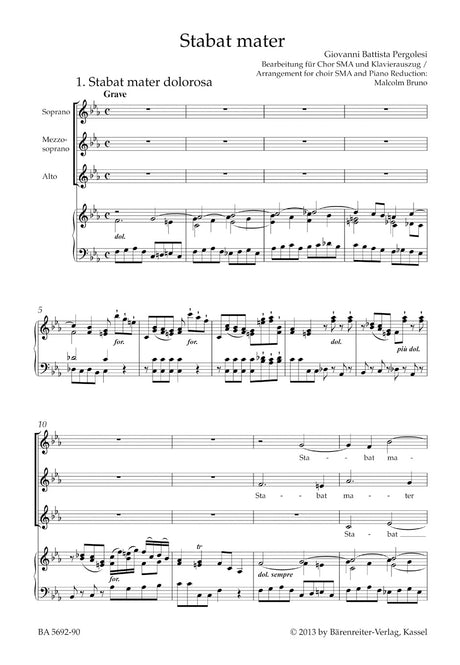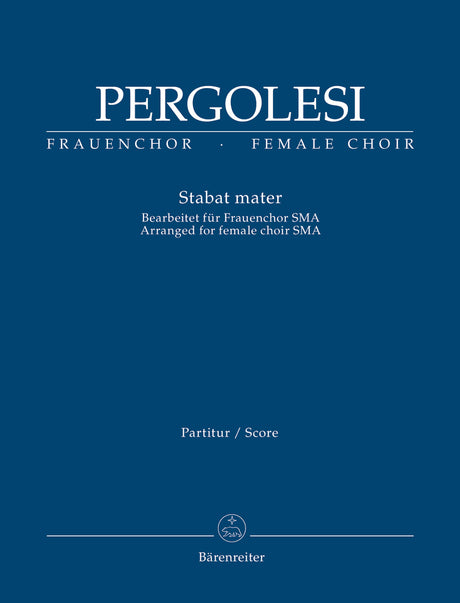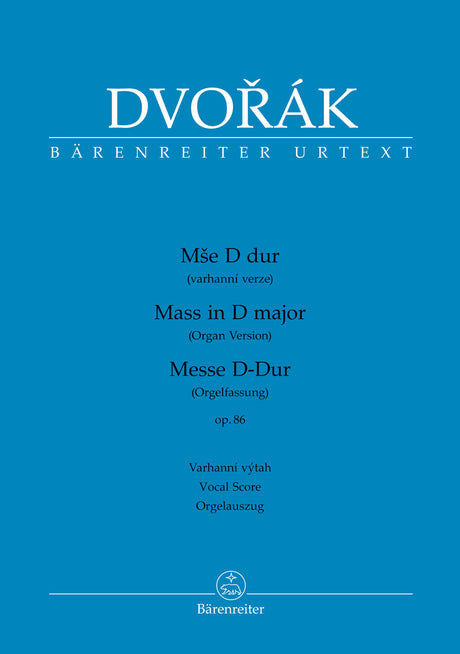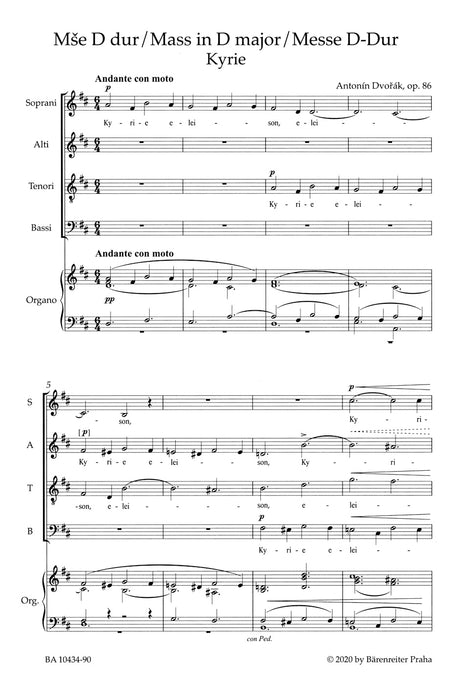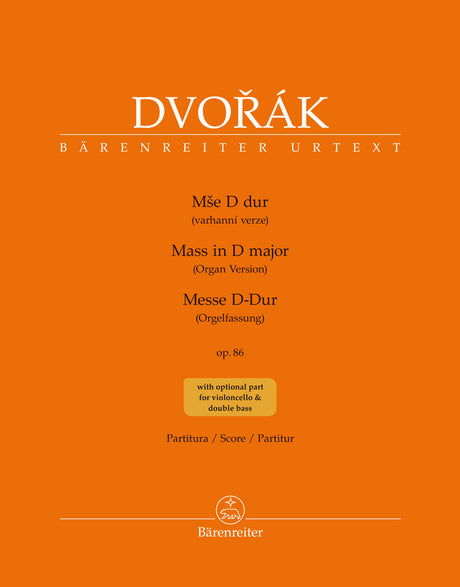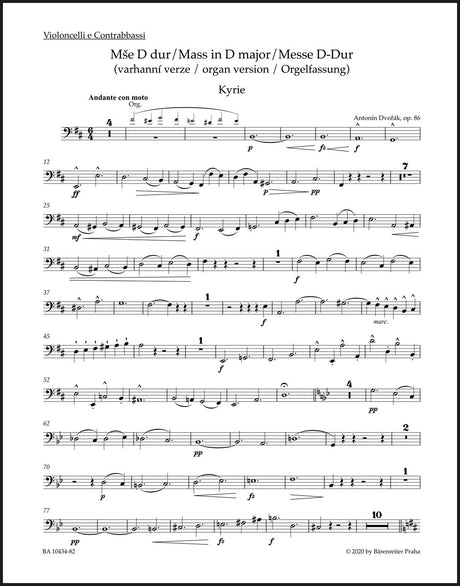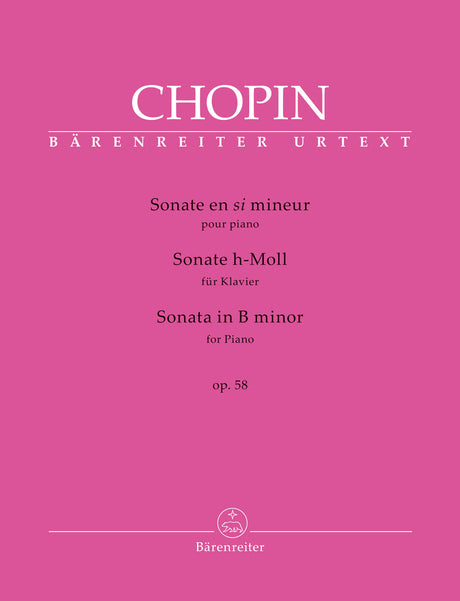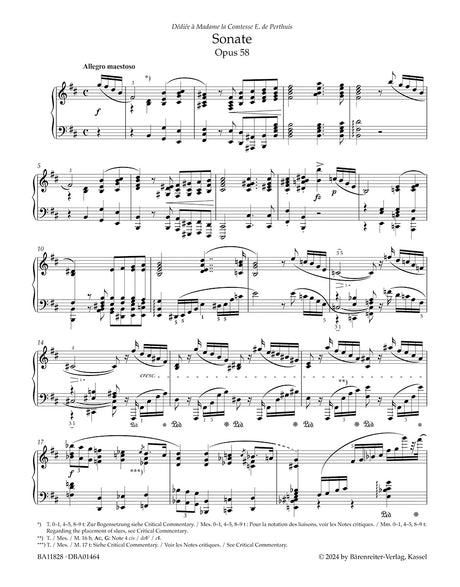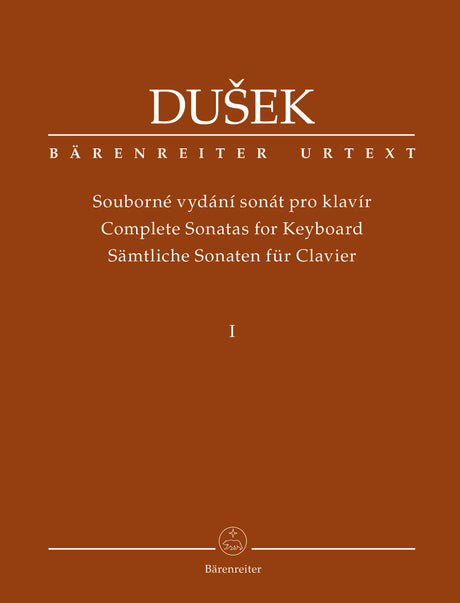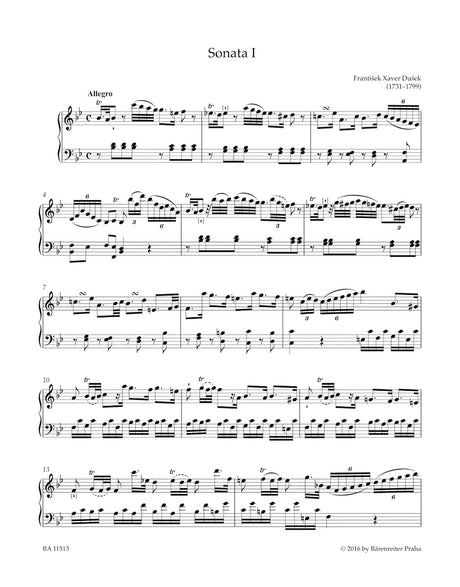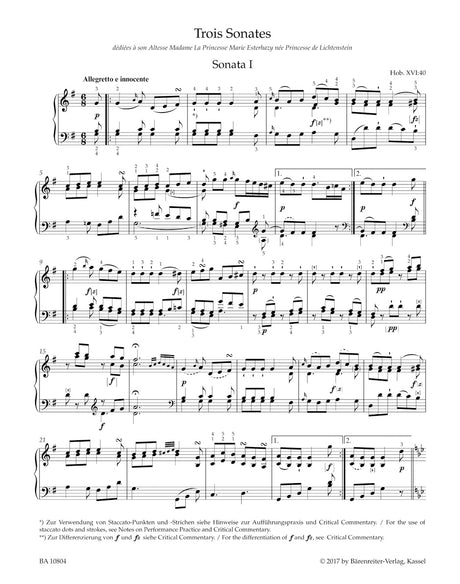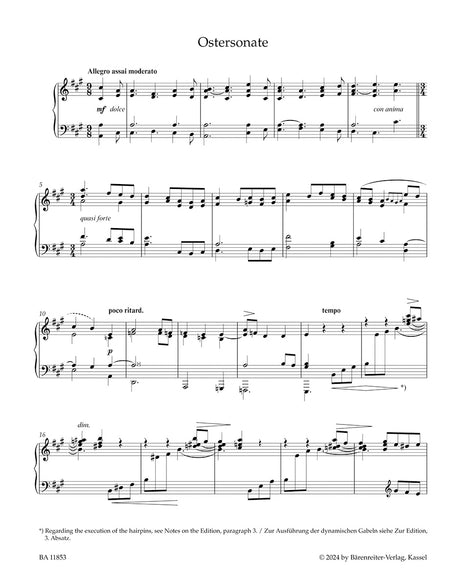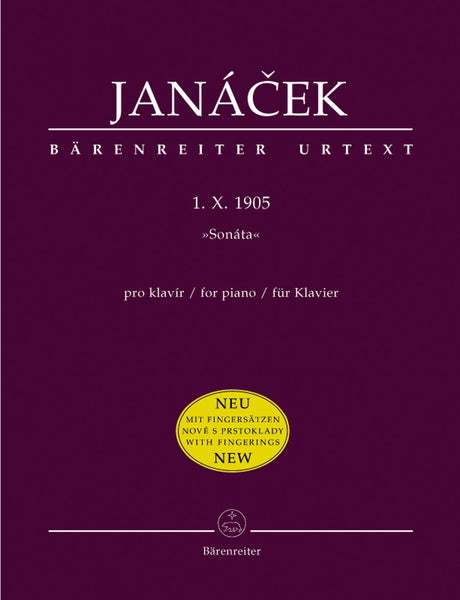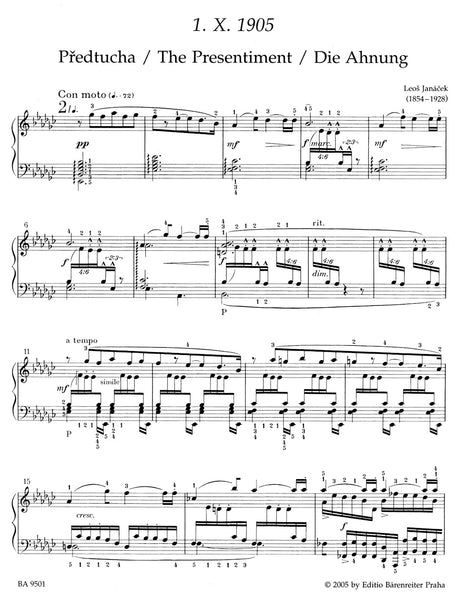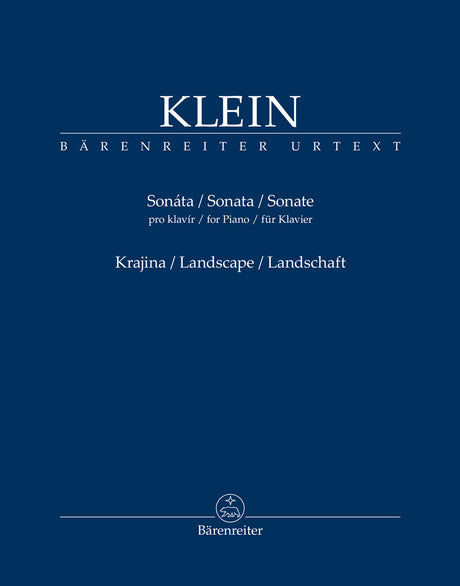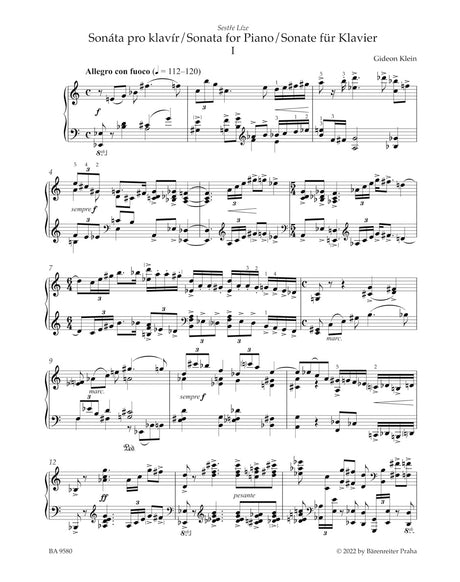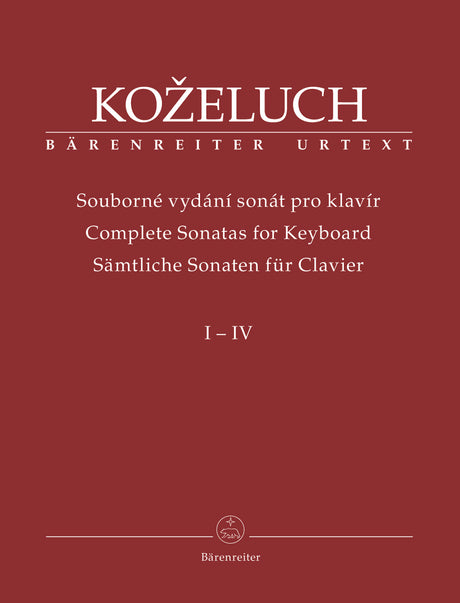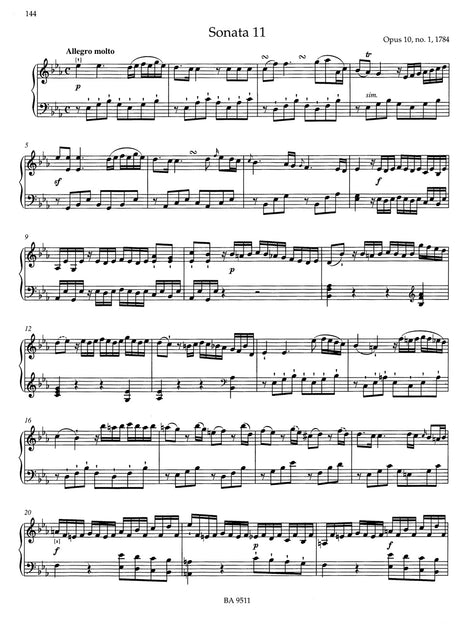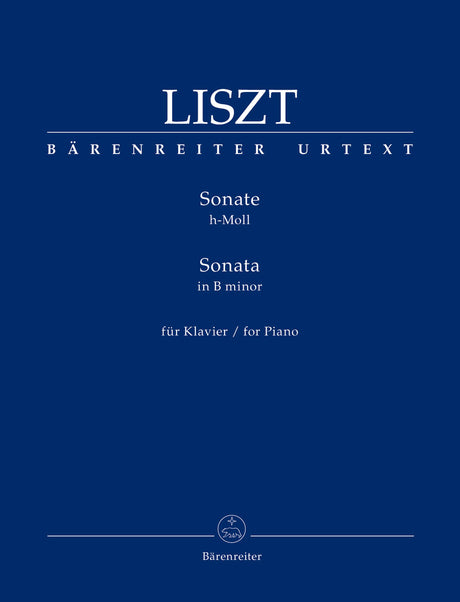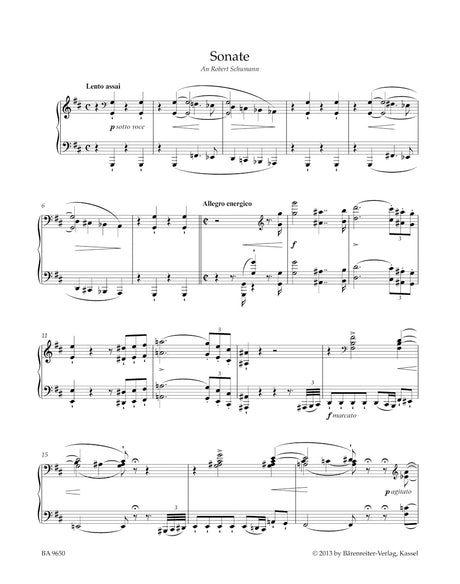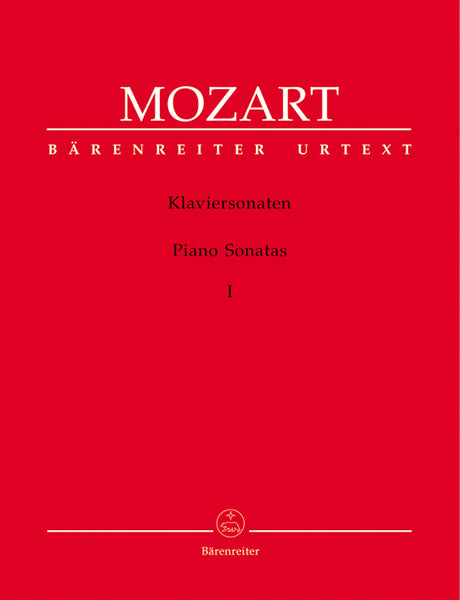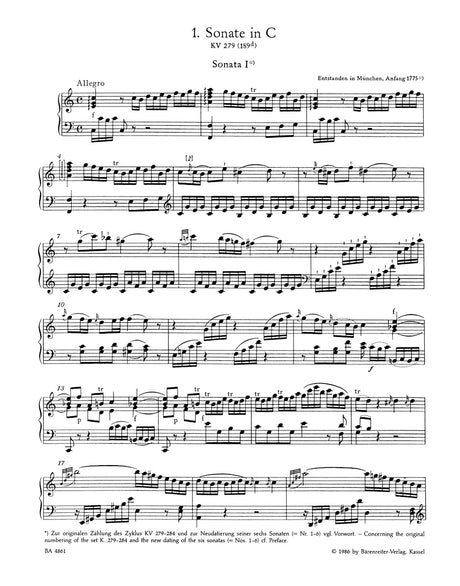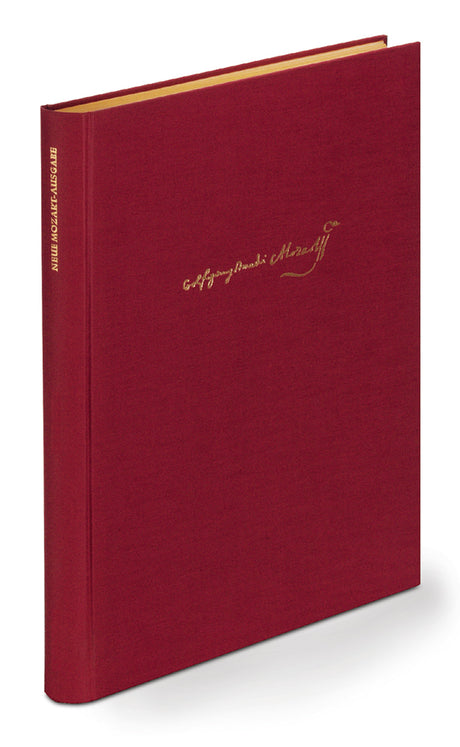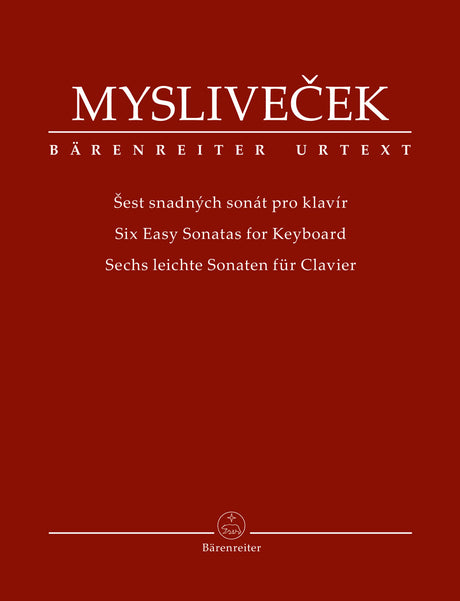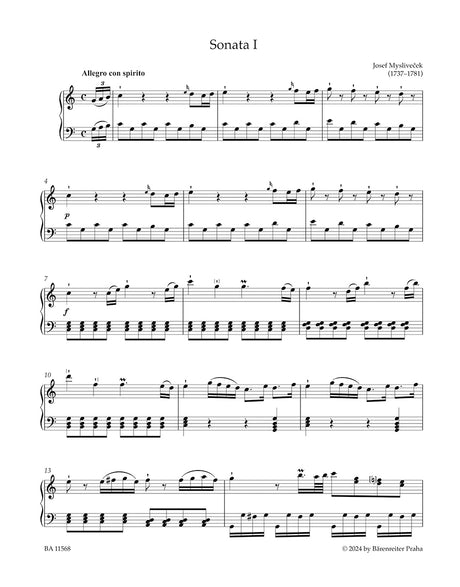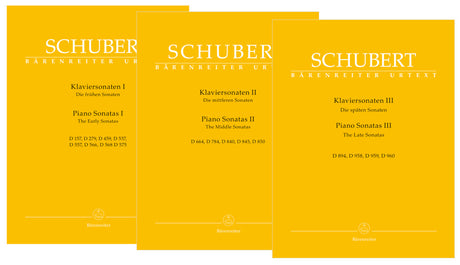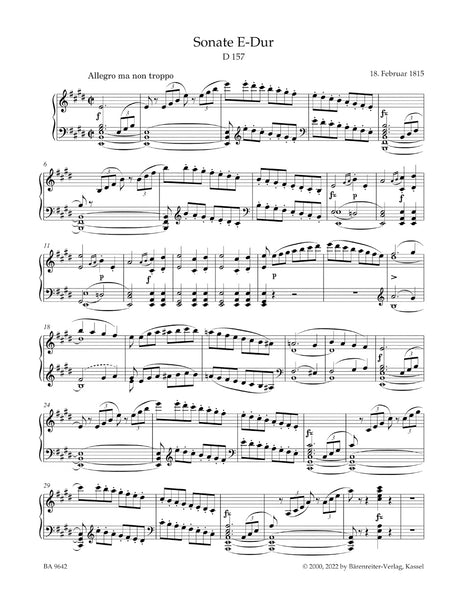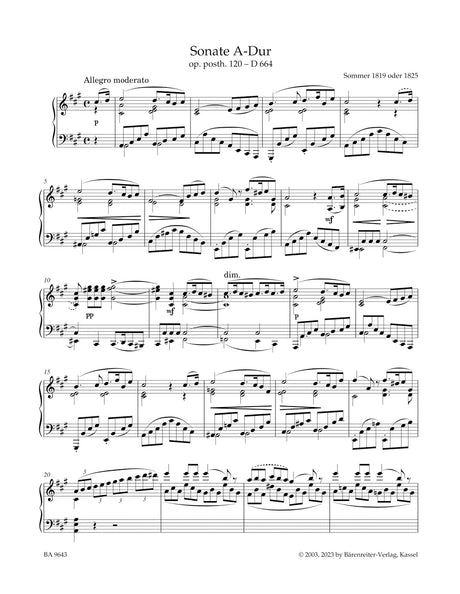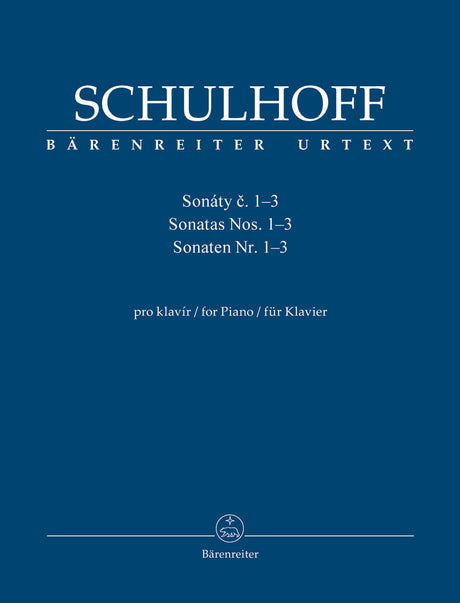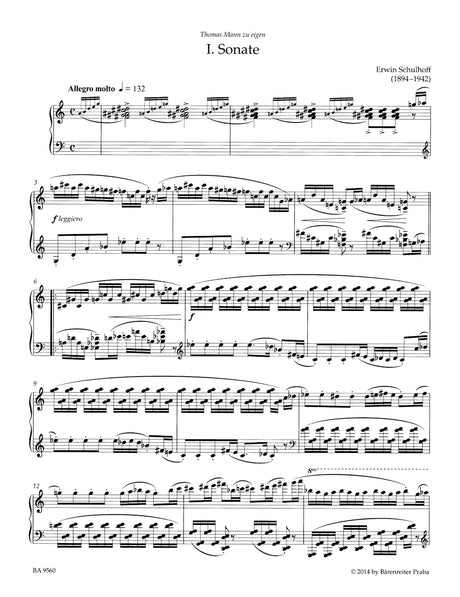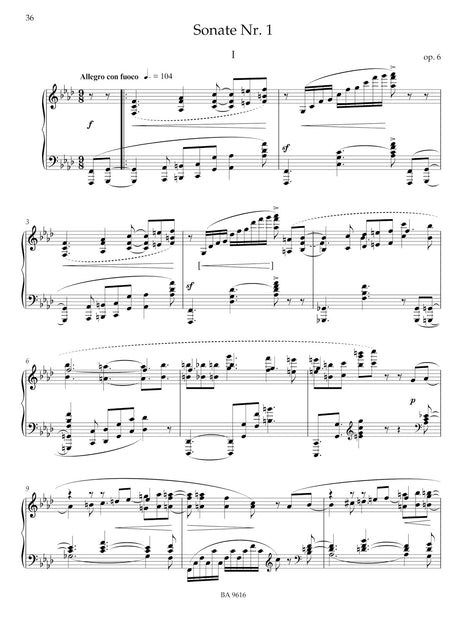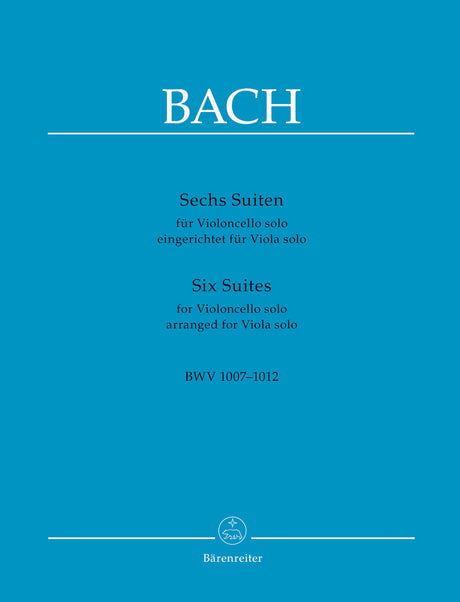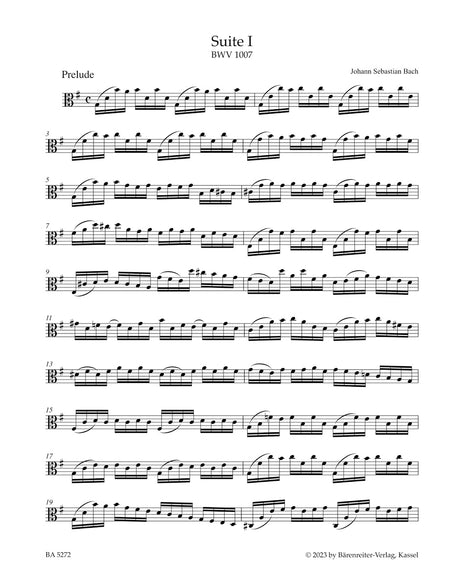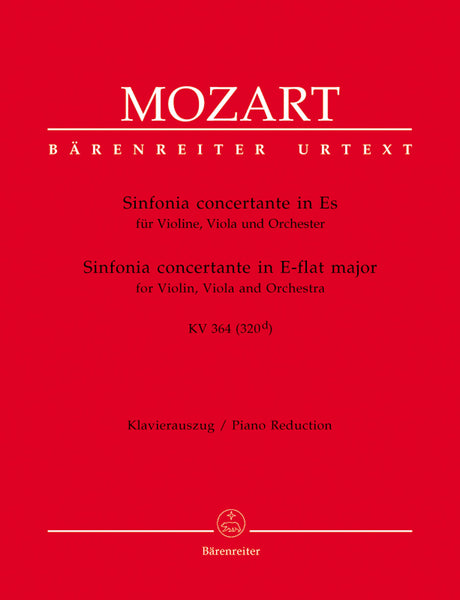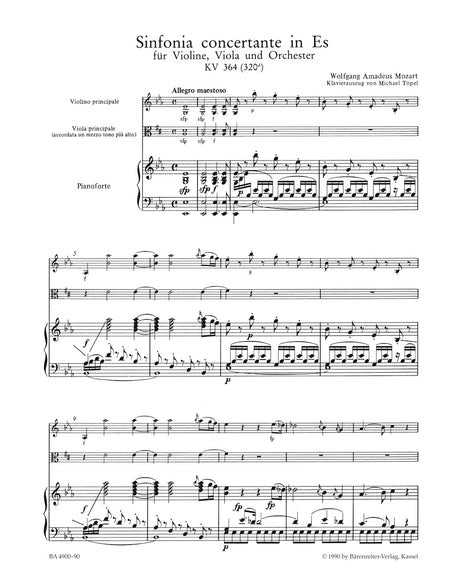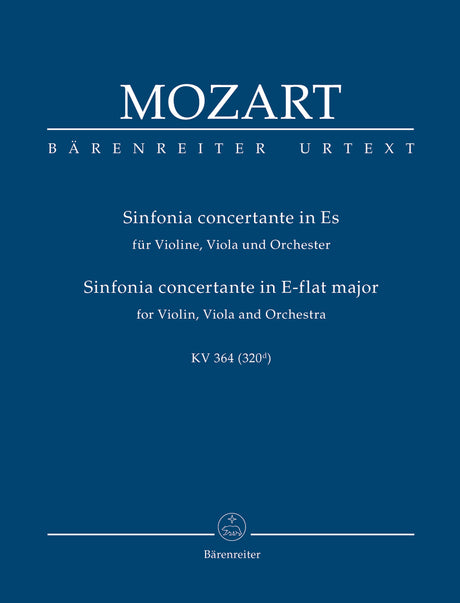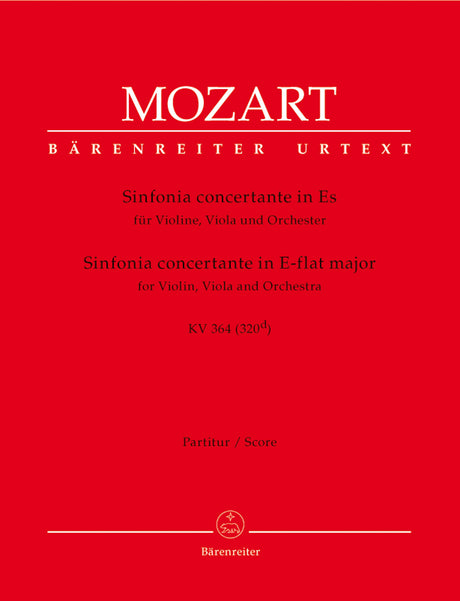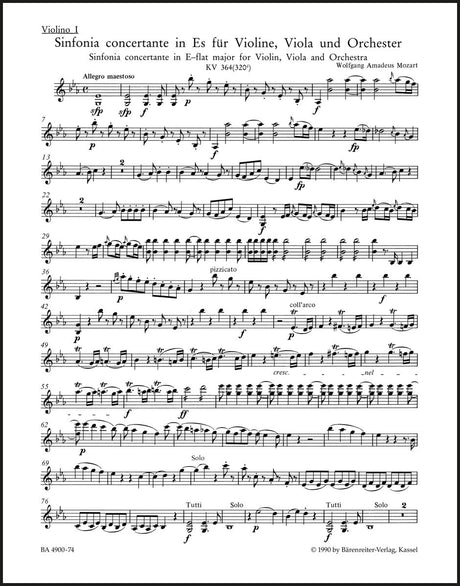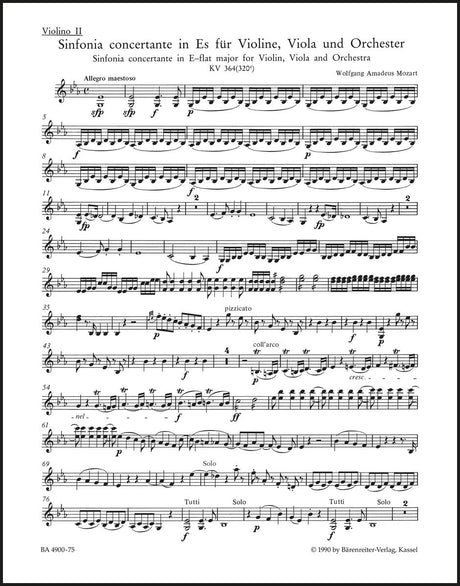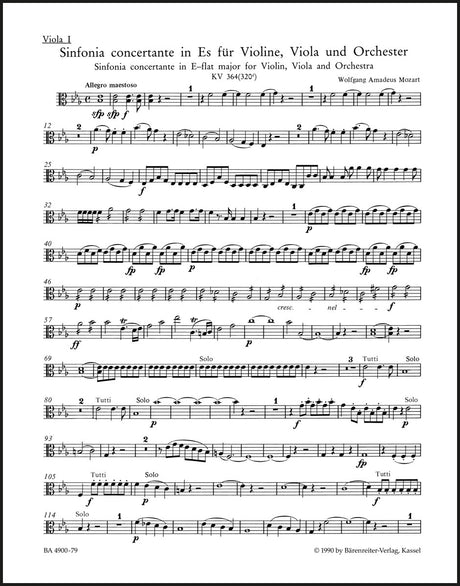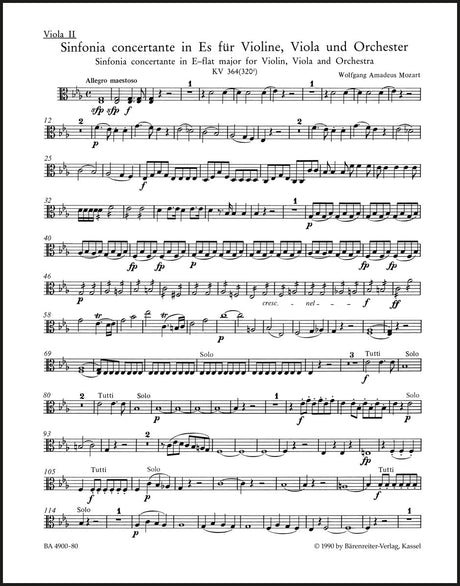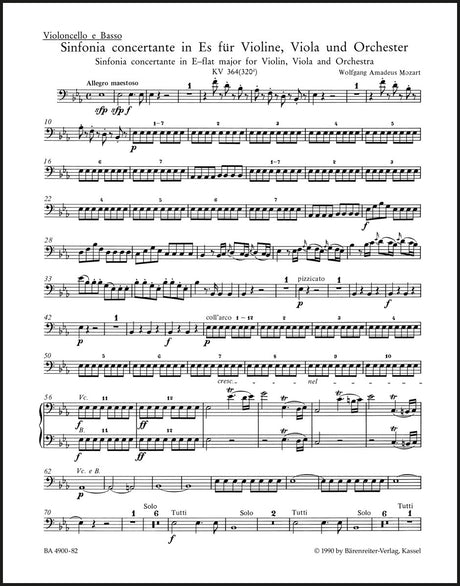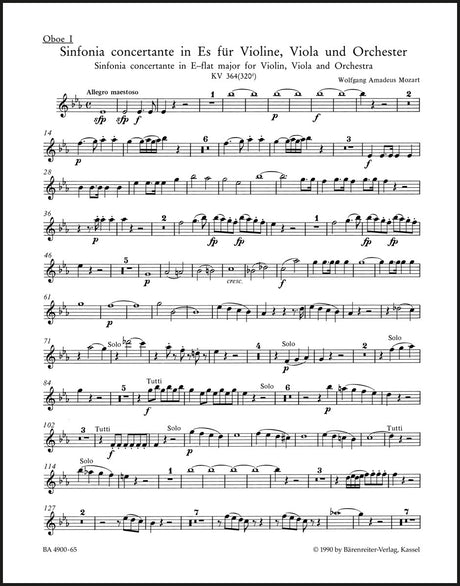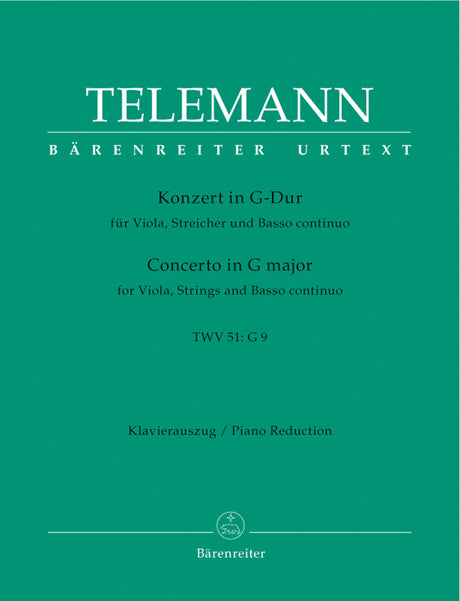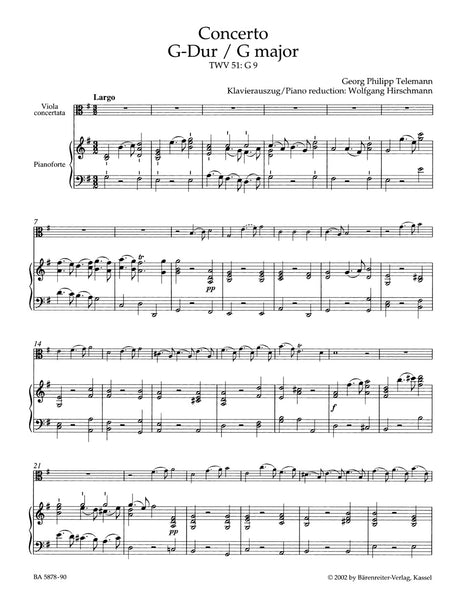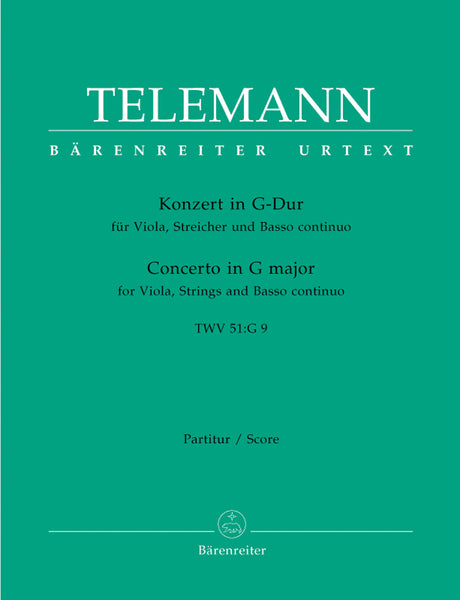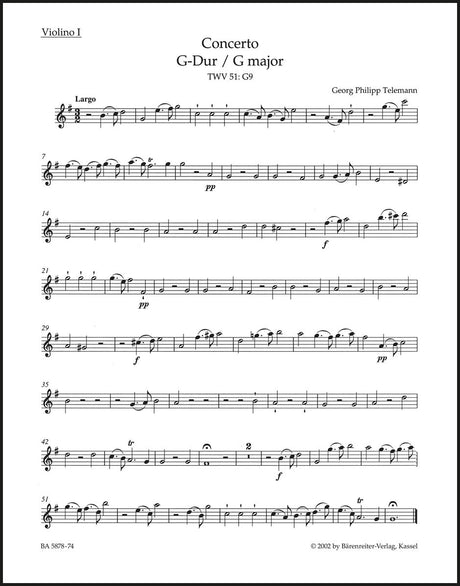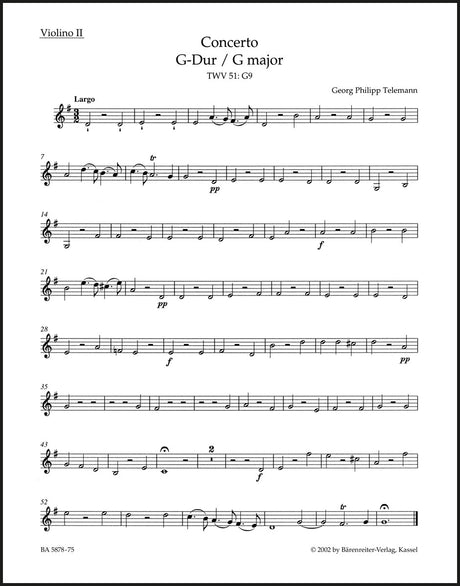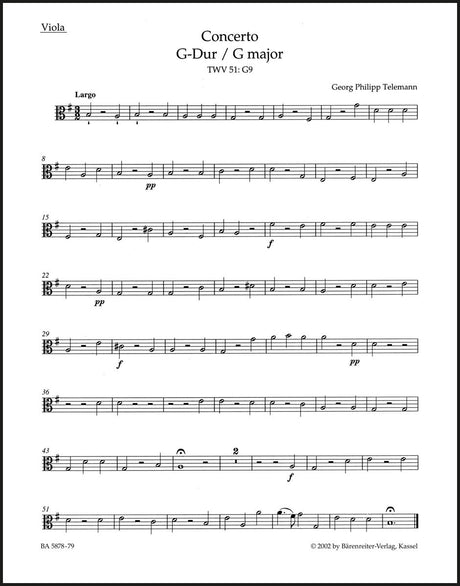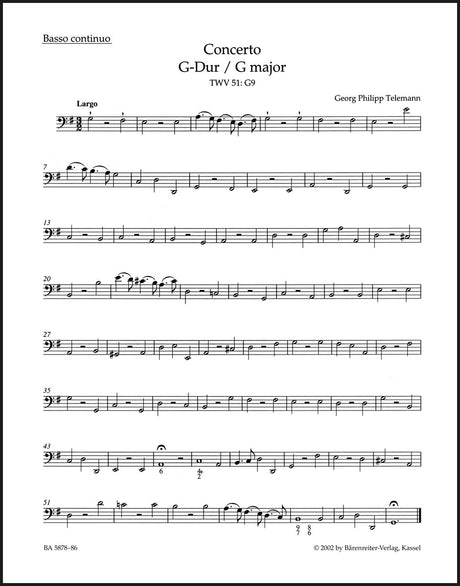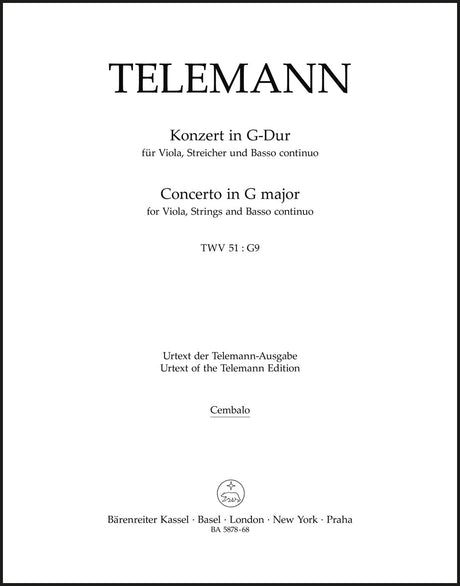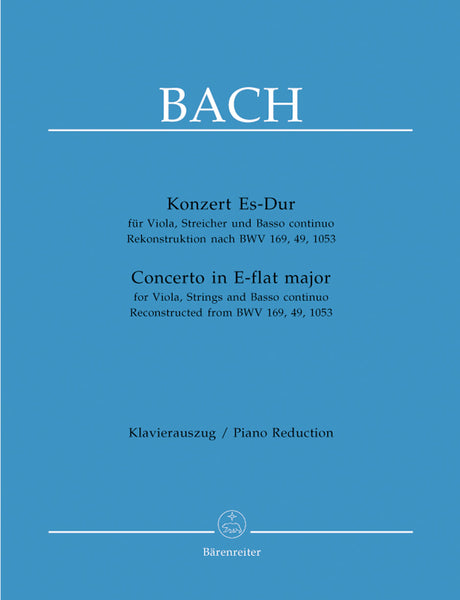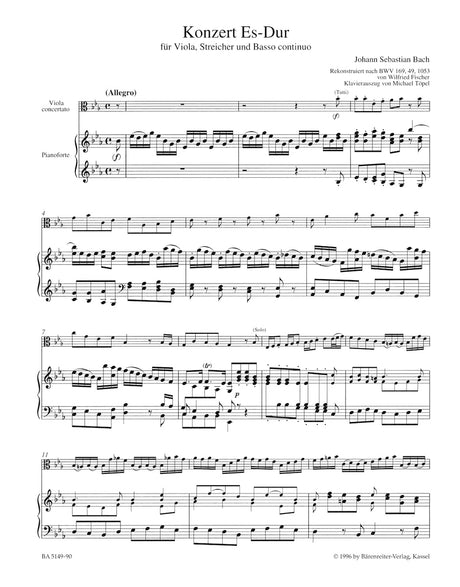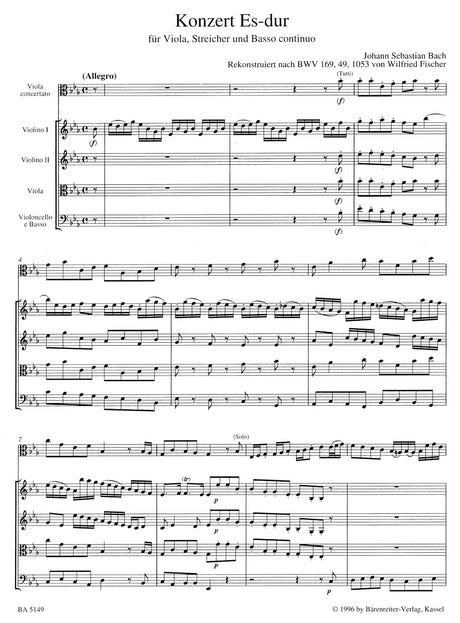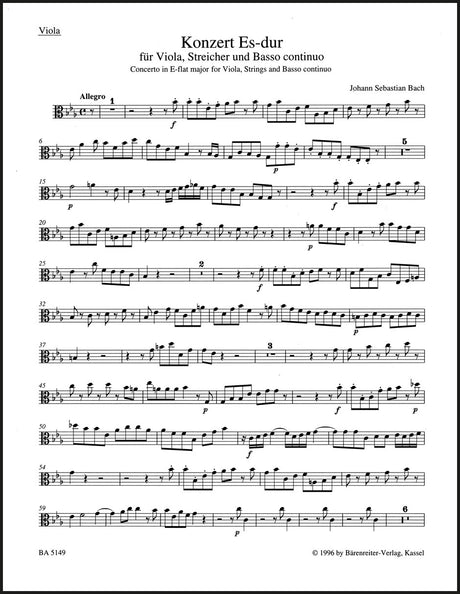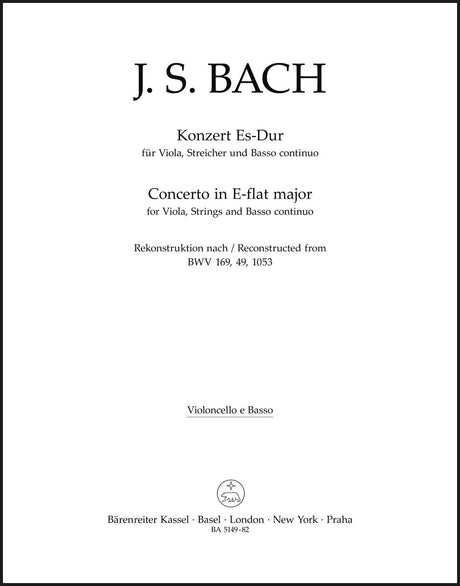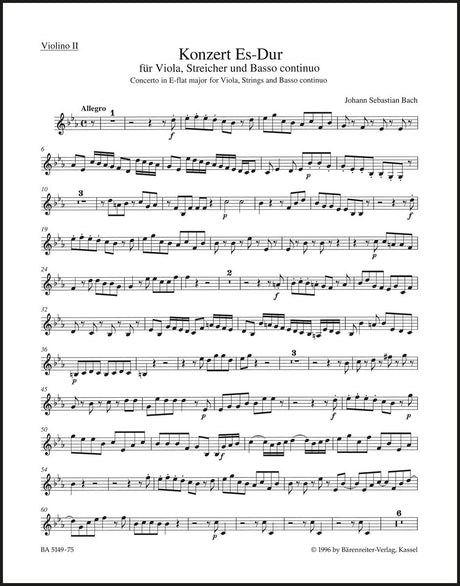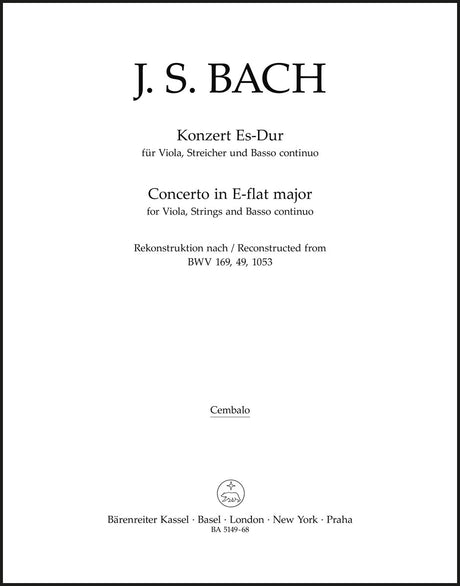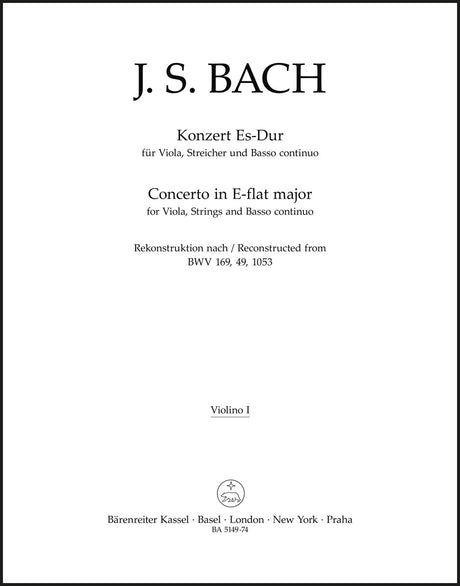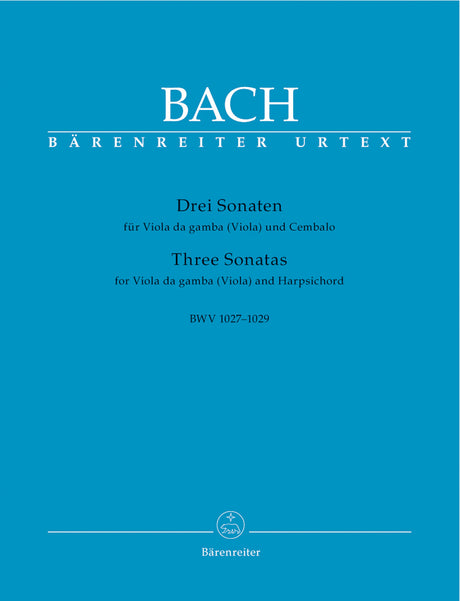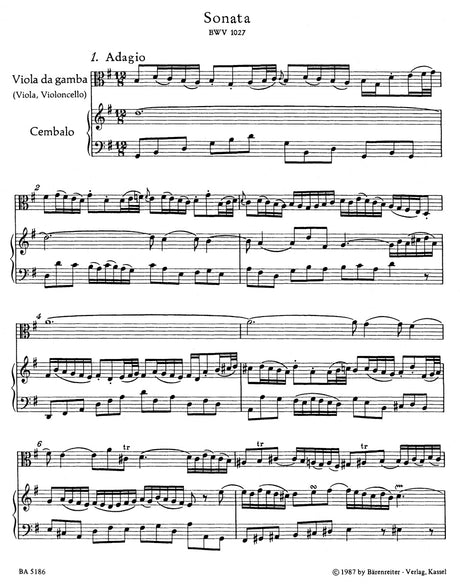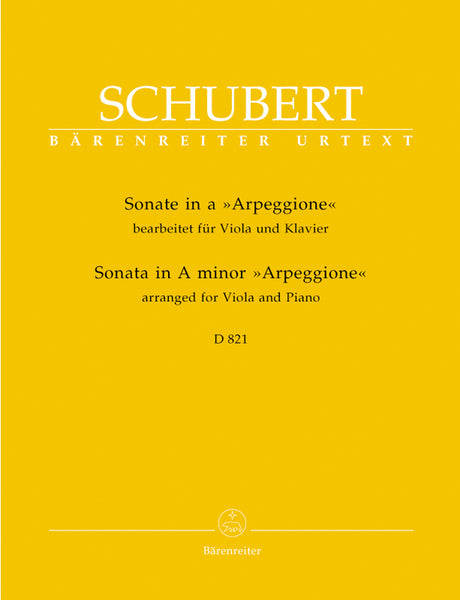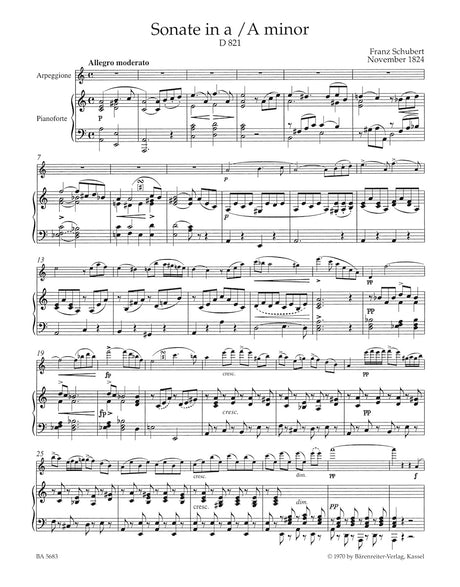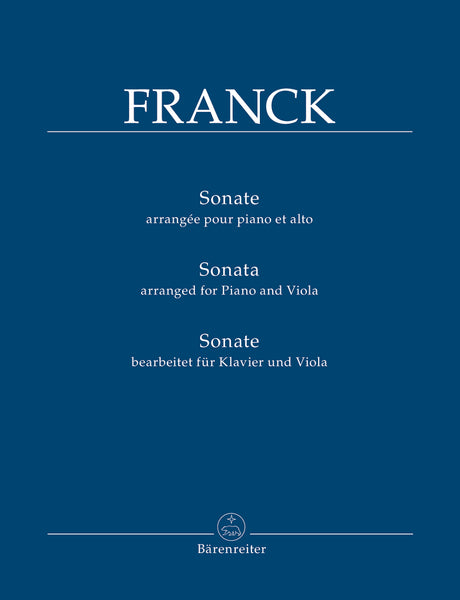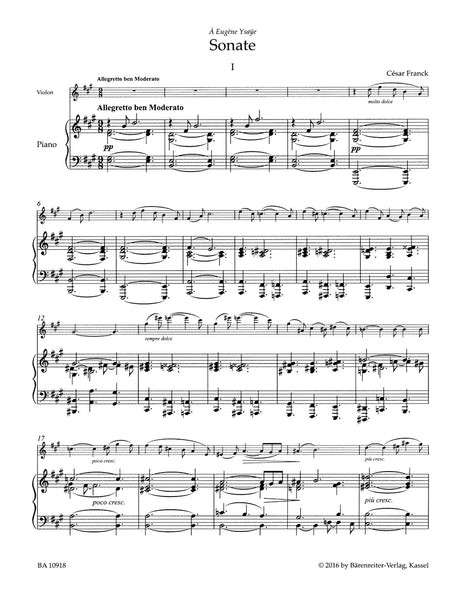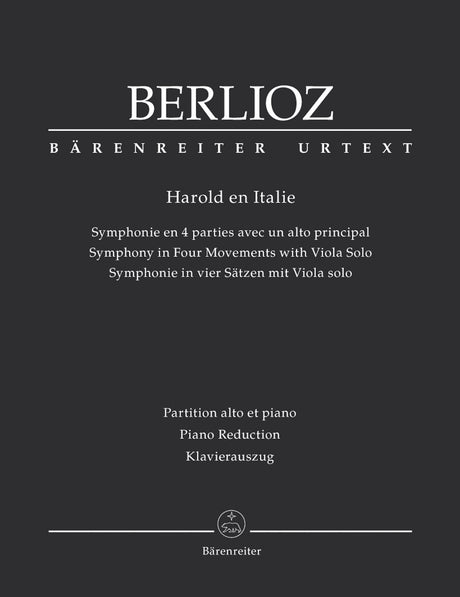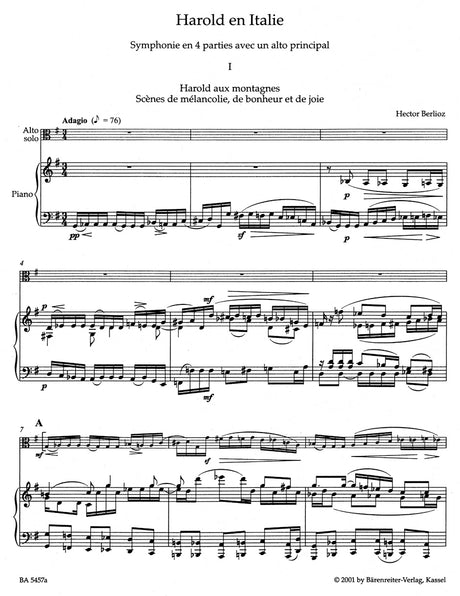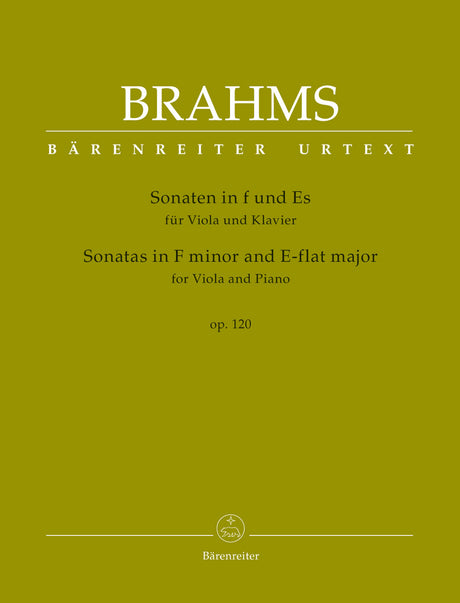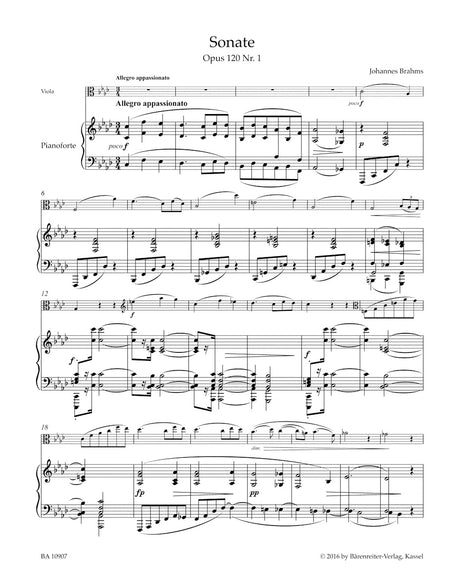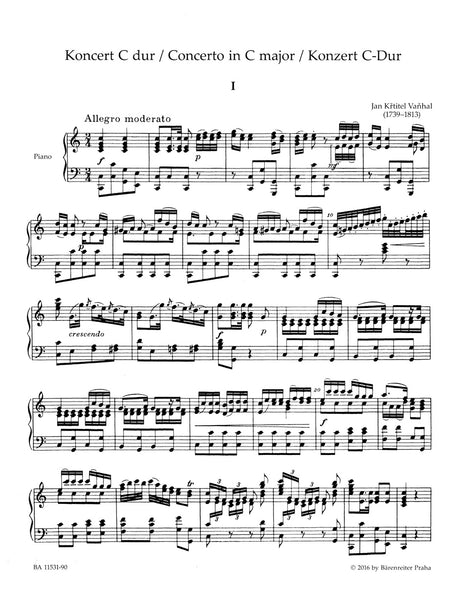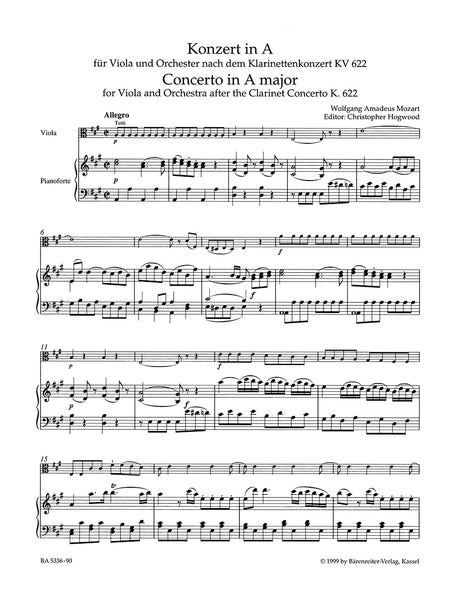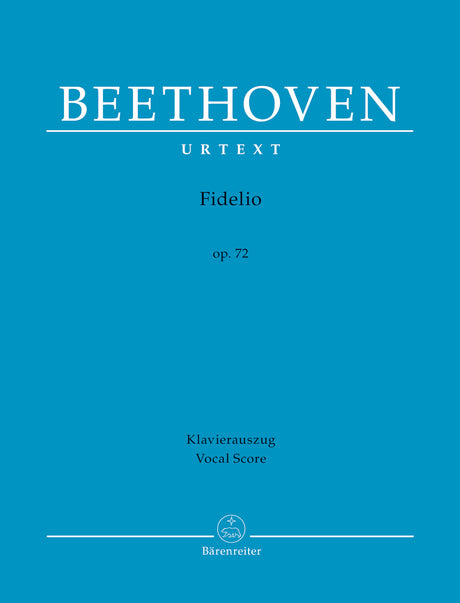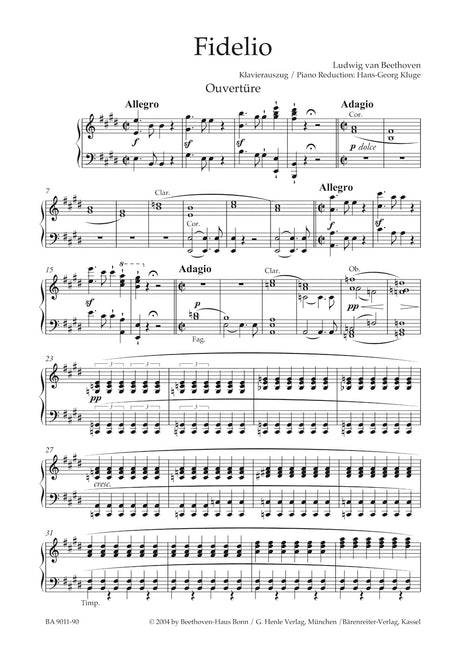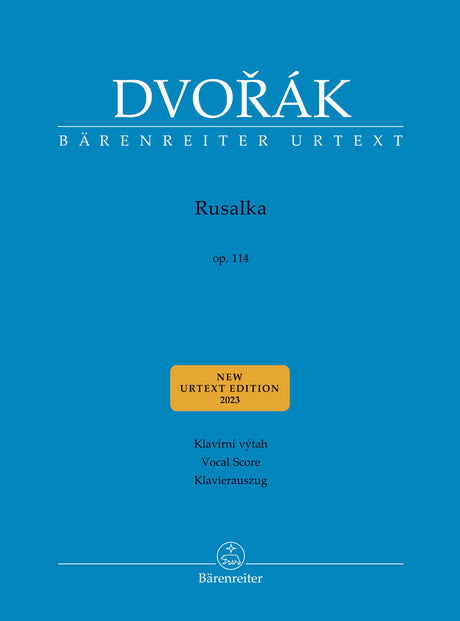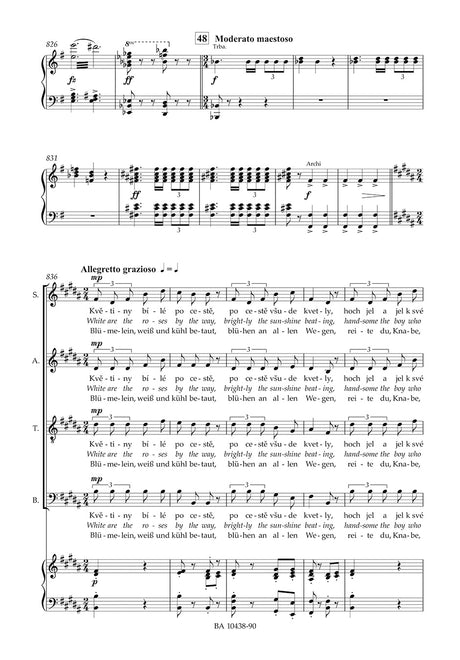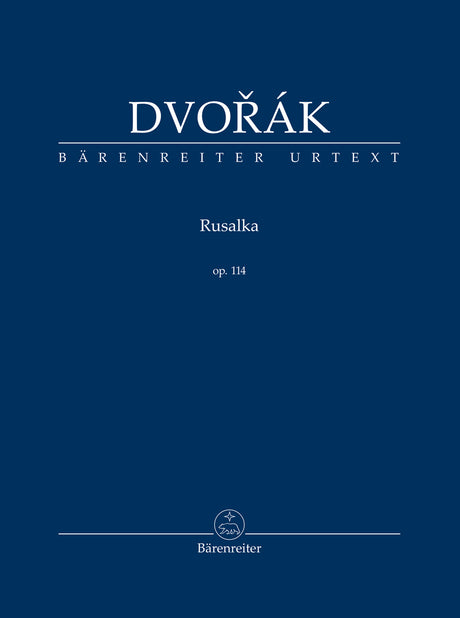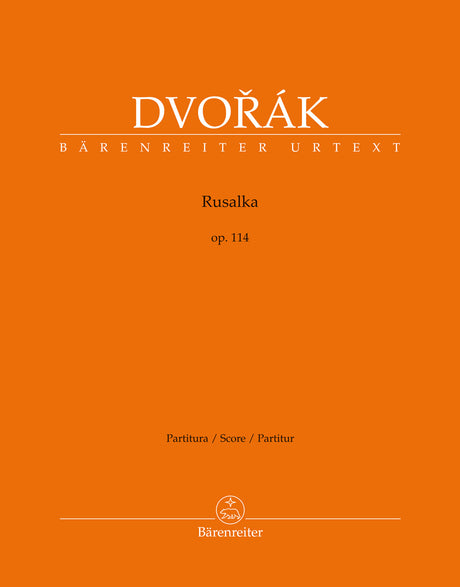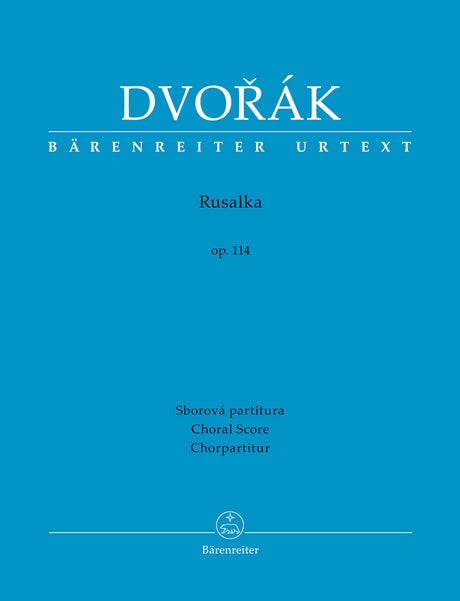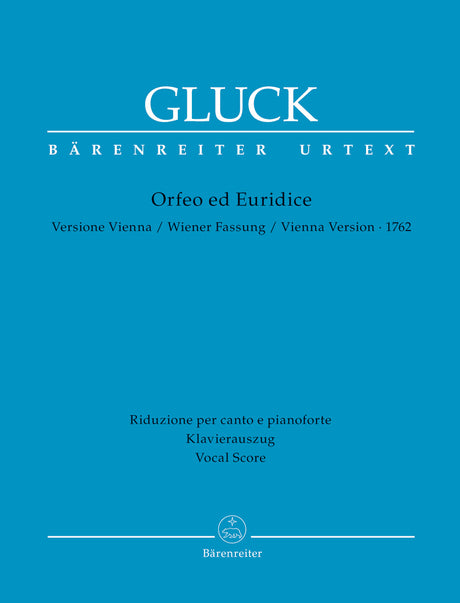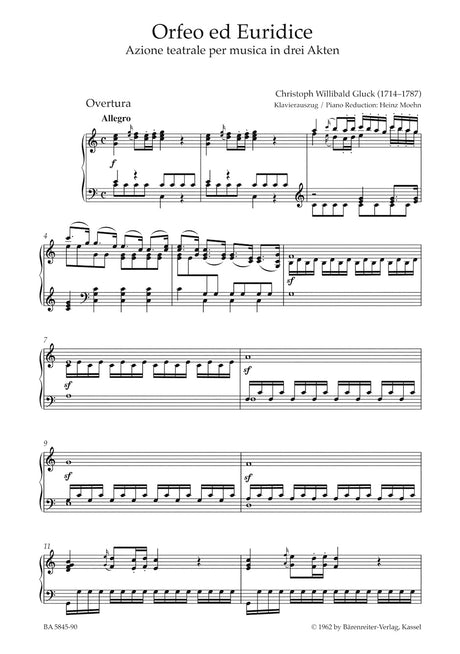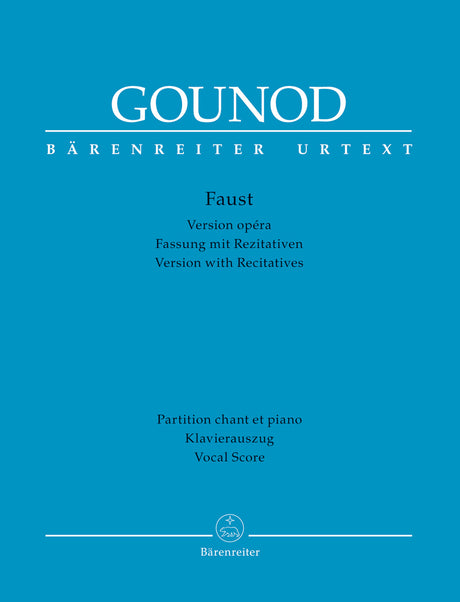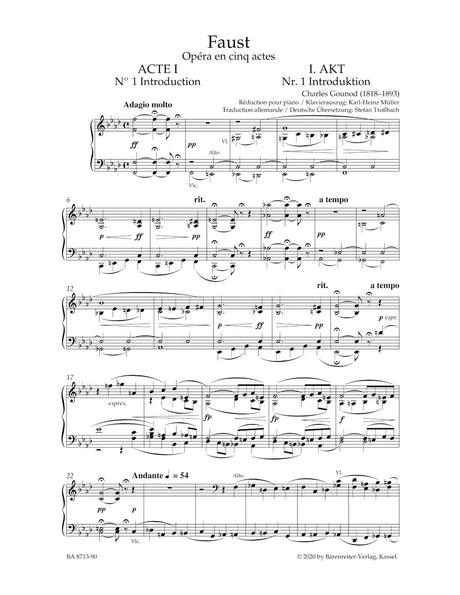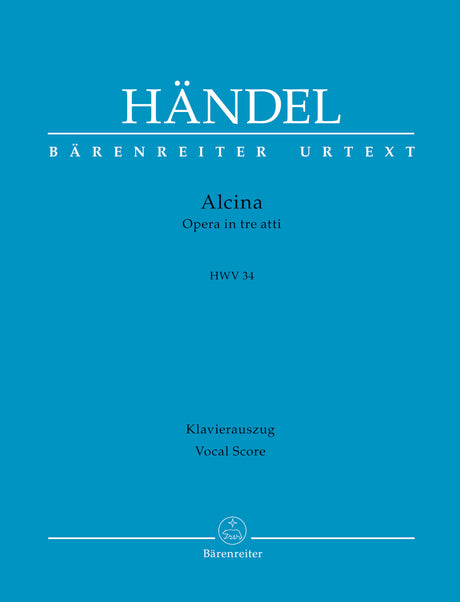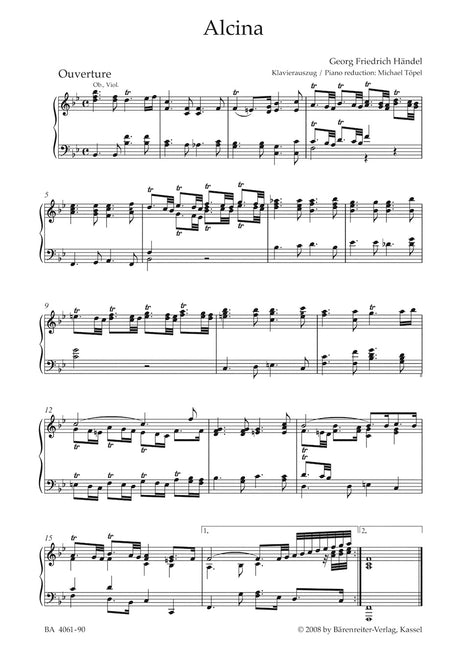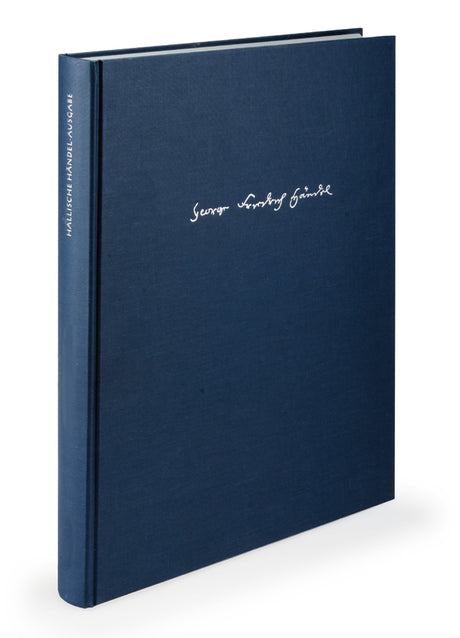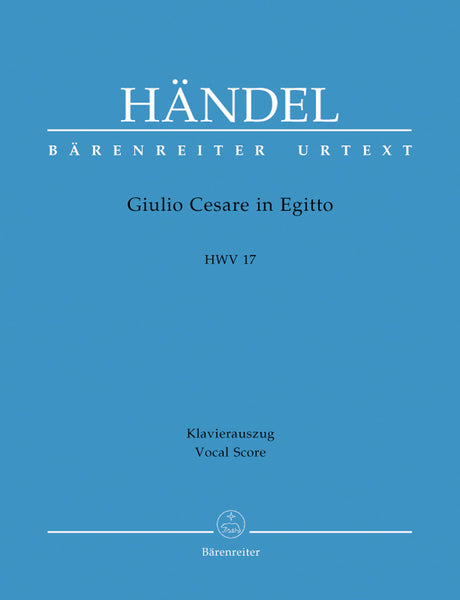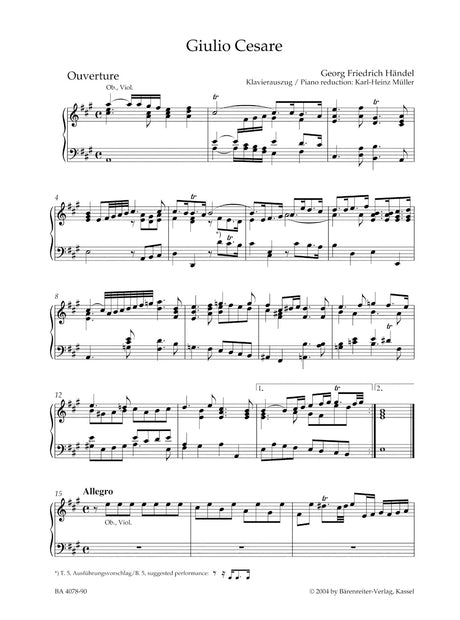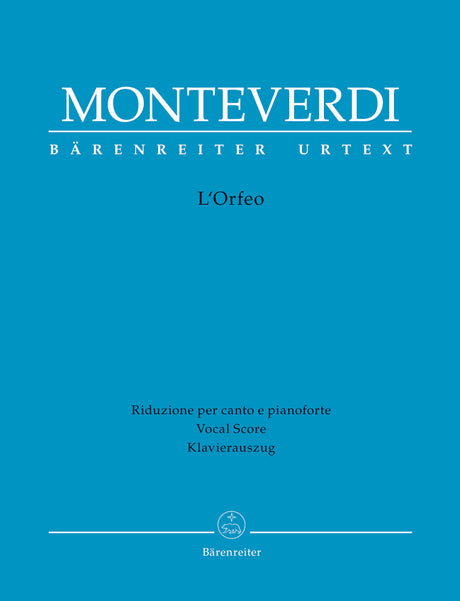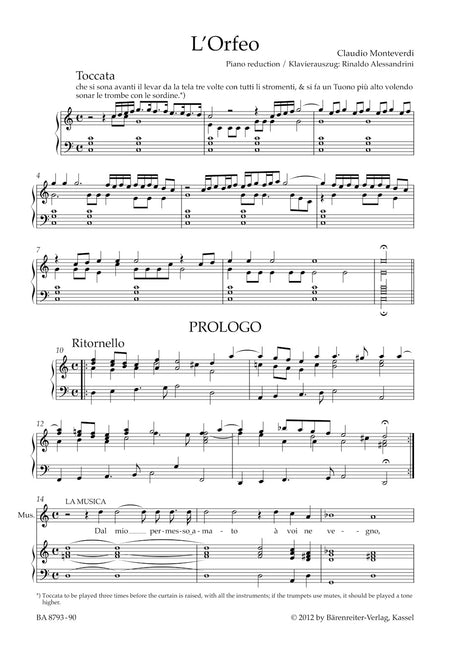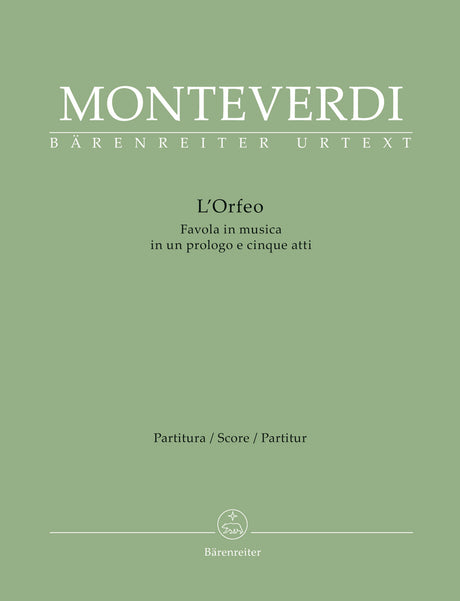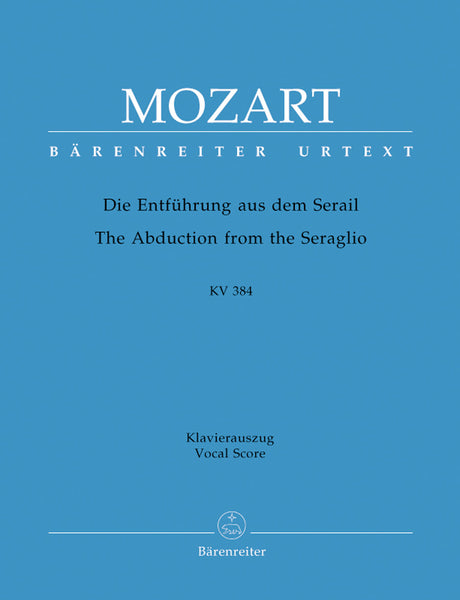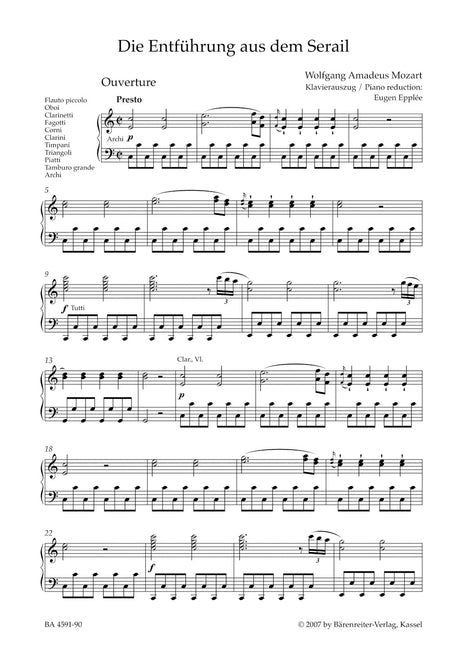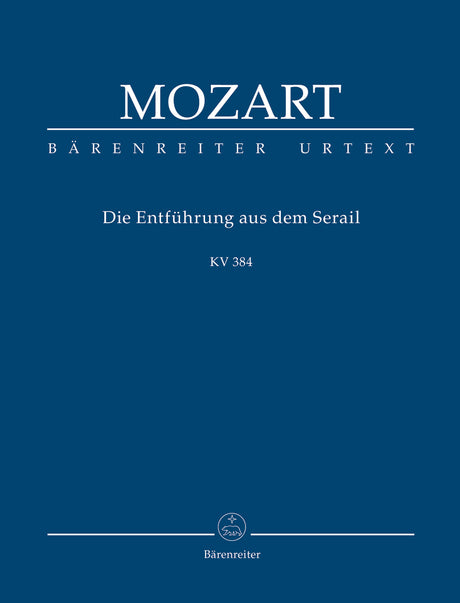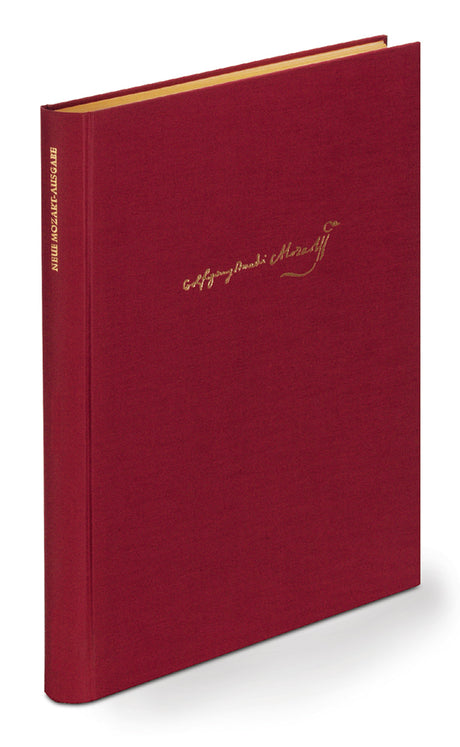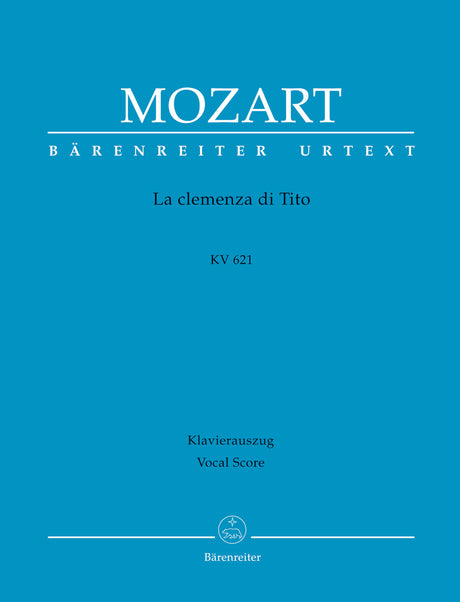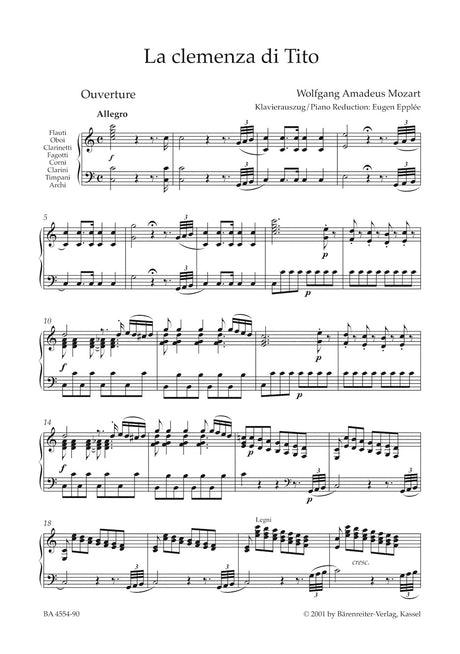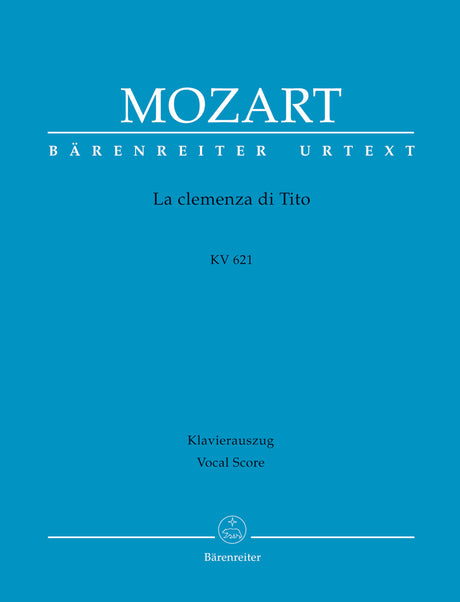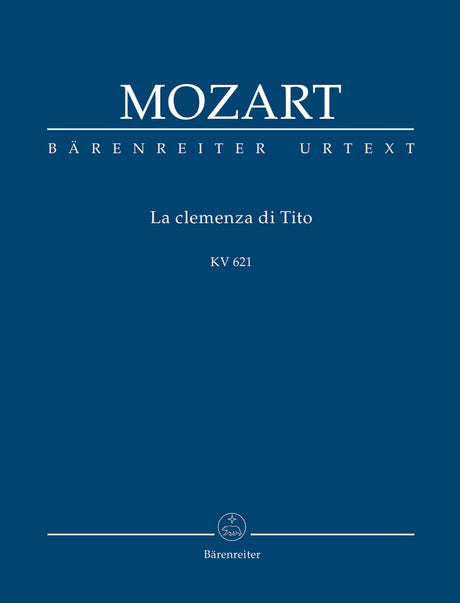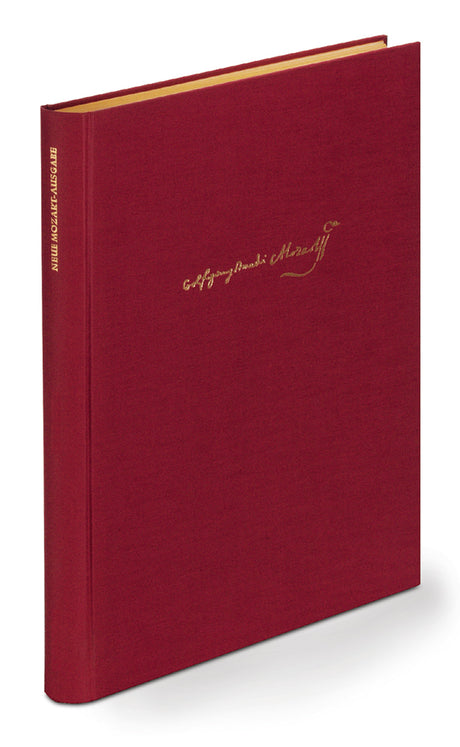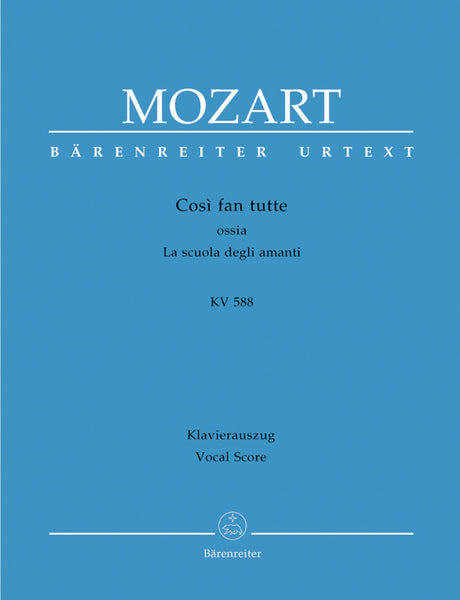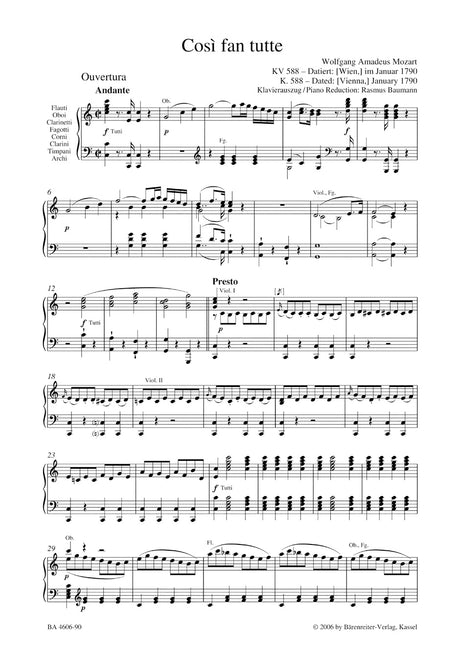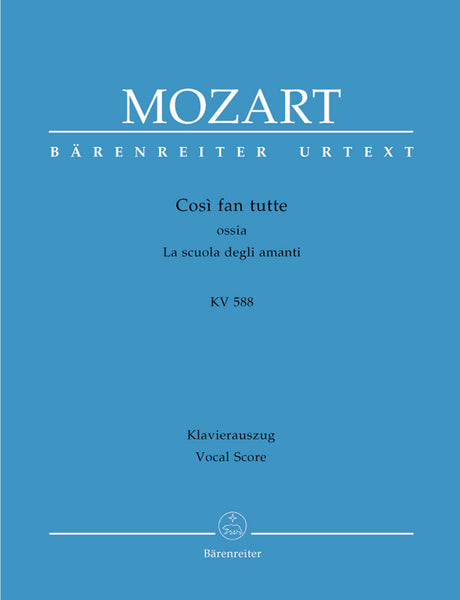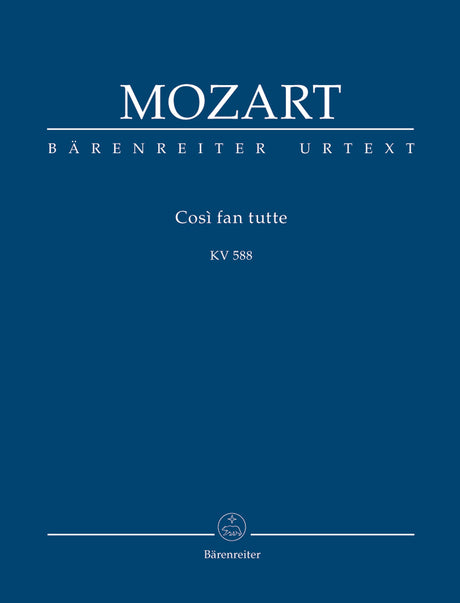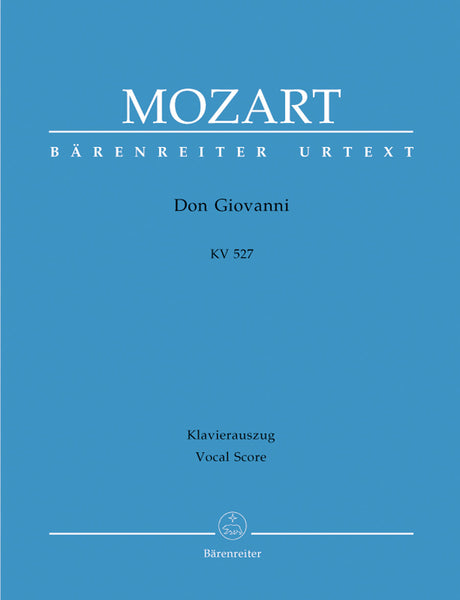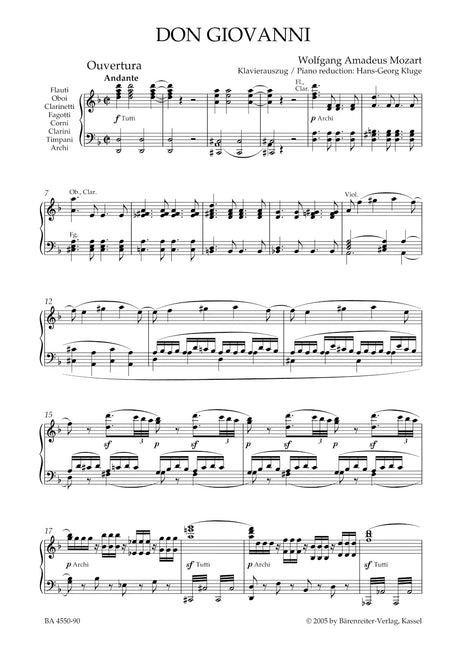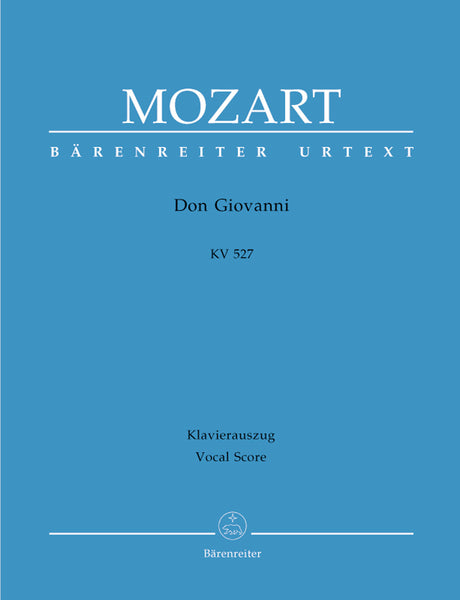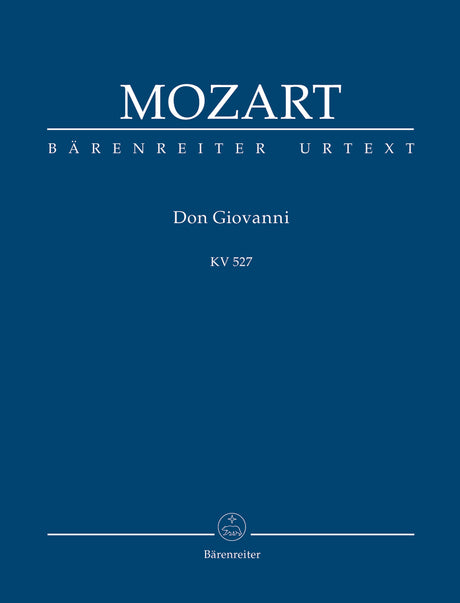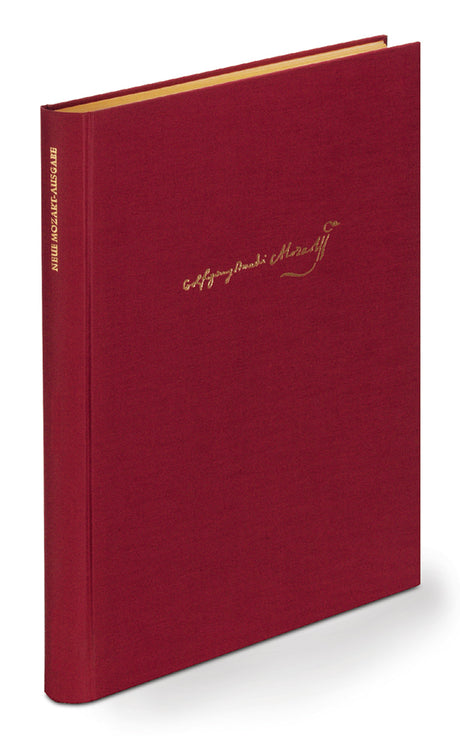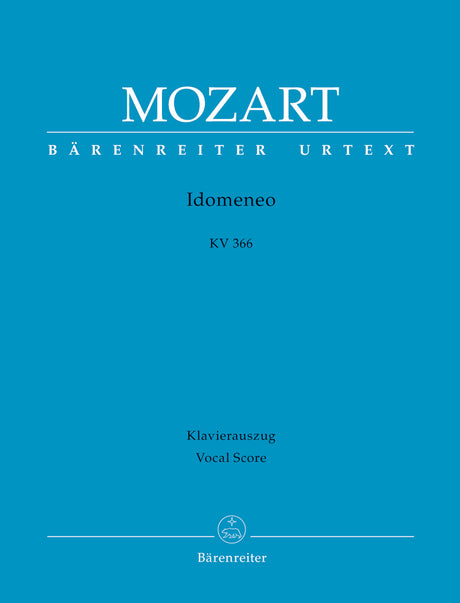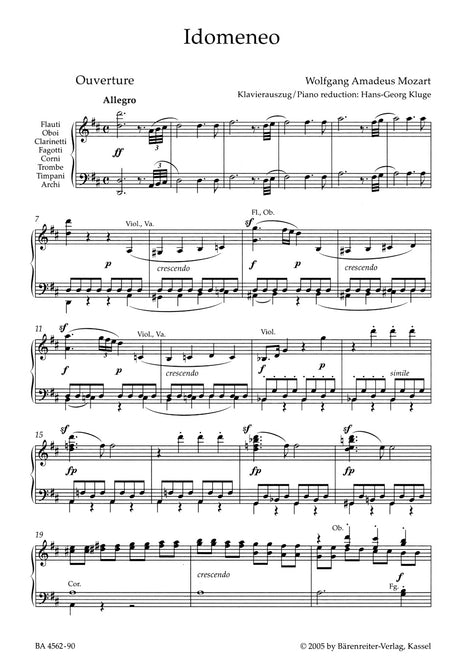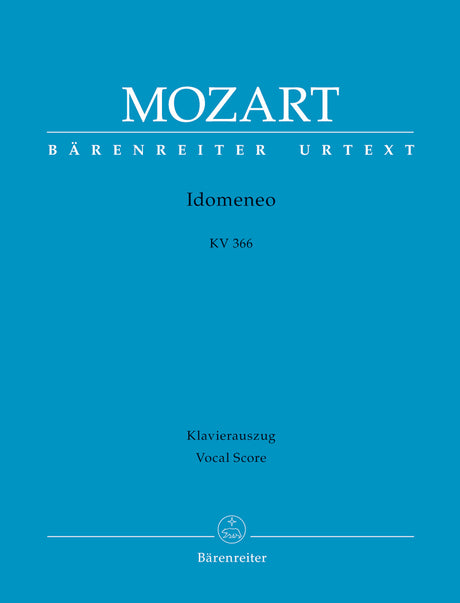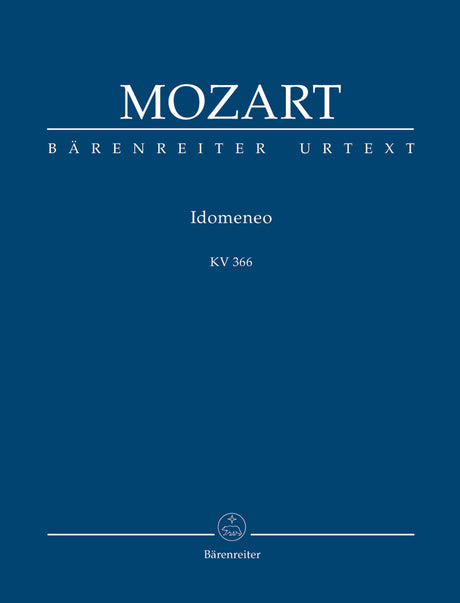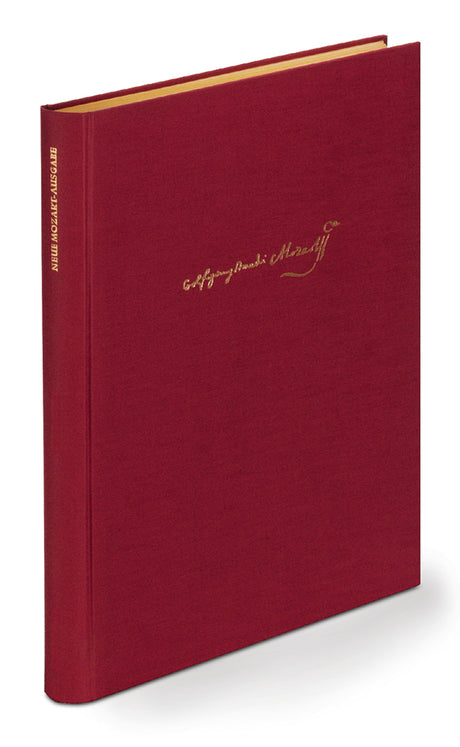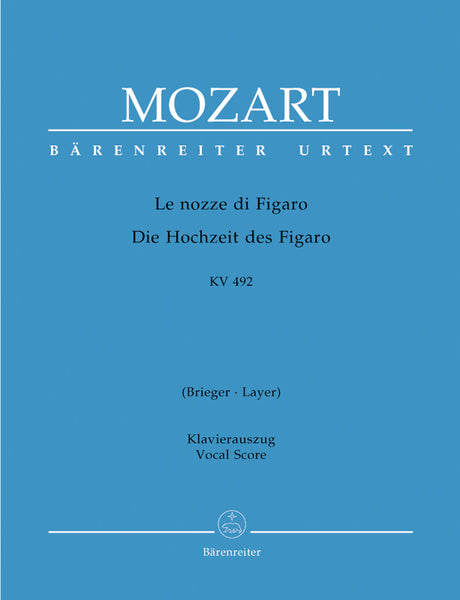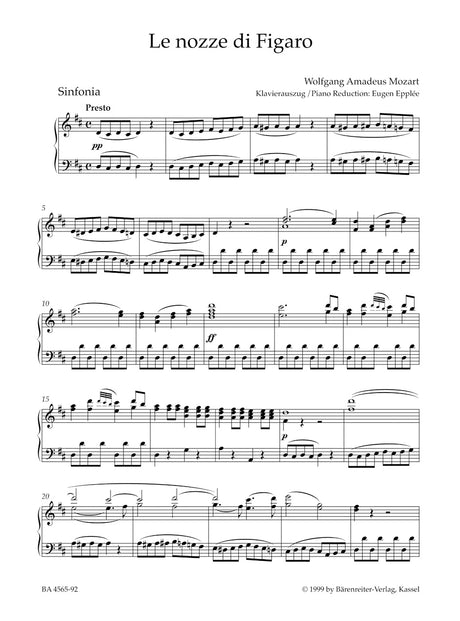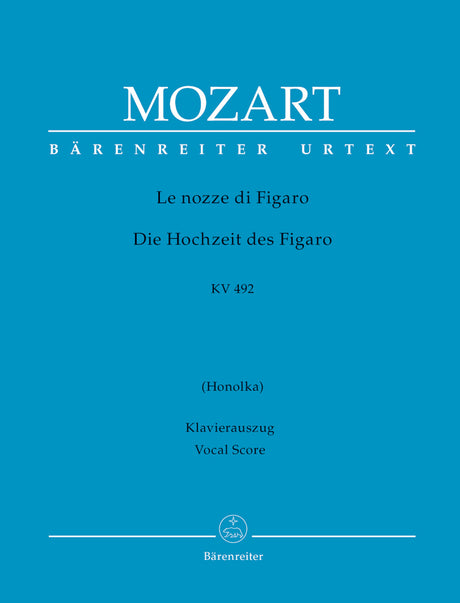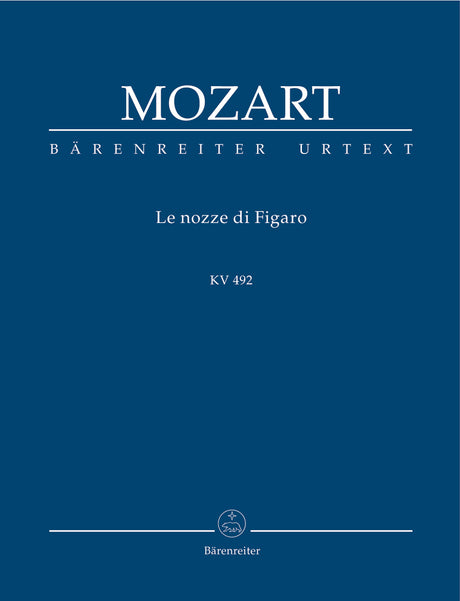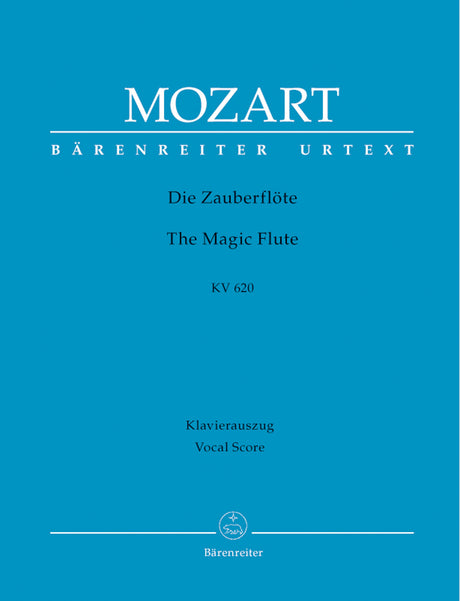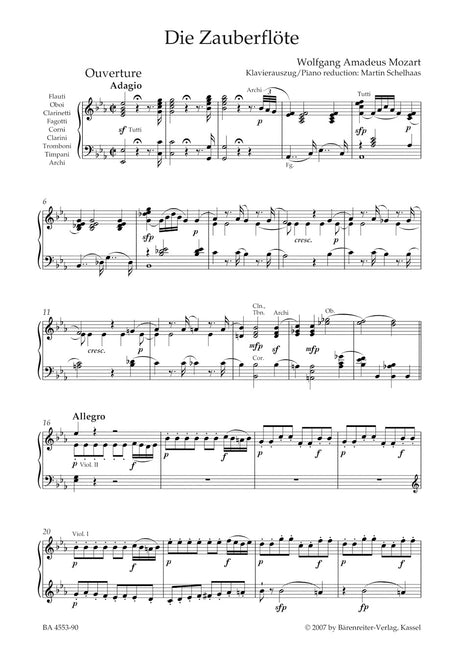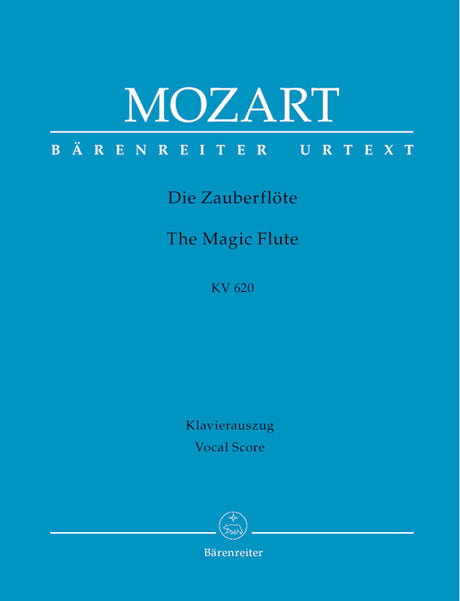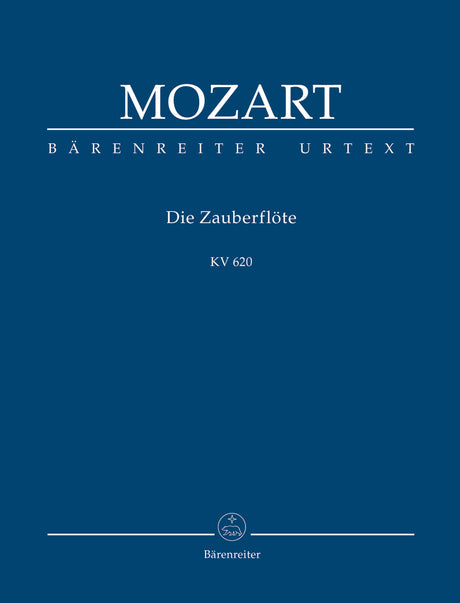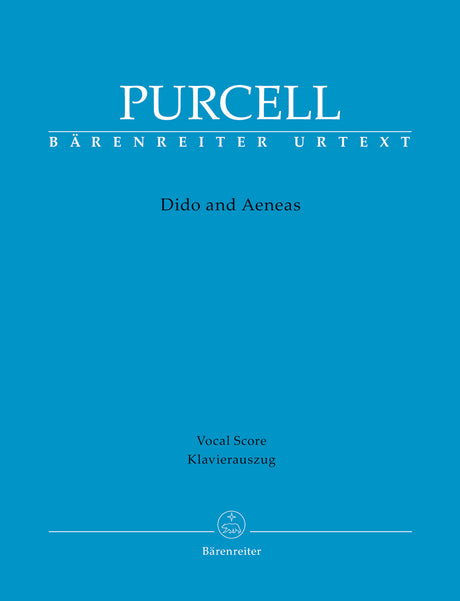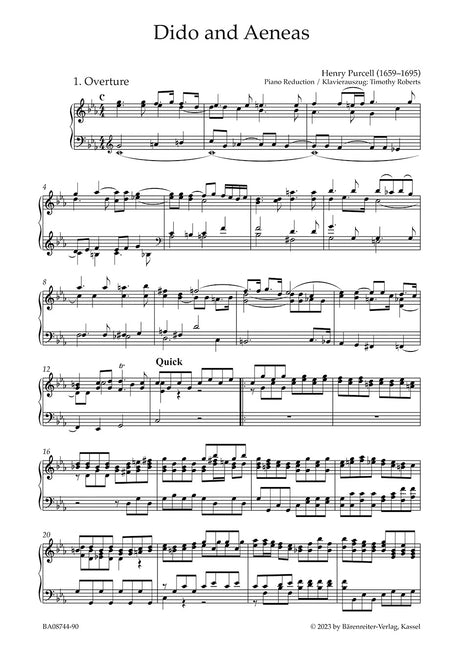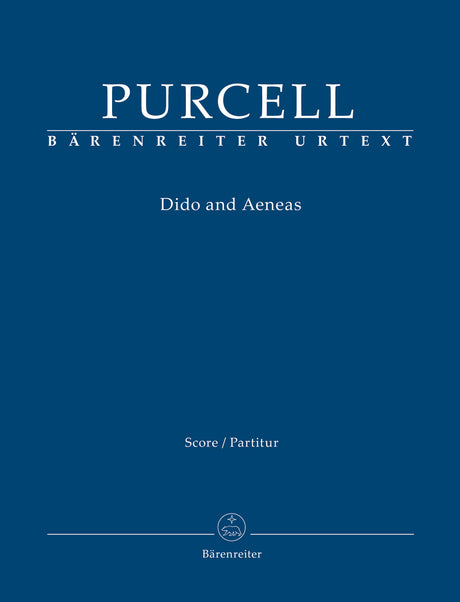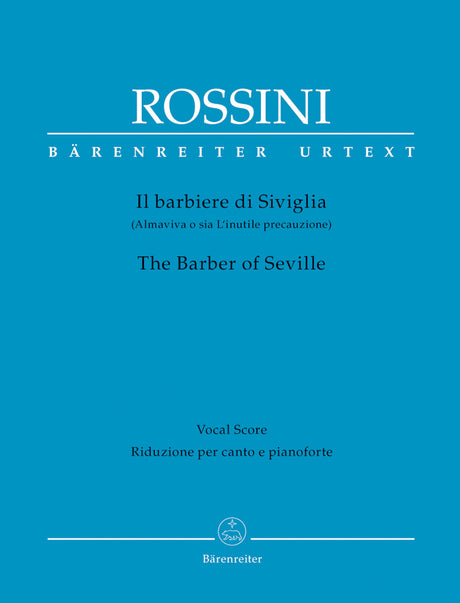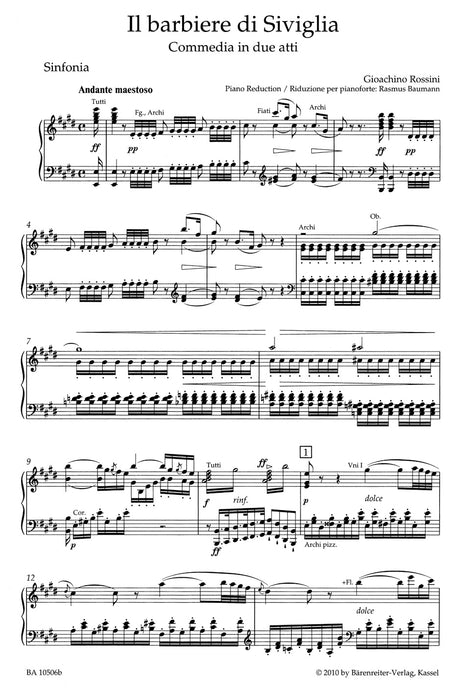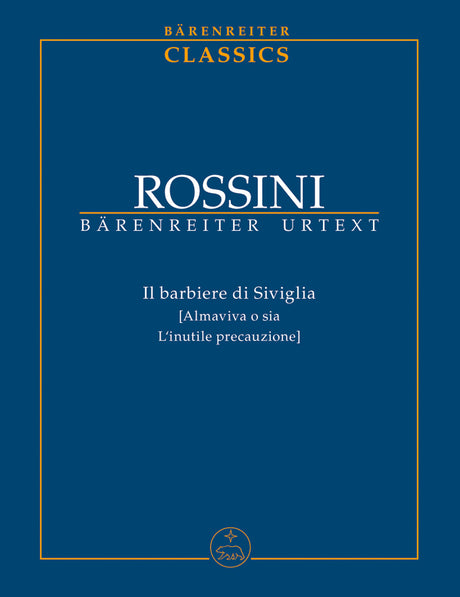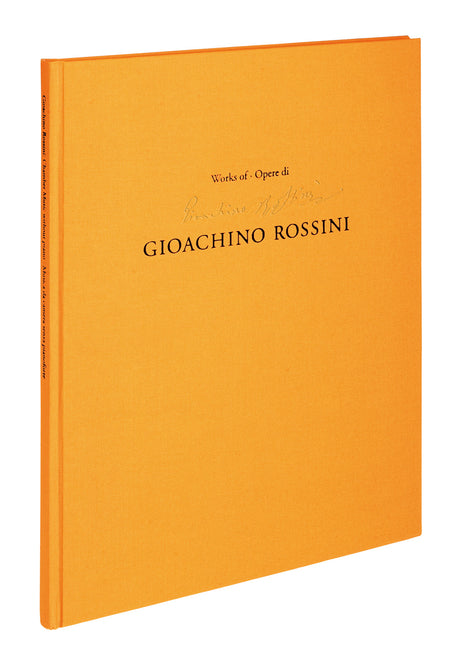



New Editions
View all-
Janáček: Violin Sonata (arr. for cello)
Regular price $42.00Unit price -
Ševcík: 40 Variations, Op. 3 (arr. for cello)
Regular price $19.50Unit price -
Handel: Anthem on the Peace, HWV 266 (267)
Options: Vocal Score, Full Score, Wind Set, Choral Score, Viola Part, Organ Part, Violin...Regular priceFrom $22.25Unit price -
Handel: Foundling Hospital Anthem, HWV 268
Options: Vocal Score, Full Score, Wind Set, Choral Score, Violin I, Double Bass, Viola,...1753 Version
Regular priceFrom $27.75Unit price -
Regular price $79.75Unit price
-
Regular price $66.50Unit price
-
Rachmaninoff: Works for Violin and Piano
Regular price $55.00Unit price -
-
Handel: Jubilate zur Feier des Friedens von Utrecht, HWV 279
Options: Vocal Score, Full Score, Violin I / III, Violin II / III, Viola,..."Utrecht Jubilate"
Regular priceFrom $19.50Unit price -
Regular price $79.50Unit price
-
Gluck: French Operatic Arias for Tenor
Regular price $93.00Unit price -
Ullmann: Der Kaiser von Atlantis or die Tod-Verweigerung
The Emperor of Atlantis or The Refusal of Death
Regular price $463.00Unit price -
Options: Full Score, Violin I, Violin II, Viola, Cello, Double Bass, Wind SetRegular priceFrom $17.75Unit price
-
Martinů: Romance for Violin and Piano, H 186bis
Regular price $19.50Unit price -
Options: Full Score, Basso continuo, Choral ScoreRegular priceFrom $14.50Unit price
-
Beethoven: Piano Sonatas - Volume 1 (WoO 47 and Opp. 2-14)
Regular price $70.50Unit price -
Modern chorale harmonization and free improvisation
Regular price $119.00Unit price -
Bach: 6 Sonatas and Partitas, BWV 1001-1006 (arr. for viola)
Regular price $38.25Unit price

BARENREITER RECOMMENDS
Organ Plus One: Passion and Easter
The series ORGAN PLUS ONE contains pieces which are freely-composed or based on hymn tunes, both original works as well as arrangements.
The editions include solo parts in C, B-flat, E-flat and F, which can be played by violin, flute, oboe, clarinet, trumpet and horn in F.
The range of the solo instrument parts is in the middle register, making this series particularly appealing to non-professional church musicians and instrumentalists.
Looking for inspiration for your Easter concerts? Discover the most beloved and frequently performed choral works in the Bärenreiter catalogue.
View all-
Mozart: Requiem, K. 626 (completed by Süssmayr)
Options: Vocal Score, Study Score, Full Score – Hardcover, Full Score – Paperback, Violin...Regular priceFrom $13.25Unit price -
Options: Vocal Score – English, Vocal Score – German/English, Study Score, Full Score –...Regular priceFrom $28.00Unit price
-
Bach: St. Matthew Passion, BWV 244
Options: Vocal Score, Choir II – Viola, Study Score, Full Score – Paperback, Critical...Regular priceFrom $20.50Unit price -
Bach: Mass in B Minor, BWV 232
Options: Vocal Score – Revised Edition, Study Score, Full Score – Hardcover, Full Score...Regular priceFrom $29.25Unit price -
Bach: St. John Passion, BWV 245
Options: Vocal Score, Study Score, Full Score – Hardcover, Full Score – Paperback, Basso...Regular priceFrom $26.25Unit price -
Options: Vocal Score, Choral Score, Cello I, Organ, Violin I/II, Wind Set: 2.0.2.2 –...
Version of 1900
Regular priceFrom $14.50Unit price -
Options: Vocal Score, Full Score, Violin I, Violin II, Viola, Basso continuo, OrganRegular priceFrom $15.75Unit price
-
Haydn: Stabat Mater, Hob. XX bis
Options: Vocal Score, Full Score, Violin I, Violin II, Viola, Cello / Double Bass,...Versions from 1767 and 1803
Regular priceFrom $28.25Unit price -
Mozart: Requiem, K. 626 (completed by Ostrzyga)
Options: Vocal Score, Full Score, Violin I, Violin II, Viola, Cello / Double Bass,...Regular priceFrom $16.50Unit price -
Mendelssohn: Elijah, MWV A 25, Op. 70
Options: Vocal Score, Full Score, Violin I, Violin II, Viola, Cello, Double Bass, Wind...Regular priceFrom $32.00Unit price -
Bach: Christ lag in Todes Banden, BWV 4
Options: Vocal Score, Study Score, Violin I, Violin II, Viola I, Viola II, Cello...Cantata for Easter Sunday
Regular priceFrom $11.75Unit price -
Beethoven: Missa solemnis, Op. 123
Options: Vocal Score, Full Score, Violin I, Violin II, Viola, Cello, Basso, Wind Set:...Regular priceFrom $15.75Unit price -
Bach: St. John Passion, BWV 245 - 1725 Version
Options: Vocal Score, Full Score – Hardcover, Full Score, Violin I, Violin II, Viola,...Regular priceFrom $26.25Unit price -
Handel: Brockes-Passion, HWV 48
Options: Vocal Score, Full ScoreRegular priceFrom $60.50Unit price -
Bach-Mendelssohn: Passion Music after the Evangelist Matthew
Options: Vocal Score, Full ScoreArrangement of Bach's St. Matthew Passion
Regular priceFrom $73.00Unit price -
Pergolesi: Stabat mater (arr. for female choir)
Options: Vocal Score, Full ScoreRegular priceFrom $27.75Unit price -
Dvořák: Mass in D Major, Op. 86
Options: Vocal Score, Full Score, Cello / Double BassOrgan Version
Regular priceFrom $12.75Unit price

Searching for the True Beethoven
What did Beethoven want?
Many amateurs find his handwriting difficult to read, and even professionals need considerable experience to decipher his autographs. Yet a composer of the stature of Ludwig van Beethoven deserves that every last detail be extracted from his manuscripts and from all other available sources.
The film “Searching for the True Beethoven: Bärenreiter Urtext Editions” offers insight into how Beethoven editions are created. Its protagonist is Jonathan Del Mar, a leading Beethoven scholar who has devoted much of his life to the study of this composer. In the film, he explains how he carries out his editorial work so that conductor Sir Simon Rattle, pianist Igor Levit, and the Pierrot Quartet can interpret and perform Beethoven’s music as the ingenious composer intended. These musicians also appear in the film, demonstrating how exciting it is to incorporate Del Mar’s scholarly work into their performances.
A Musical Form That Made History – Trace the many faces of the piano sonata
View all-
Beethoven: Complete Piano Sonatas - Volumes 1-3
Regular price $192.75Unit price -
Chopin: Piano Sonata No. 3 in B Minor, Op. 58
Regular price $23.00Unit price -
Dušek: Complete Sonatas for Keyboard - Volume 1
Regular price $52.25Unit price -
Regular price $55.00Unit price
-
-
-
Klein: Piano Sonata & Landscape
Regular price $27.75Unit price -
-
Liszt: Piano Sonata in B Minor
Regular price $30.50Unit price -
-
Myslivecek: 6 Easy Keyboard Sonatas
Regular price $34.50Unit price -
Schubert: Complete Piano Sonatas - Volumes 1-3
Regular price $157.75Unit price -
Schulhoff: Piano Sonatas, Nos. 1-3
Regular price $72.50Unit price -
Scriabin: Piano Sonatas - Volume 1
Regular price $73.75Unit price
The Viola – Soulful and Expressive. Find music from the 18th to the 21st centuries in the Bärenreiter catalogue.
View all-
Bach: 6 Suites, BWV 1007-1012 (arr. for viola)
Regular price $42.00Unit price -
Mozart: Sinfonia concertante, K. 364 (320d)
Options: Solo Parts with Piano Reduction, Study Score, Full Score, Violin I, Violin II,...Regular priceFrom $16.50Unit price -
Telemann: Viola Concerto in G Major, TWV 51:G9
Options: Solo Part with Piano Reduction, Full Score, Violin I, Violin II, Viola, Basso...Regular priceFrom $13.25Unit price -
Bach: Viola Concerto in E-flat Major
Options: Solo Part with Piano Reduction, Full Score, Viola, Cello / Double Bass, Violin...Reconstructed from BWV 169, 49, 1053
Regular priceFrom $13.50Unit price -
Bach: 3 Sonatas for Viola da gamba, BWV 1027-1029
Regular price $46.50Unit price -
Schubert: Arpeggione Sonata, D 821 (arr. for viola)
Regular price $35.25Unit price -
Bach: 6 Sonatas and Partitas, BWV 1001-1006 (arr. for viola)
Regular price $38.25Unit price -
Franck: Violin Sonata (arr. for viola)
Regular price $43.00Unit price -
Berlioz: Harold en Italie, H 68
Symphony in four parts with solo viola
Regular price $55.00Unit price -
Brahms: Sonatas, Op. 120 (Version for Viola)
Regular price $49.75Unit price -
Vaňhal: Viola Concerto in C Major
Regular price $38.75Unit price -
Mozart: Viola Concerto in A Major
after the Clarinet Concerto K. 622
Regular price $48.25Unit price
Curtain Up – The Score Behind Every Great Voice
View all-
Regular price $78.00Unit price
-
-
Options: Vocal Score, Study Score, Full Score, Choral ScoreRegular priceFrom $34.25Unit price
-
Options: Vocal Score, Full Score – Complete Edition
Vienna Version - 1762
Regular priceFrom $69.25Unit price -
Regular price $114.25Unit price
-
Options: Vocal Score, Full Score – HardcoverRegular priceFrom $81.25Unit price
-
-
Options: Vocal Score, Full Score
Favola in musica in one prologue and five acts
Regular priceFrom $75.75Unit price -
Mozart: The Abduction from the Seraglio, K. 384
Options: Vocal Score, Study Score, Full Score – HardcoverGerman singspiel in 3 acts
Regular priceFrom $83.00Unit price -
Mozart: La clemenza di Tito, K. 621
Options: Vocal Score – Paperback, Vocal Score – Hardcover, Study Score, Full Score –...Regular priceFrom $83.00Unit price -
Mozart: Così fan tutte, K. 588
Options: Vocal Score – Paperback, Vocal Score – Hardcover, Study Score, Full Score –...Regular priceFrom $97.75Unit price -
Options: Vocal Score – Paperback, Vocal Score – Hardcover, Study Score, Full Score –...Regular priceFrom $89.50Unit price
-
Options: Vocal Score – Paperback, Vocal Score – Hardcover, Study Score, Full Score –...Regular priceFrom $97.75Unit price
-
Mozart: Le nozze di Figaro, K. 492
Options: Vocal Score – New Engraving, Vocal Score – Hardcover, Study Score, Full Score...The Marriage of Figaro
Regular priceFrom $108.00Unit price -
Mozart: Die Zauberflöte (The Magic Flute), K. 620
Options: Vocal Score – Paperback, Vocal Score – Hardcover, Study Score, Full Score –...Regular priceFrom $51.50Unit price -
Purcell: Dido and Aeneas, Z. 626
Options: Vocal Score, Full ScoreRegular priceFrom $45.25Unit price -
Rossini: The Barber of Seville
Options: Vocal Score, Study Score, Full Score – HardcoverIl barbiere di Siviglia
Regular priceFrom $98.00Unit price

100 Years of Bärenreiter
In 1923, a year marked by extremes including inflation, depression, excessive parties, workers' riots, and political instability, Bärenreiter emerged. Founded by Karl Vötterle, a young man not yet of age, the company's humble beginnings consisted of publishing folksong collections, later expanding to include church and organ music editions.
Over the span of a century, Bärenreiter has evolved into an internationally renowned publisher, earning acclaim for its musicological editions that have captivated musicians worldwide. Today, musicians across the globe hold the BÄRENREITER URTEXT seal in high regard, recognizing it as a symbol of editions meticulously crafted through a comprehensive assessment of all available sources, while also considering the performer's needs.

What does "Urtext" mean?
'Urtext'. The very word smacks of dusty libraries and crumbling manuscripts that have to be handled with kid gloves. But behind the idea of 'Bärenreiter Urtext' are people passionately devoted, then and now, to living music. People who consider music a necessity of life, not a decorative adjunct.
All composers, whether a servant to a higher realm like Bach, or a genius like Mozart who composed faster than he could write, or a rebellious hero like Beethoven, have a precise idea of what their creations should sound like. But circumstances may have conspired to alter those creations or to detach them from their original idea.
Musicologists invest their every effort to reconstruct the intentions of the composer from the surviving sources. In a painstaking process of comparison, evaluation, decision-making and verification, they produce a version that will then appear in print and on the music stands of concert halls, opera houses or one's own living room.
Finally, musicians need a reliable basis for their art. No one who has studied the great works of music history will trust slipshod editions. Only the very best is good enough for the geniuses of the past.































































































